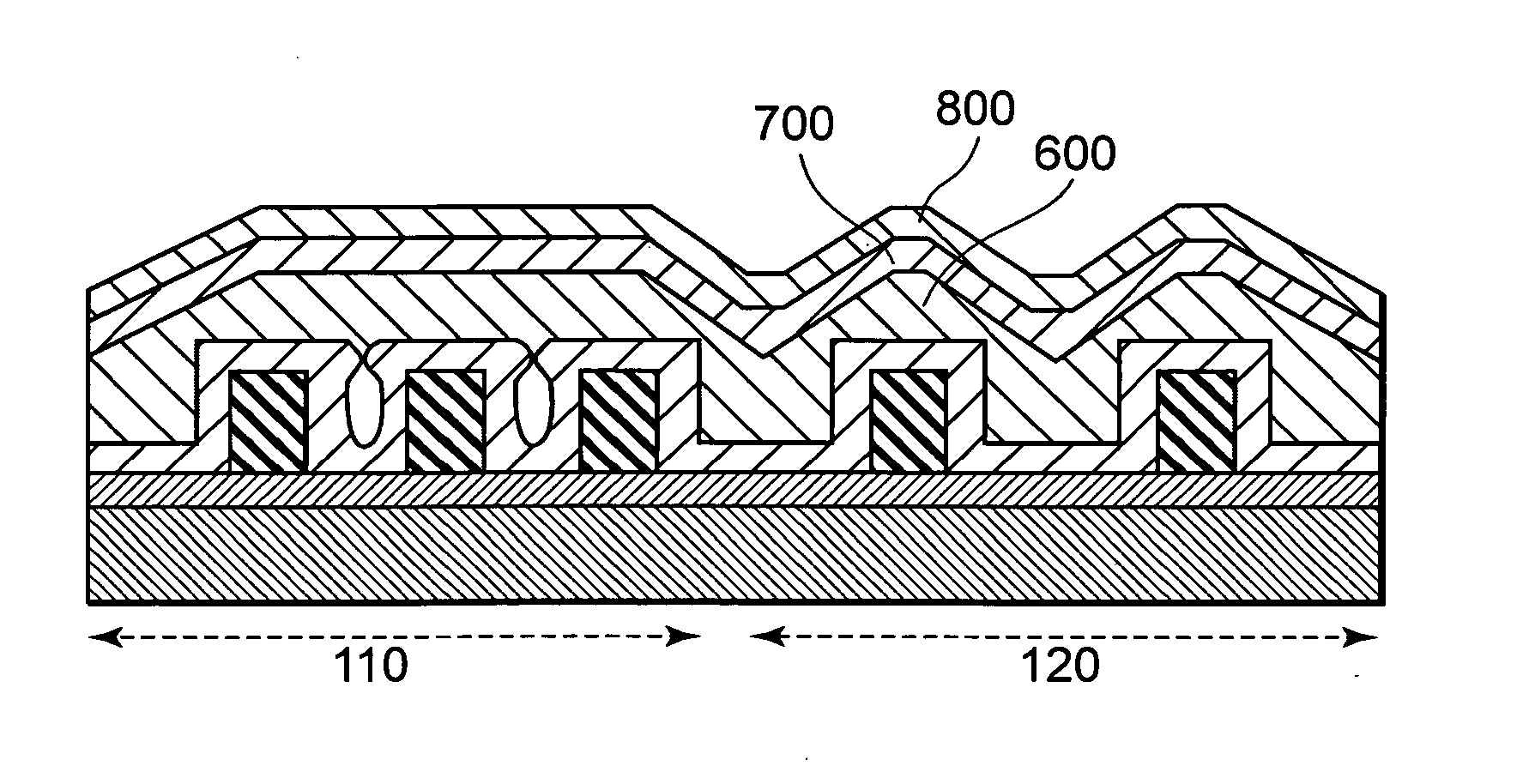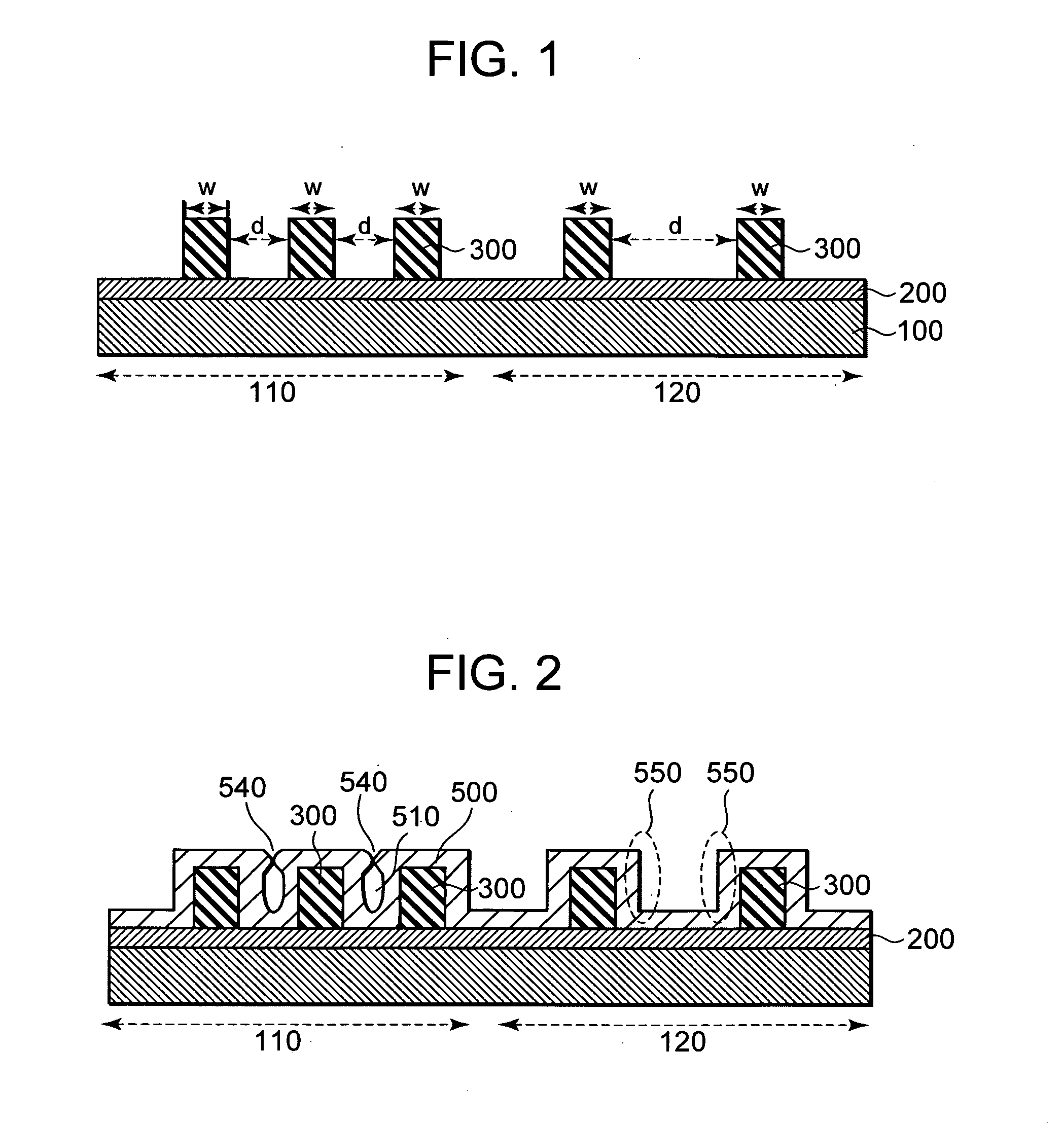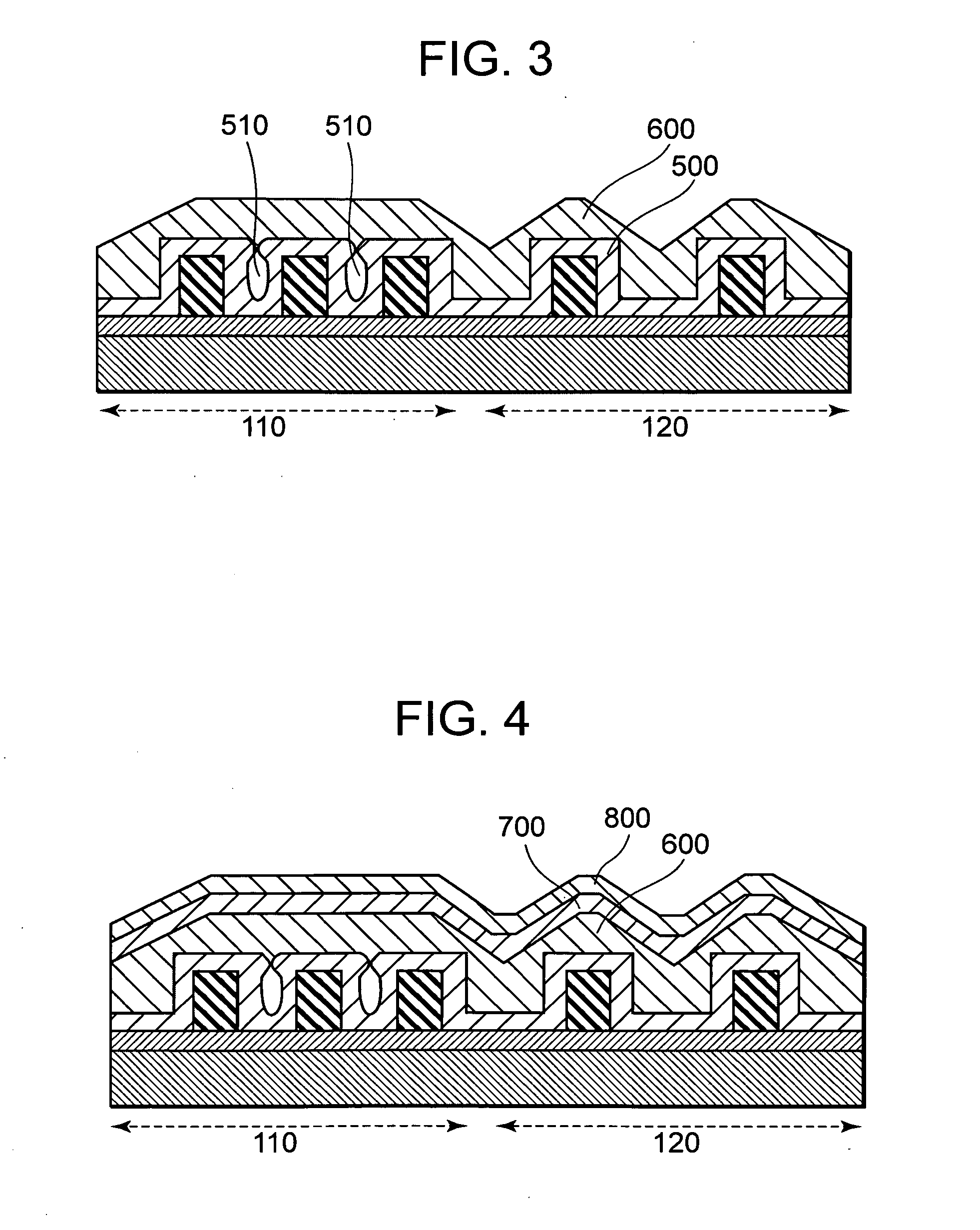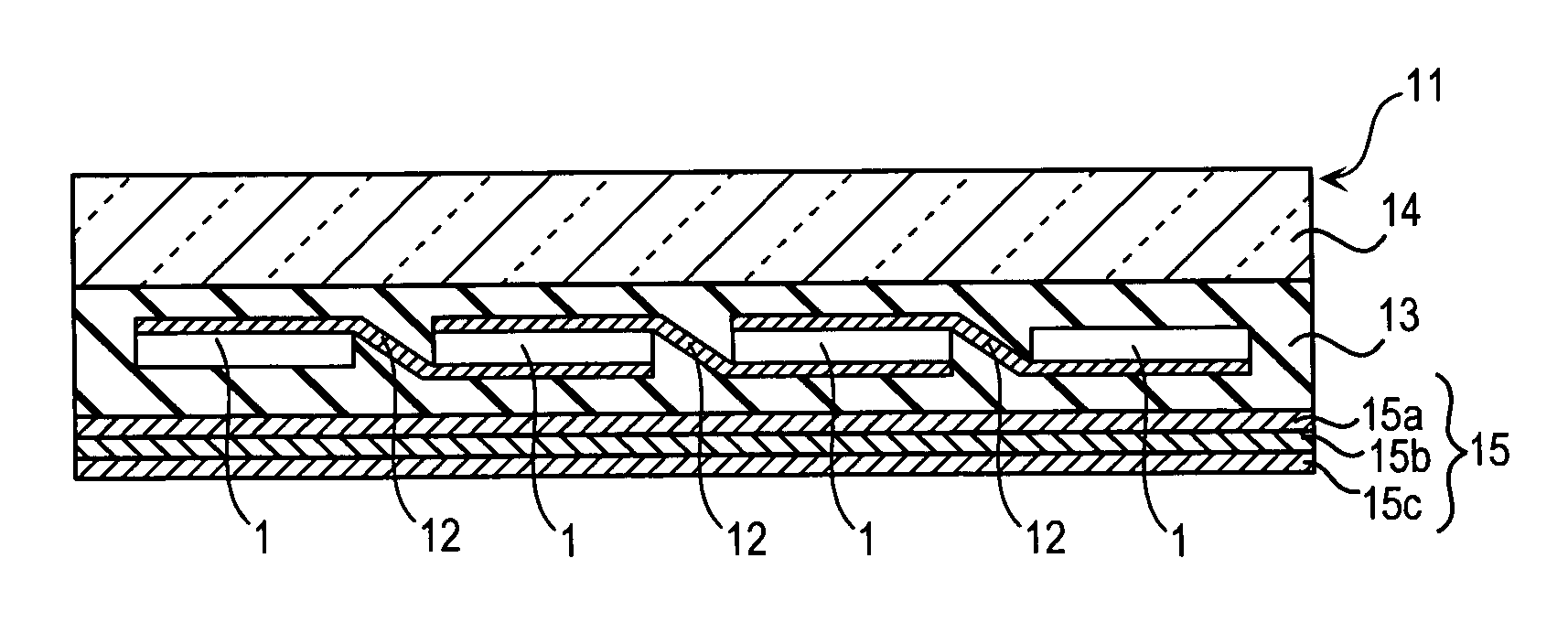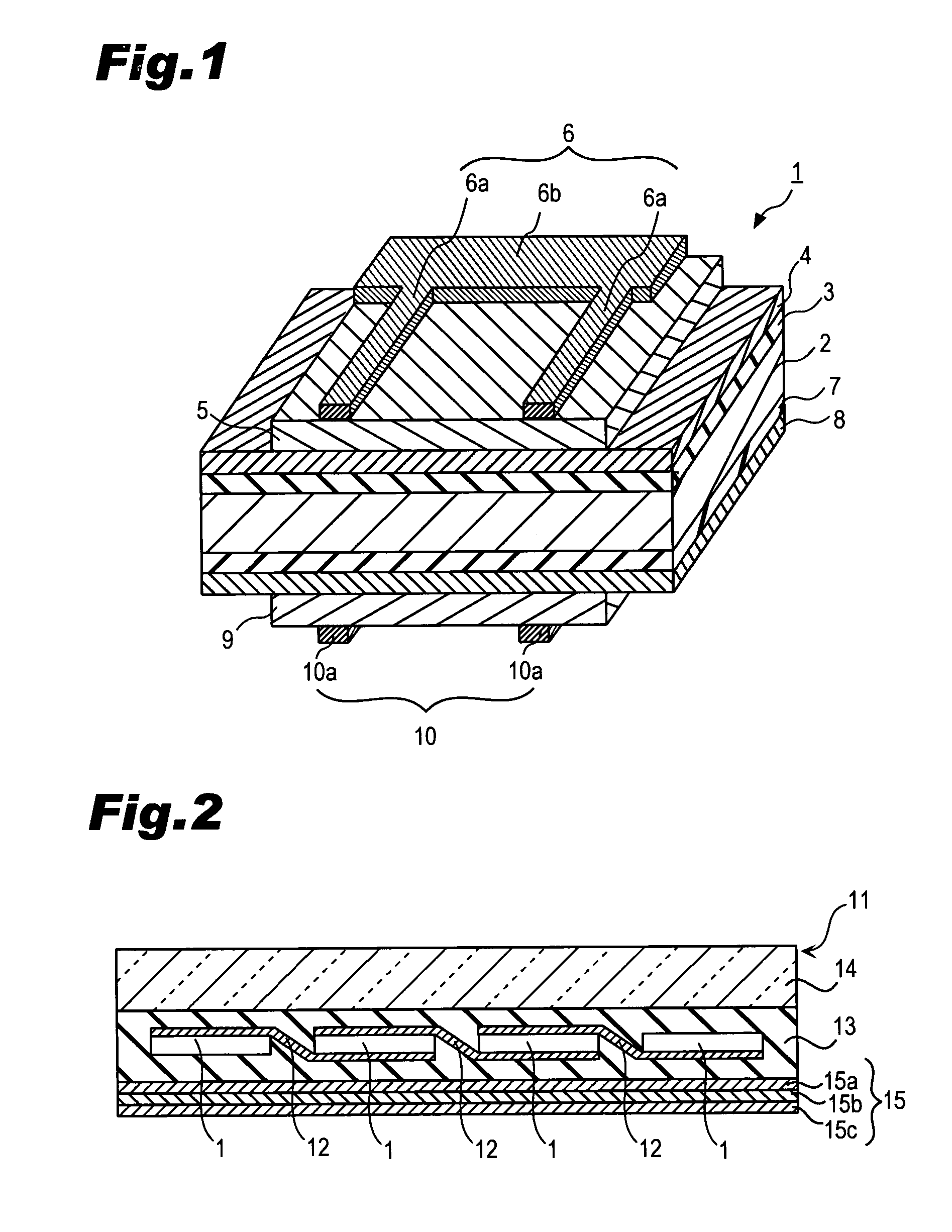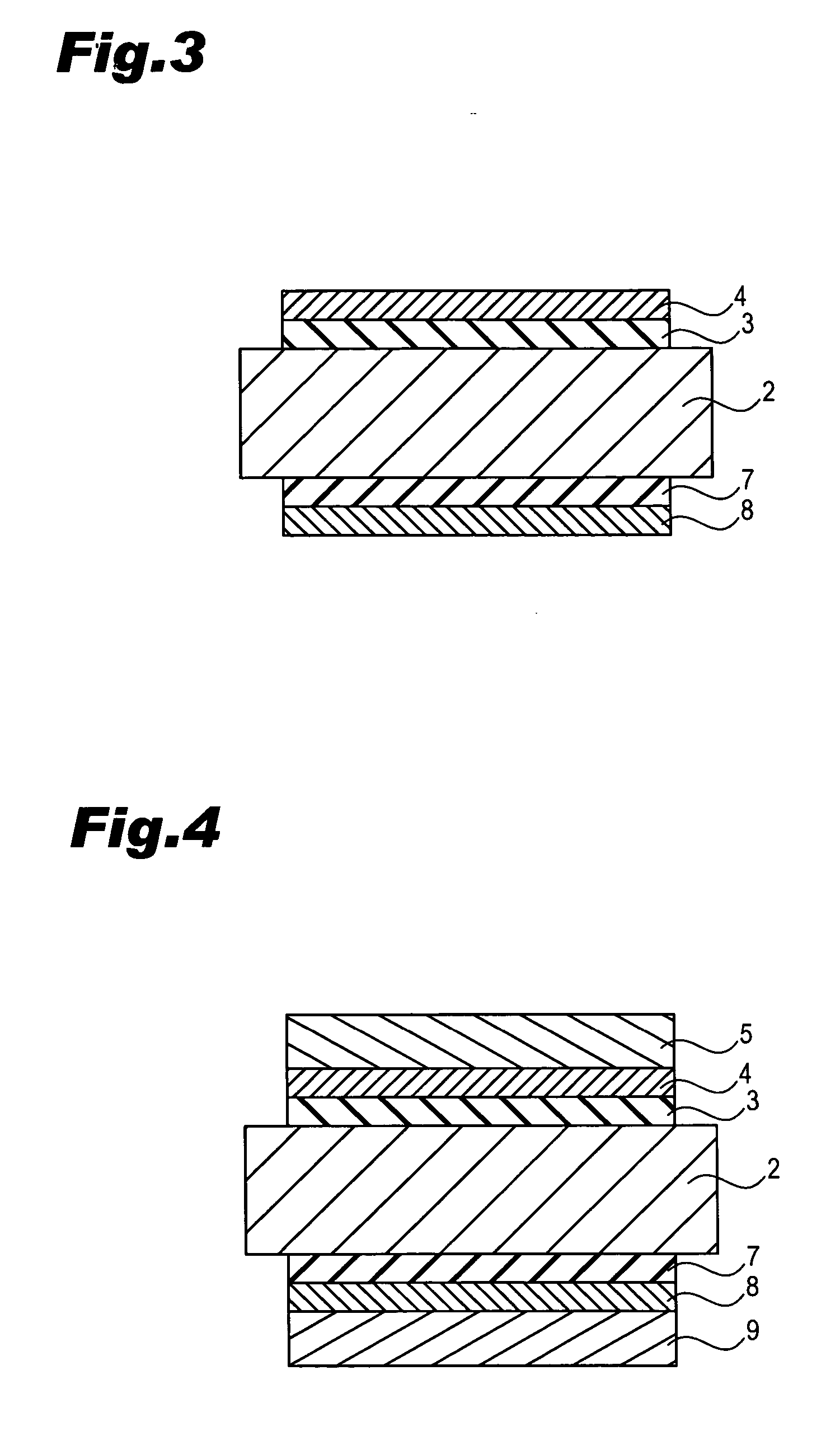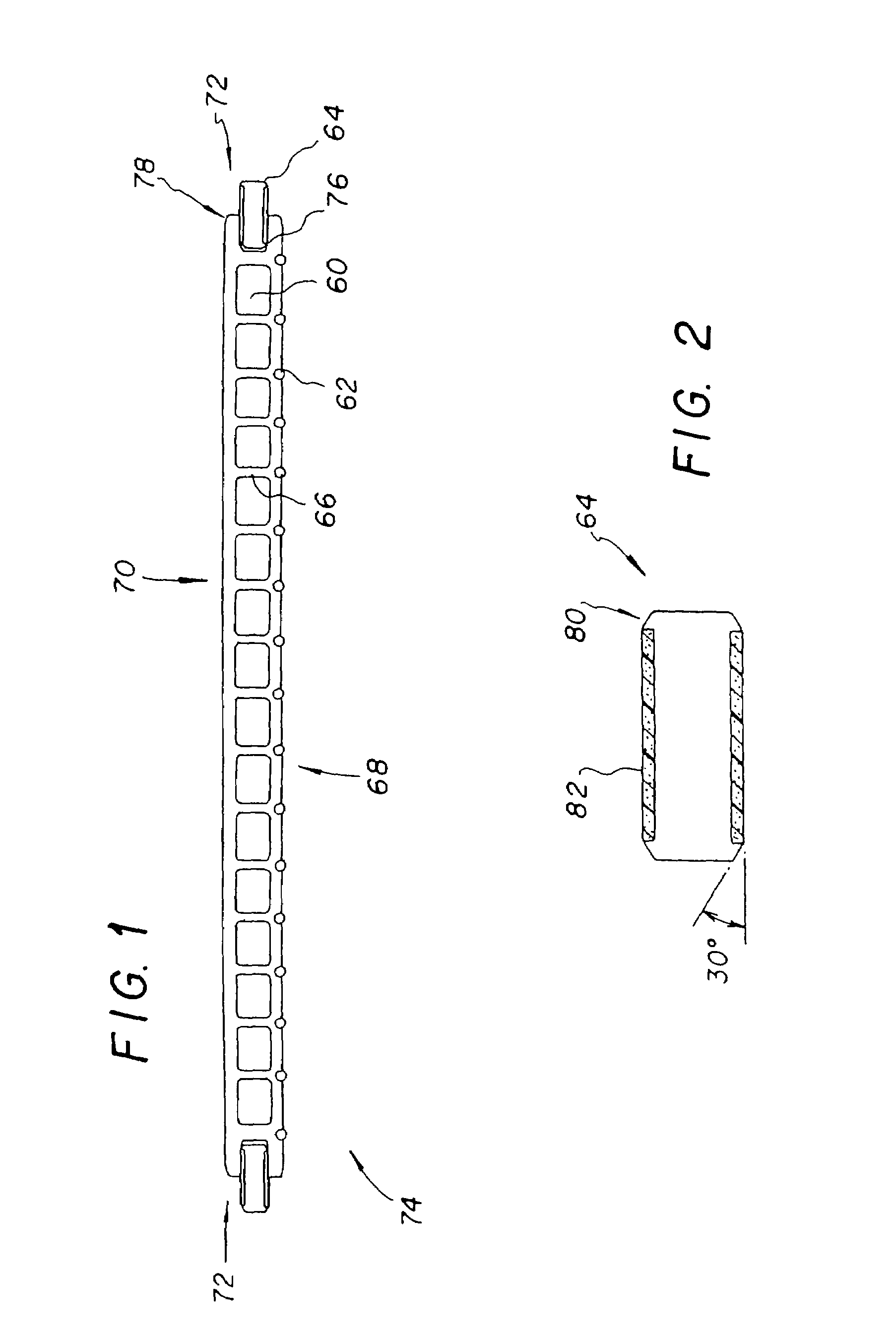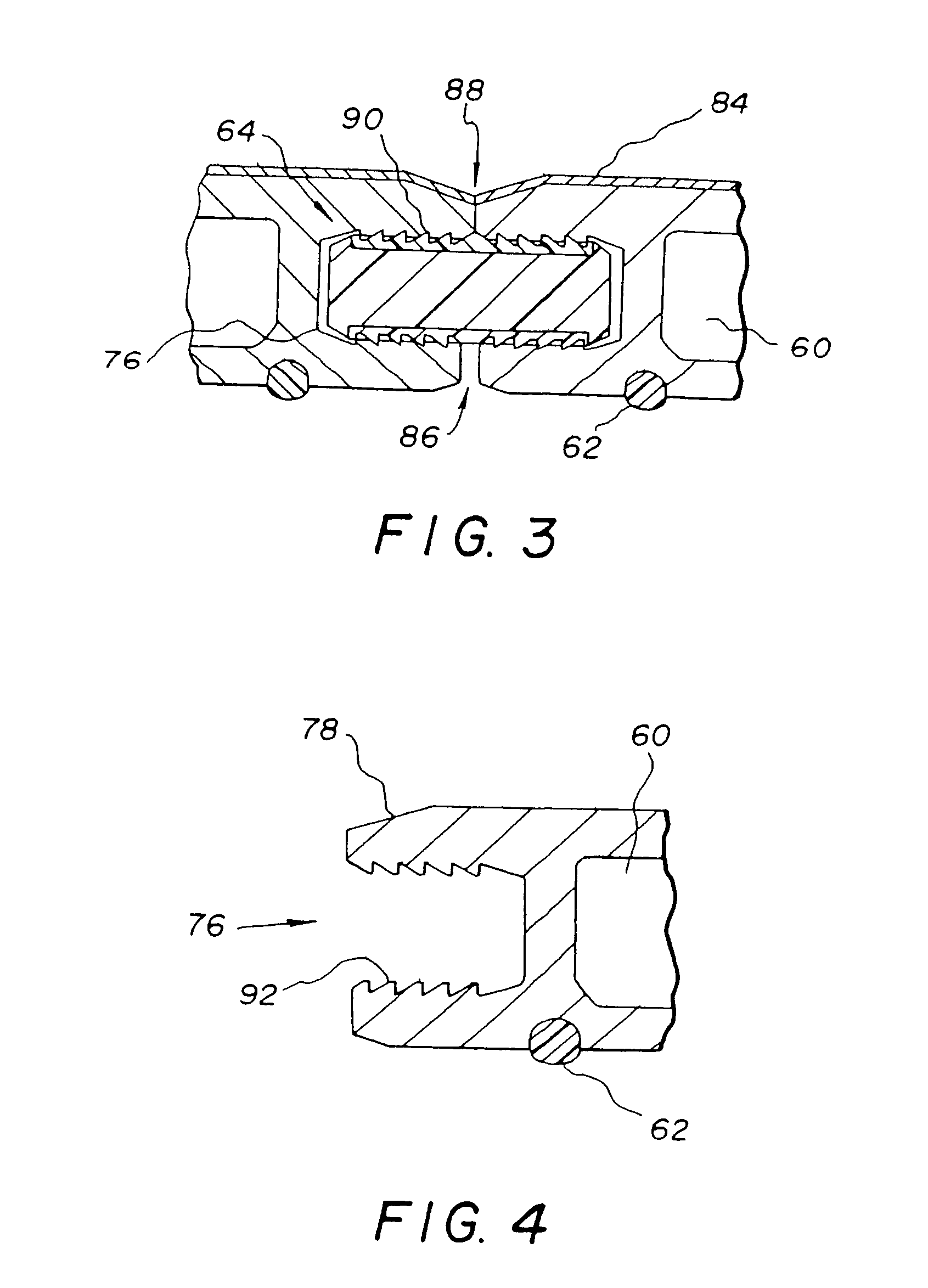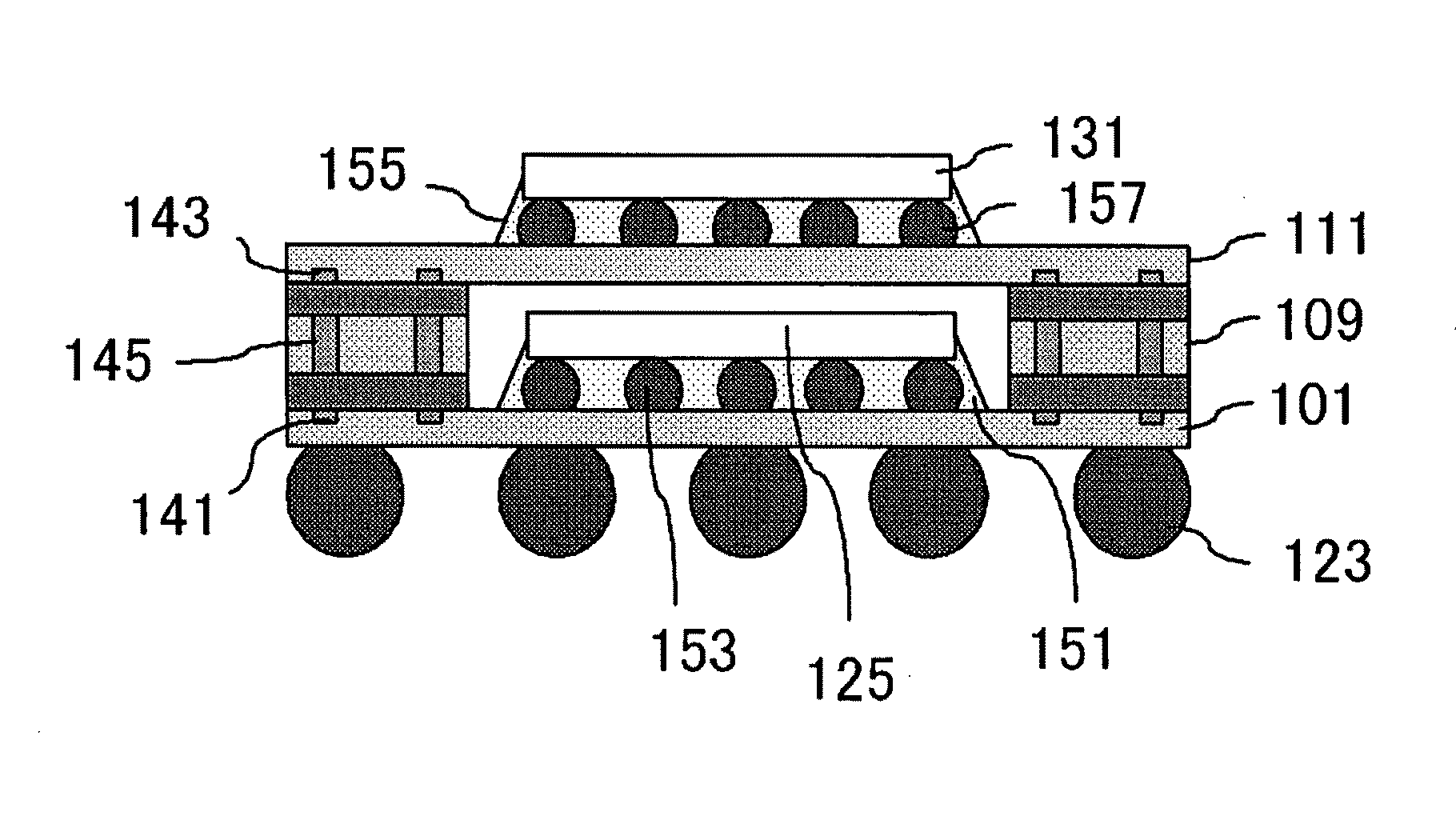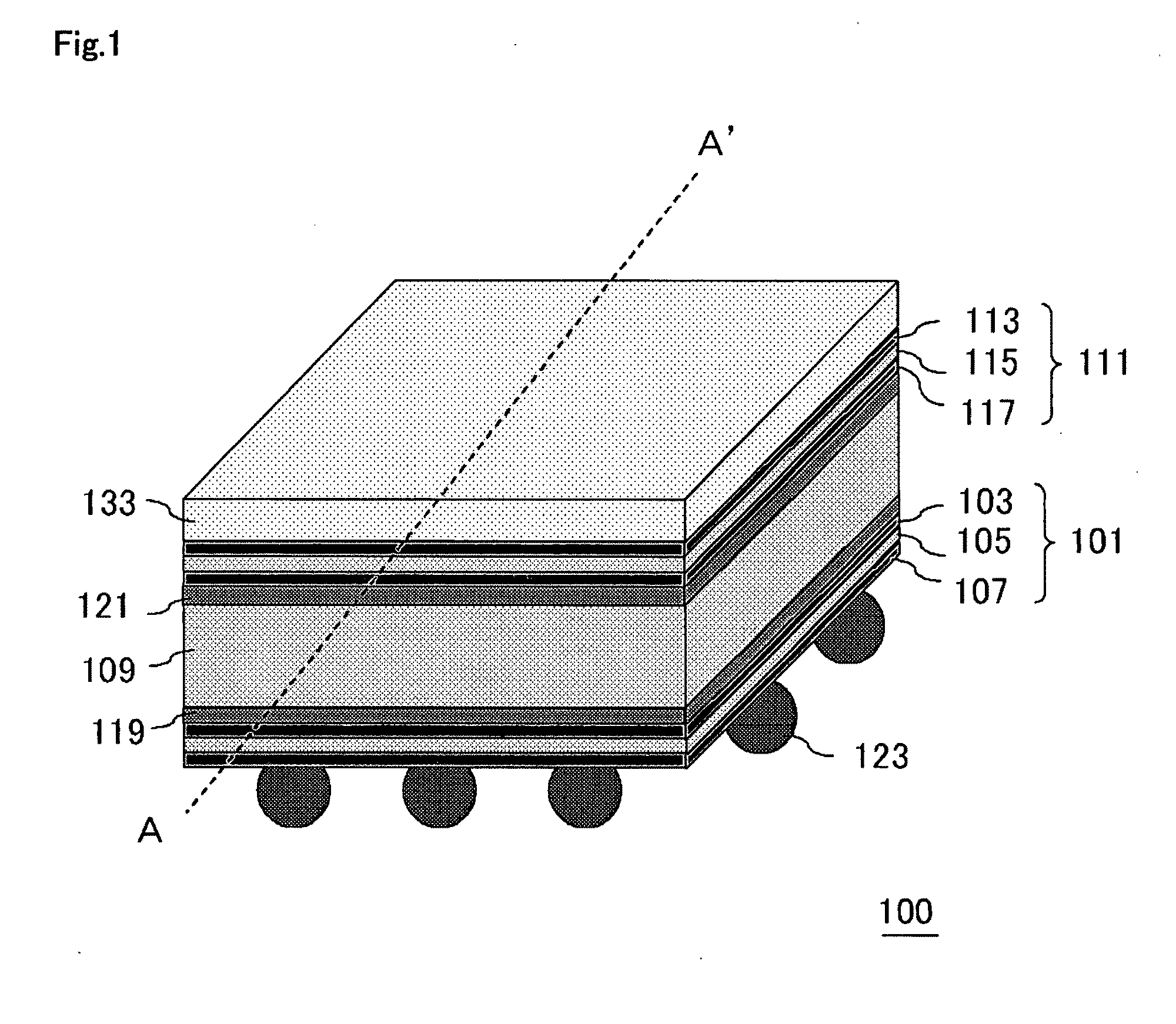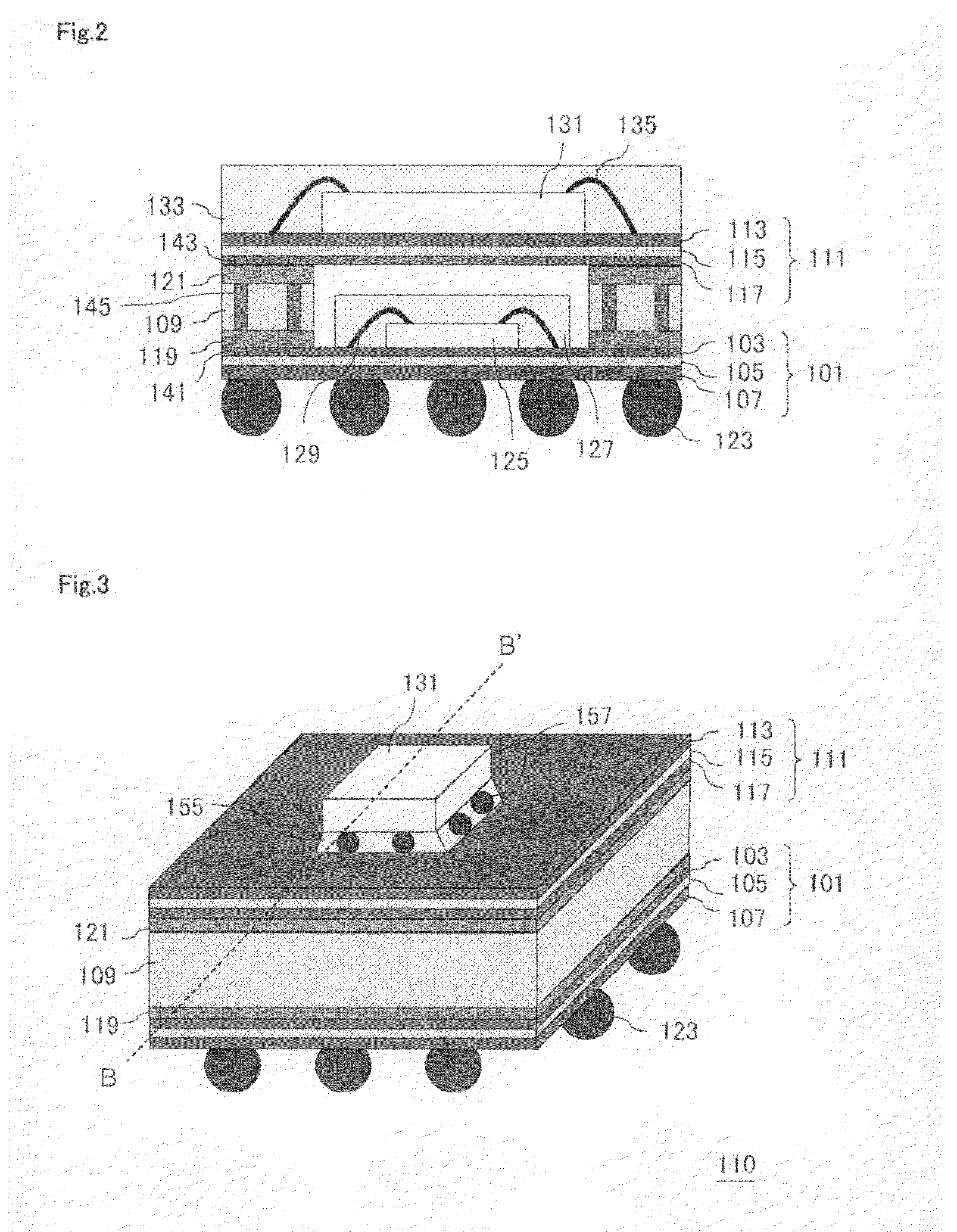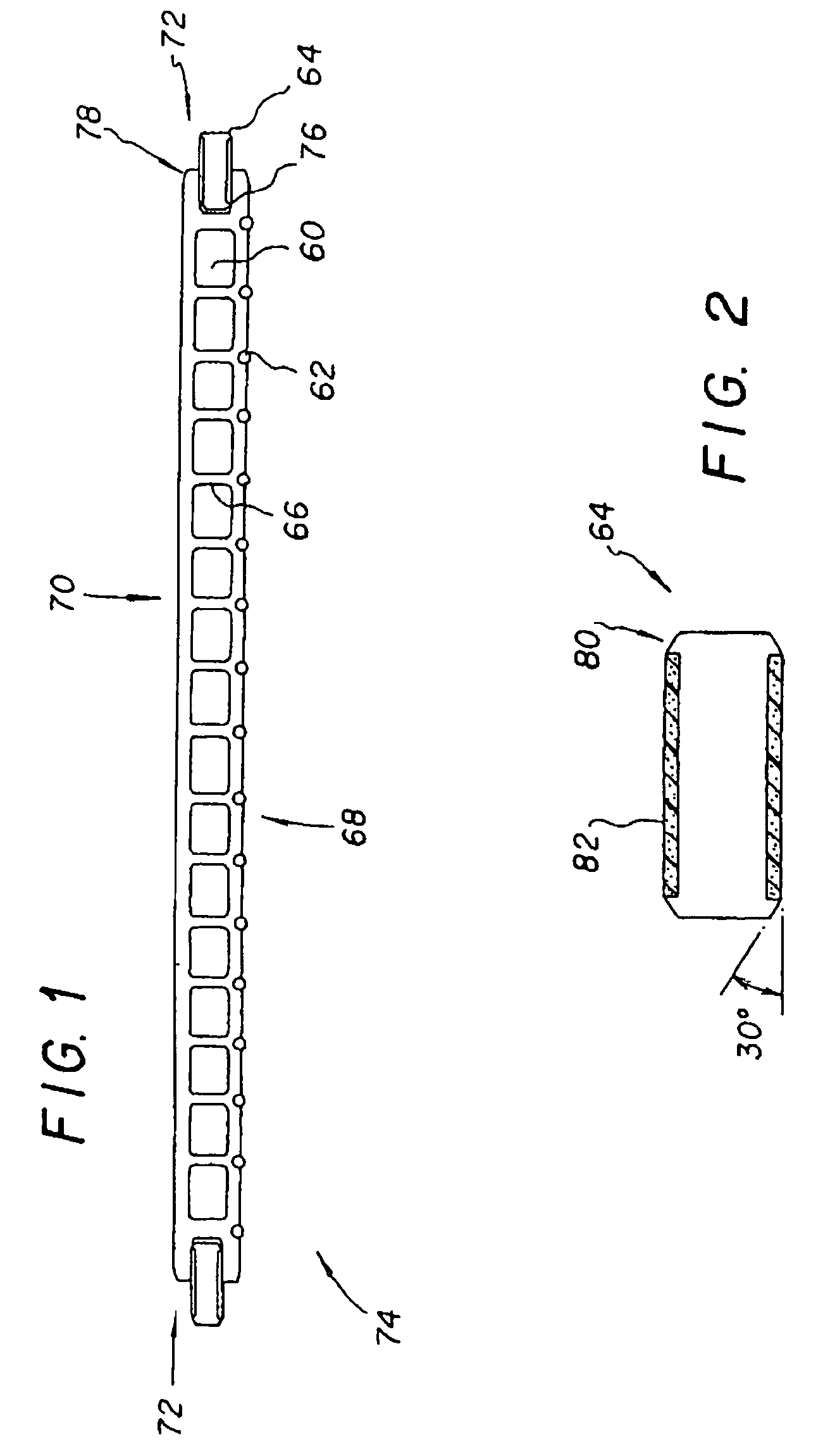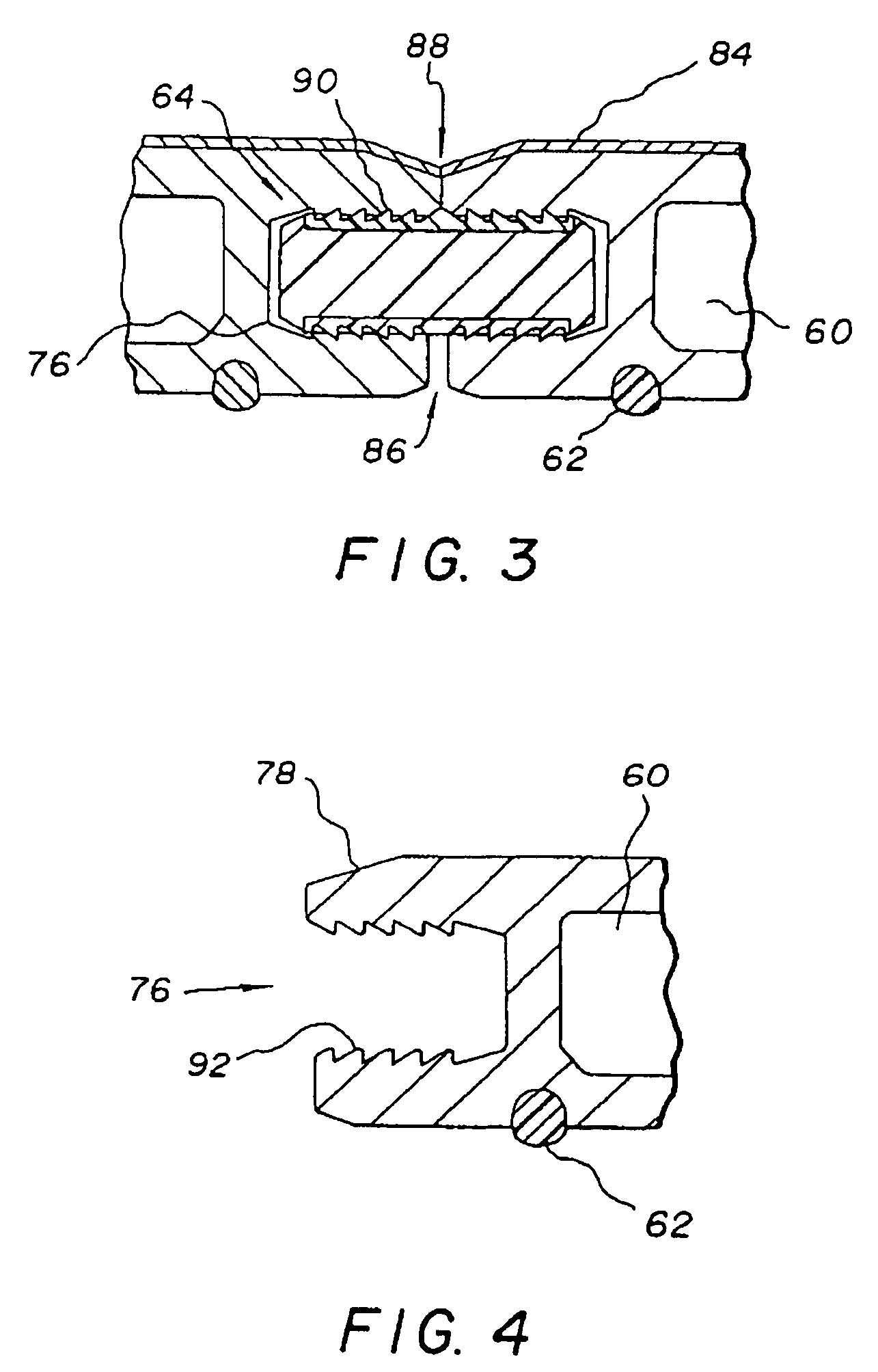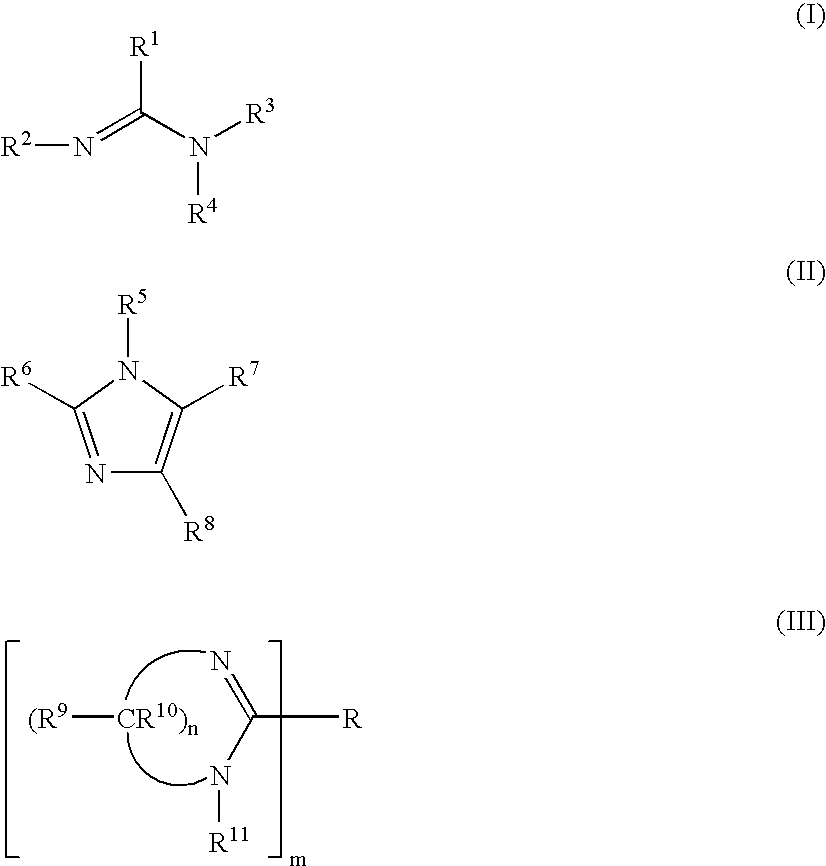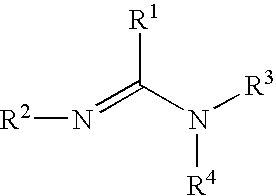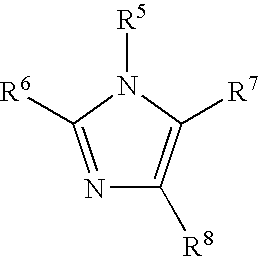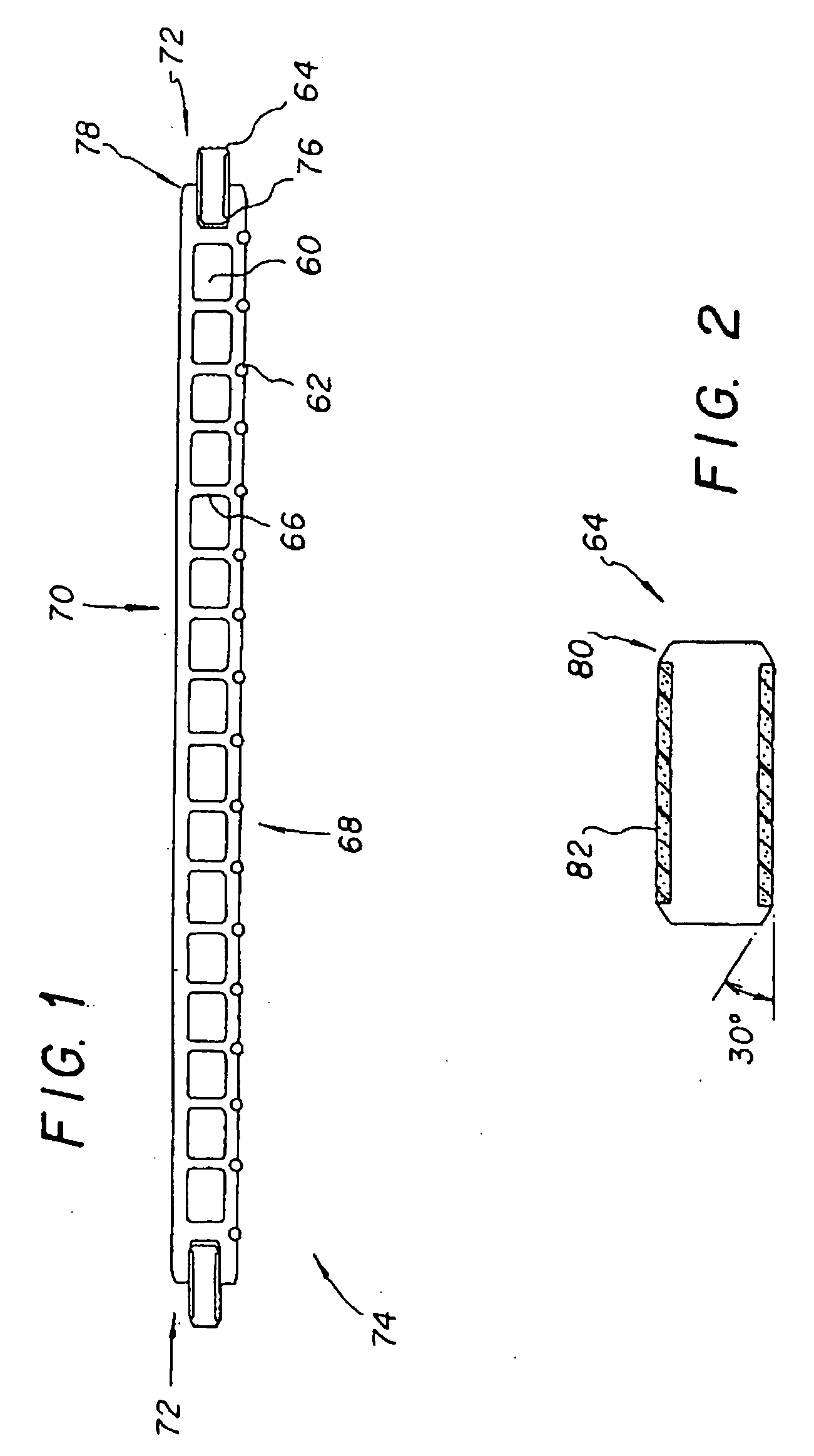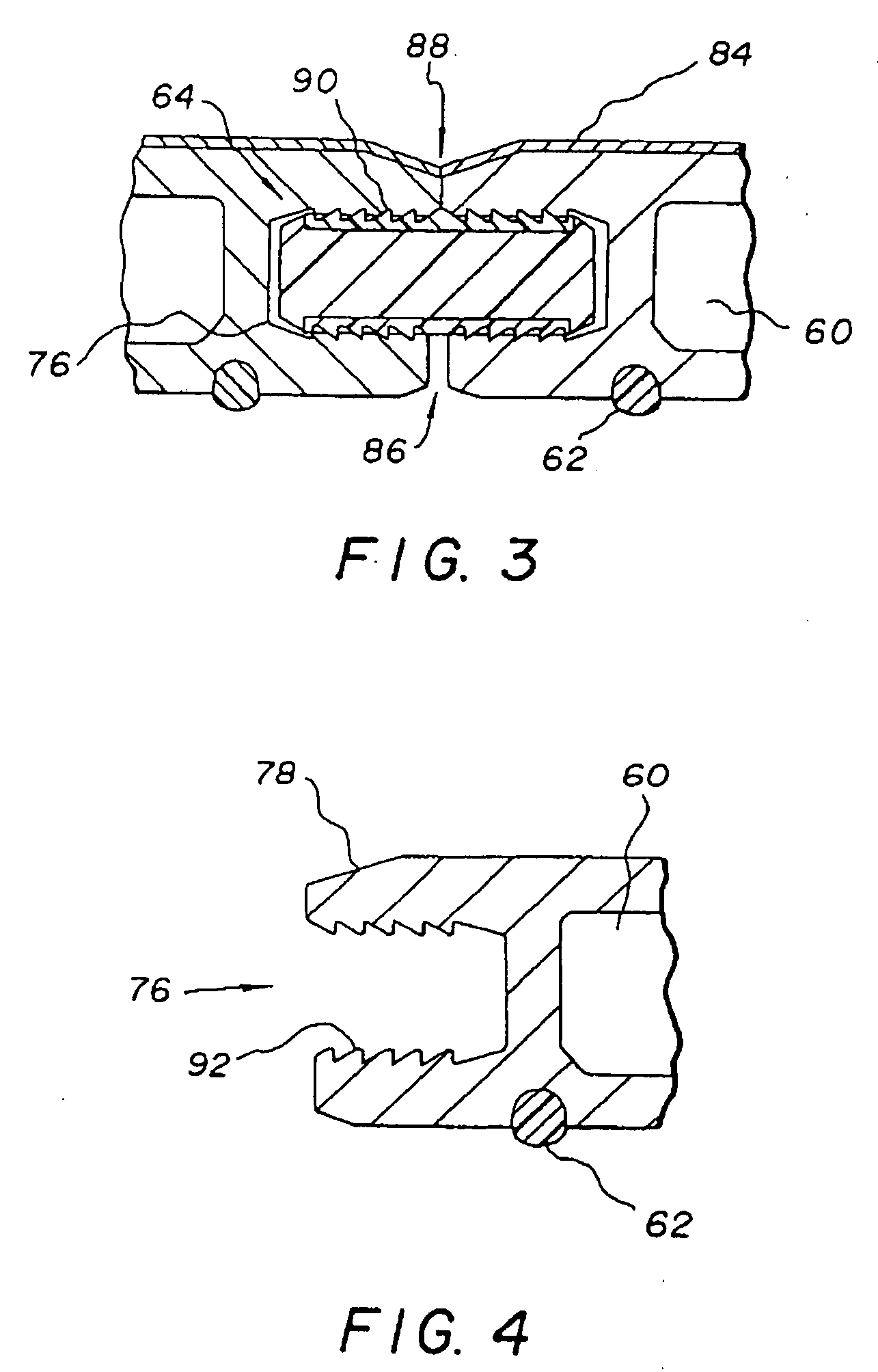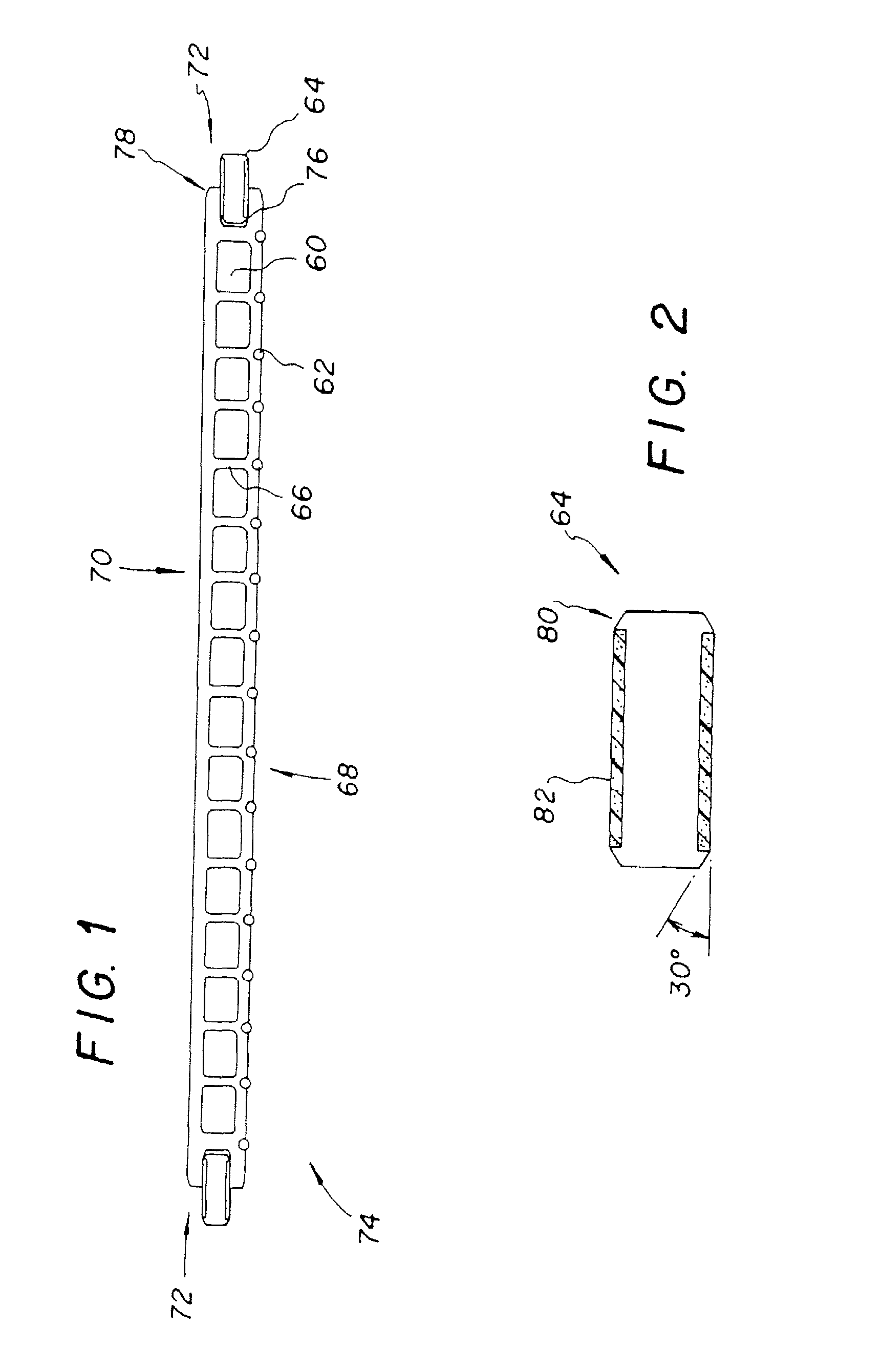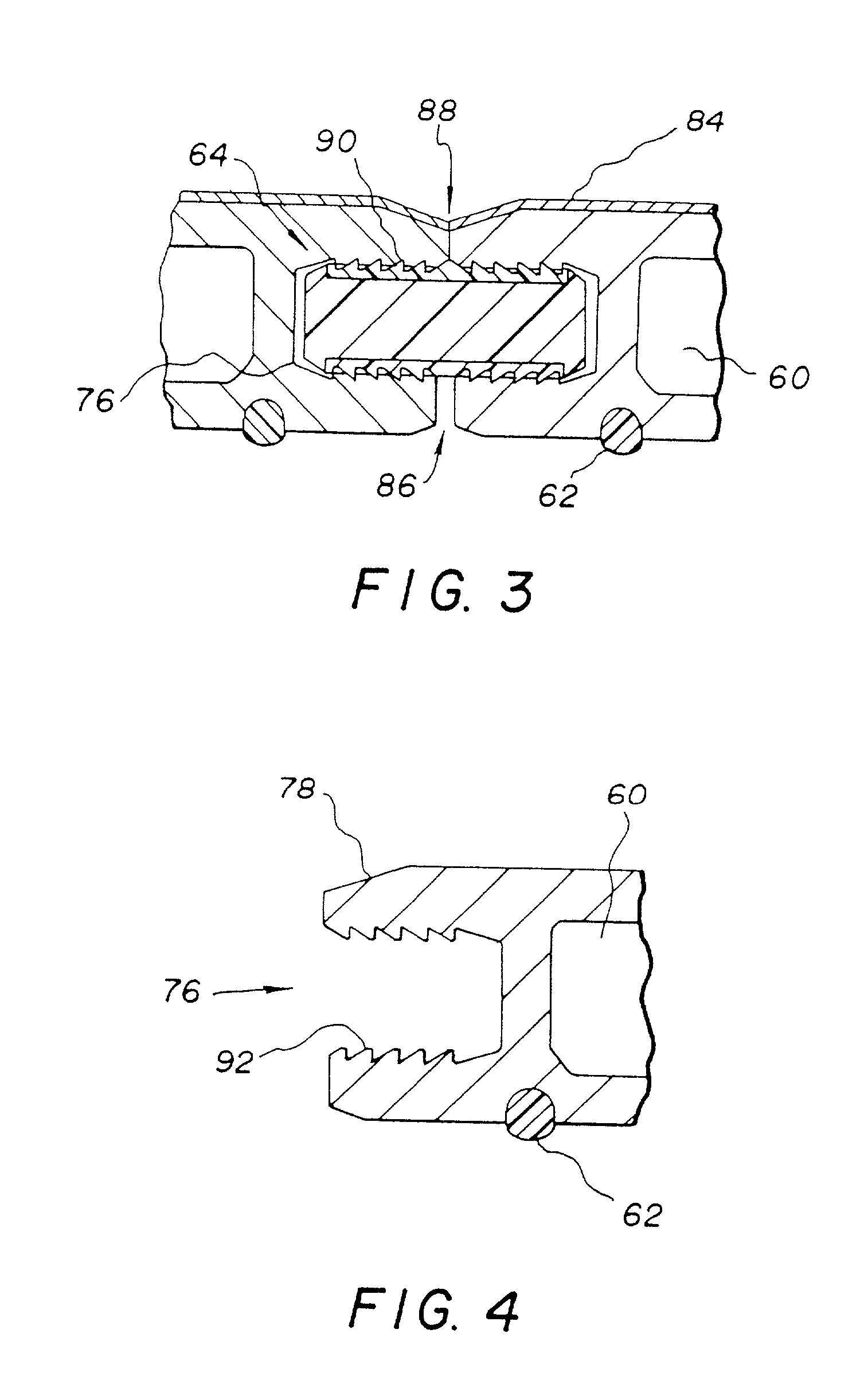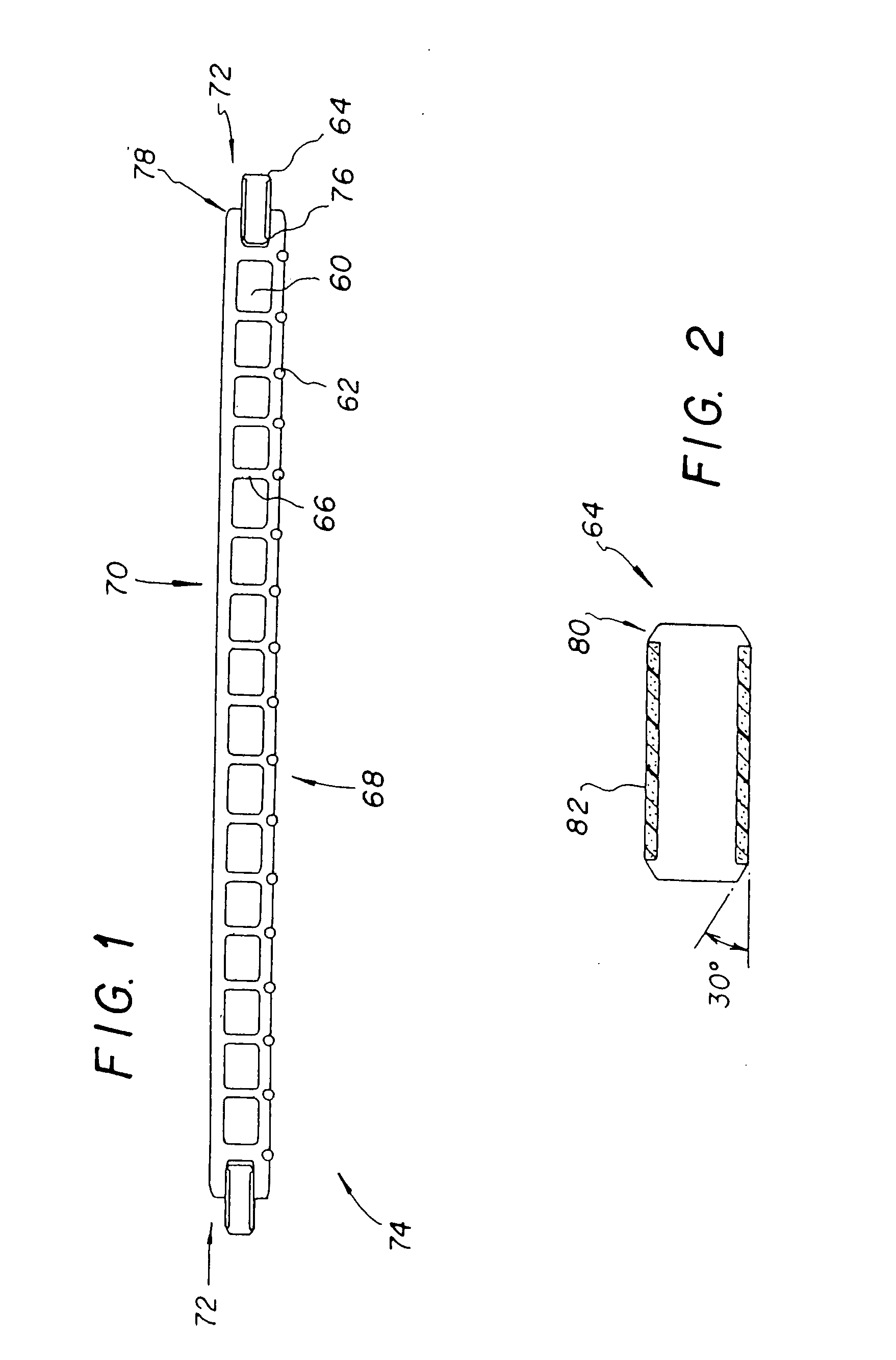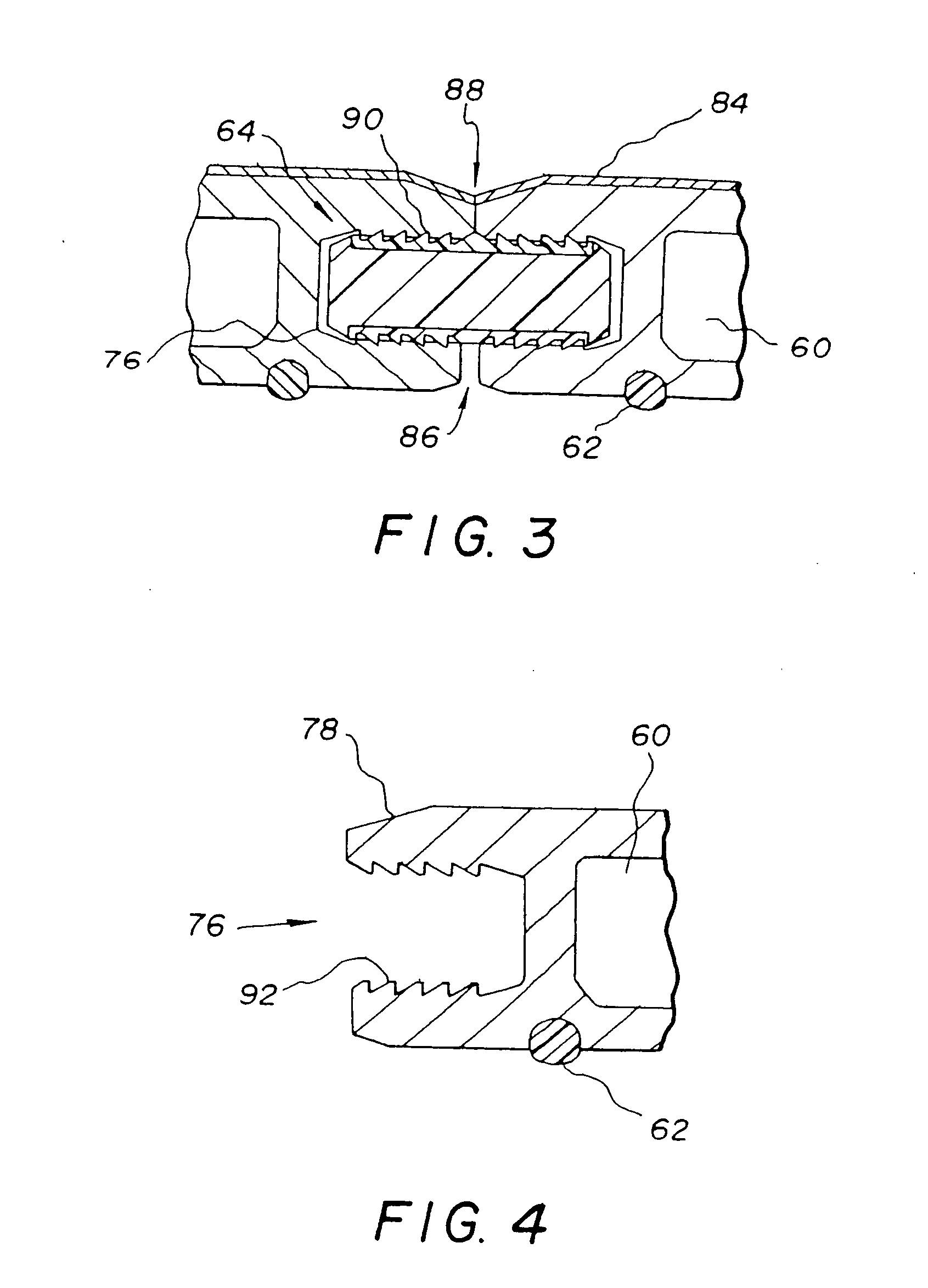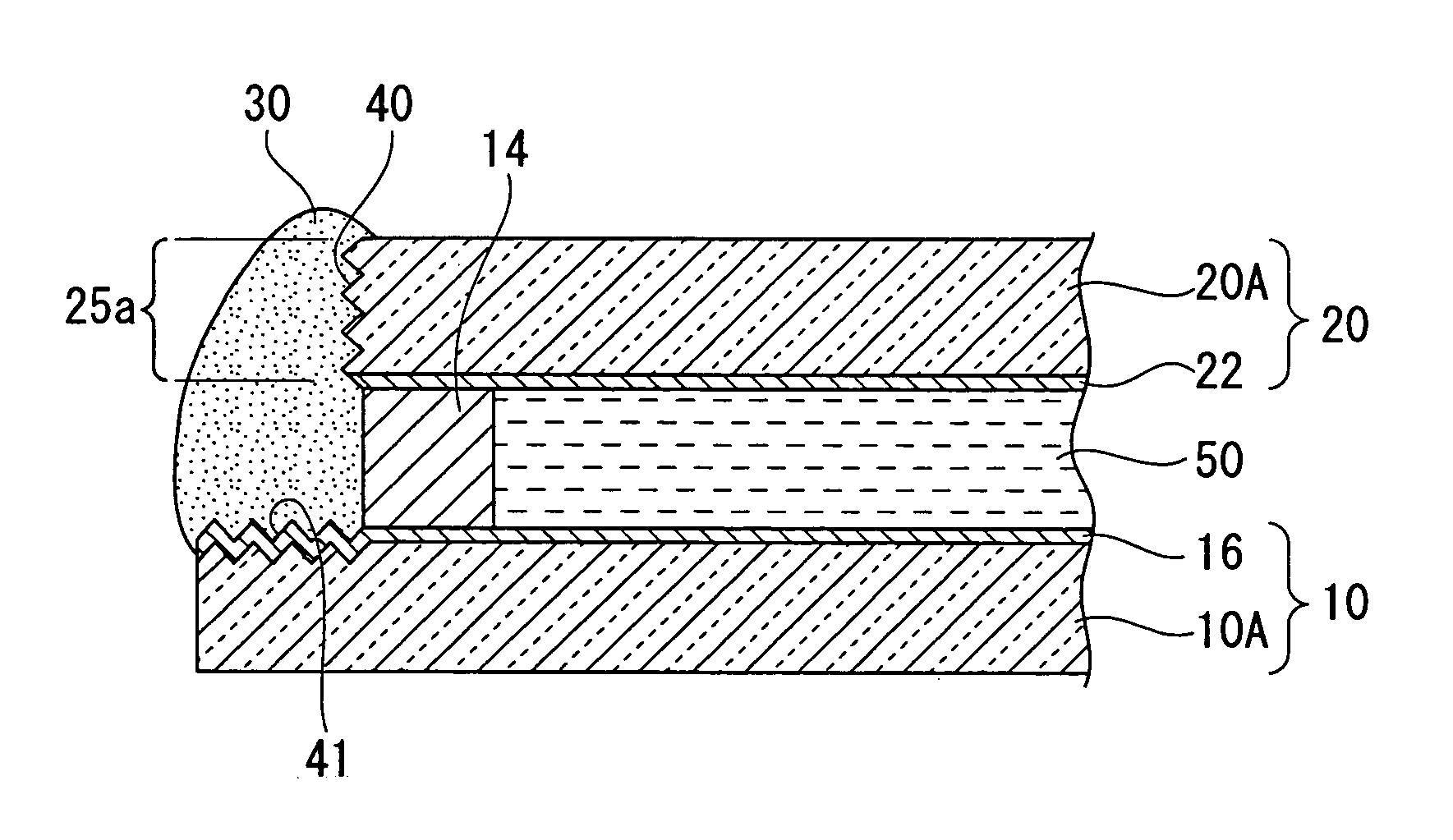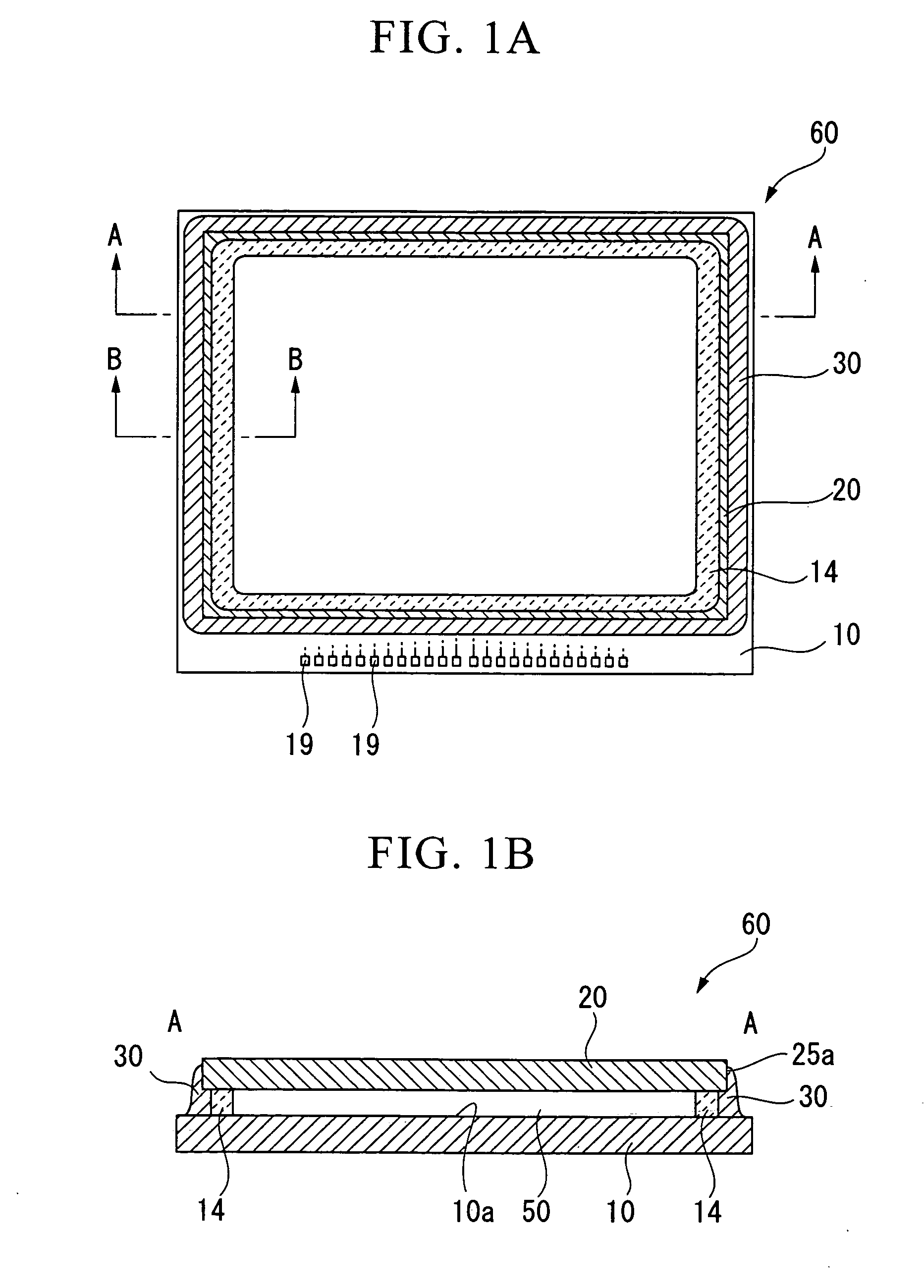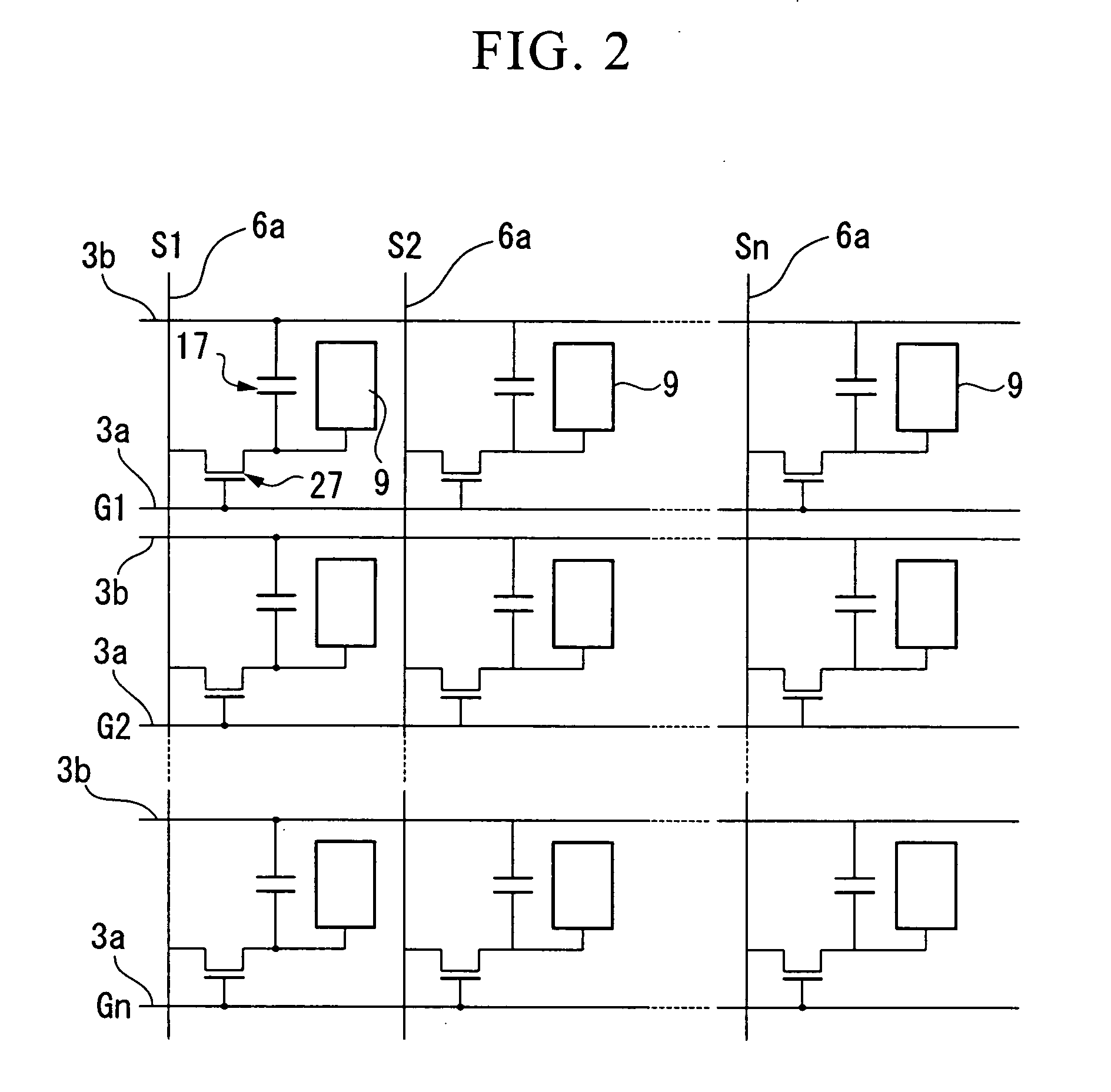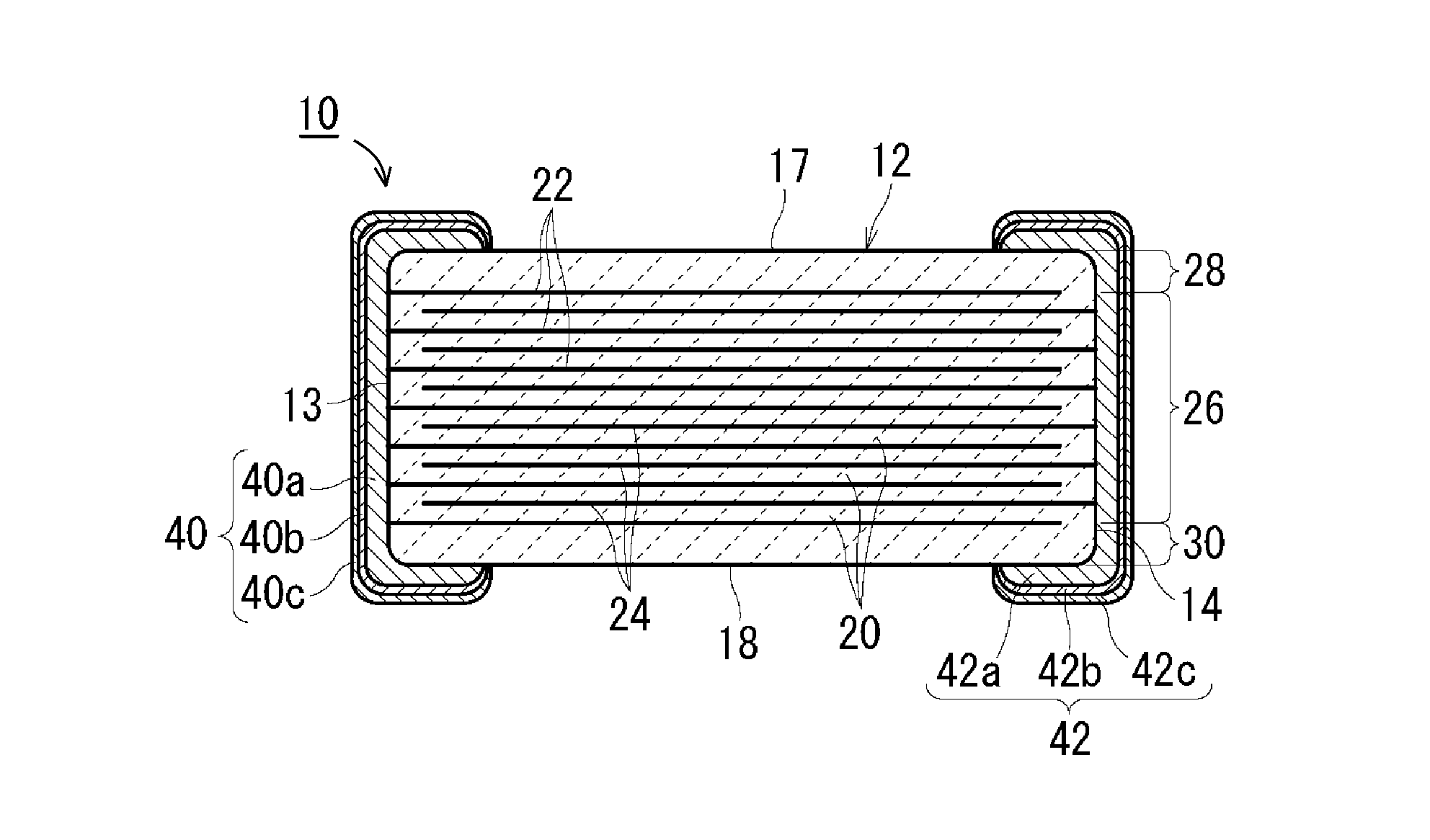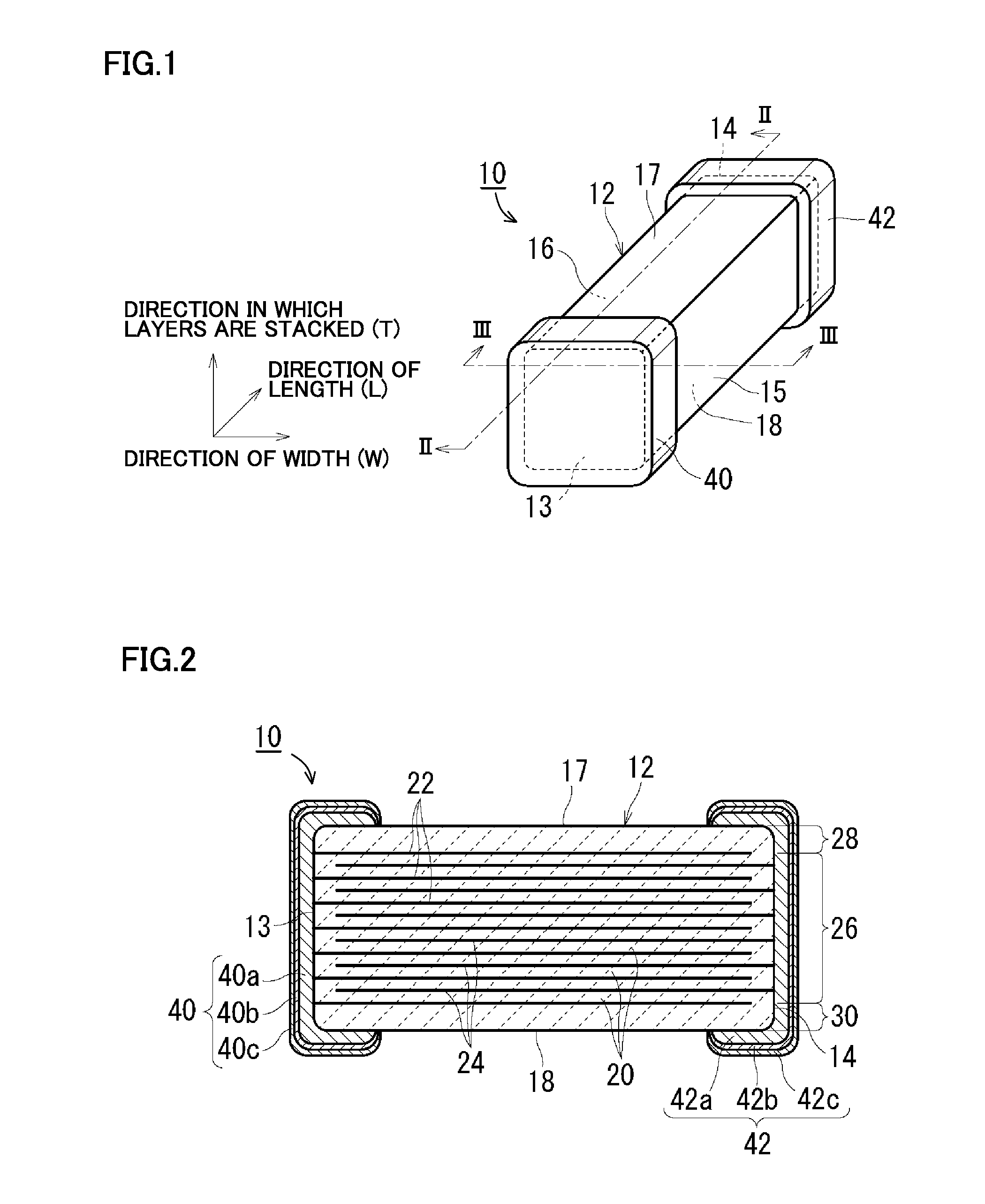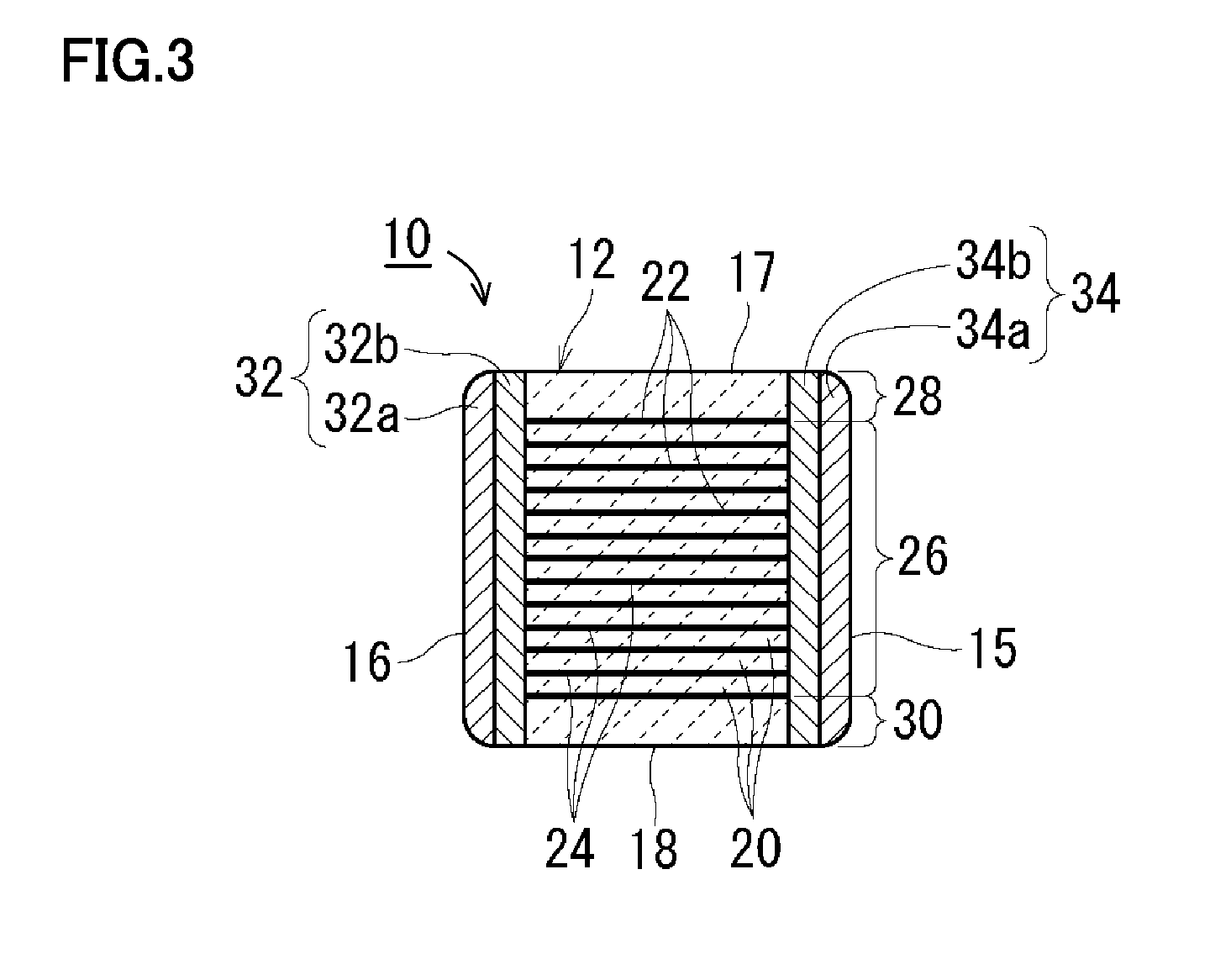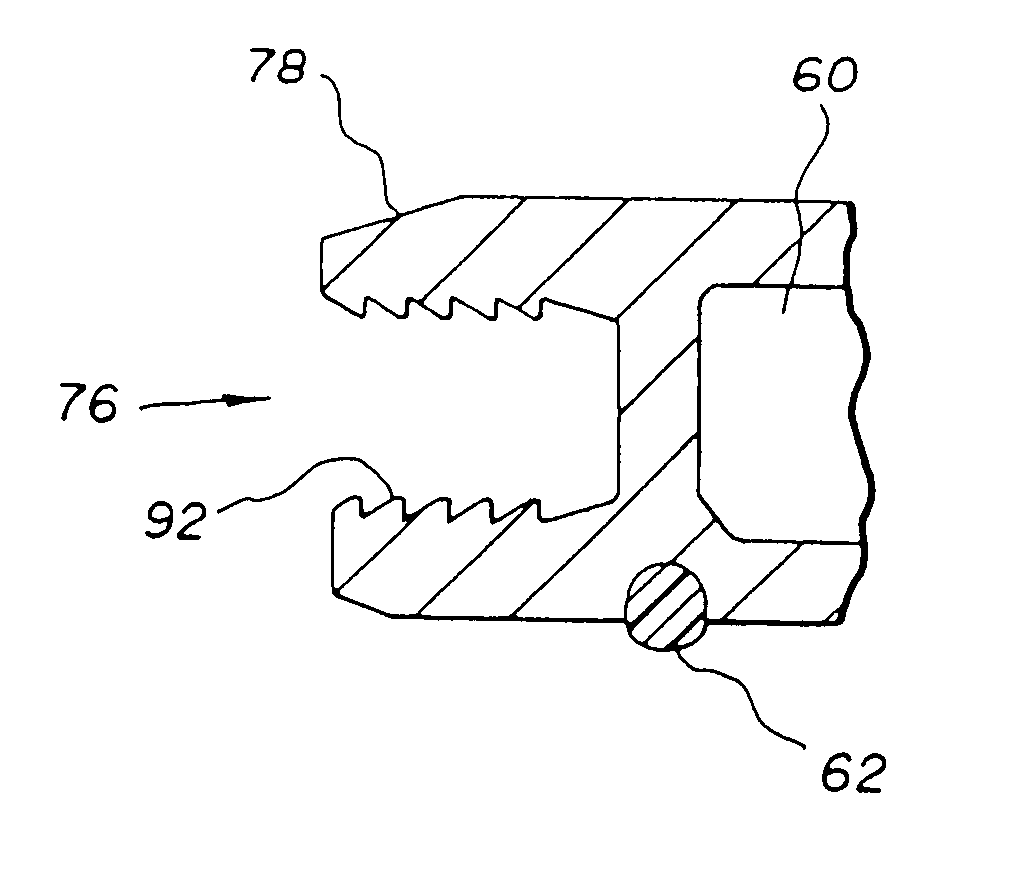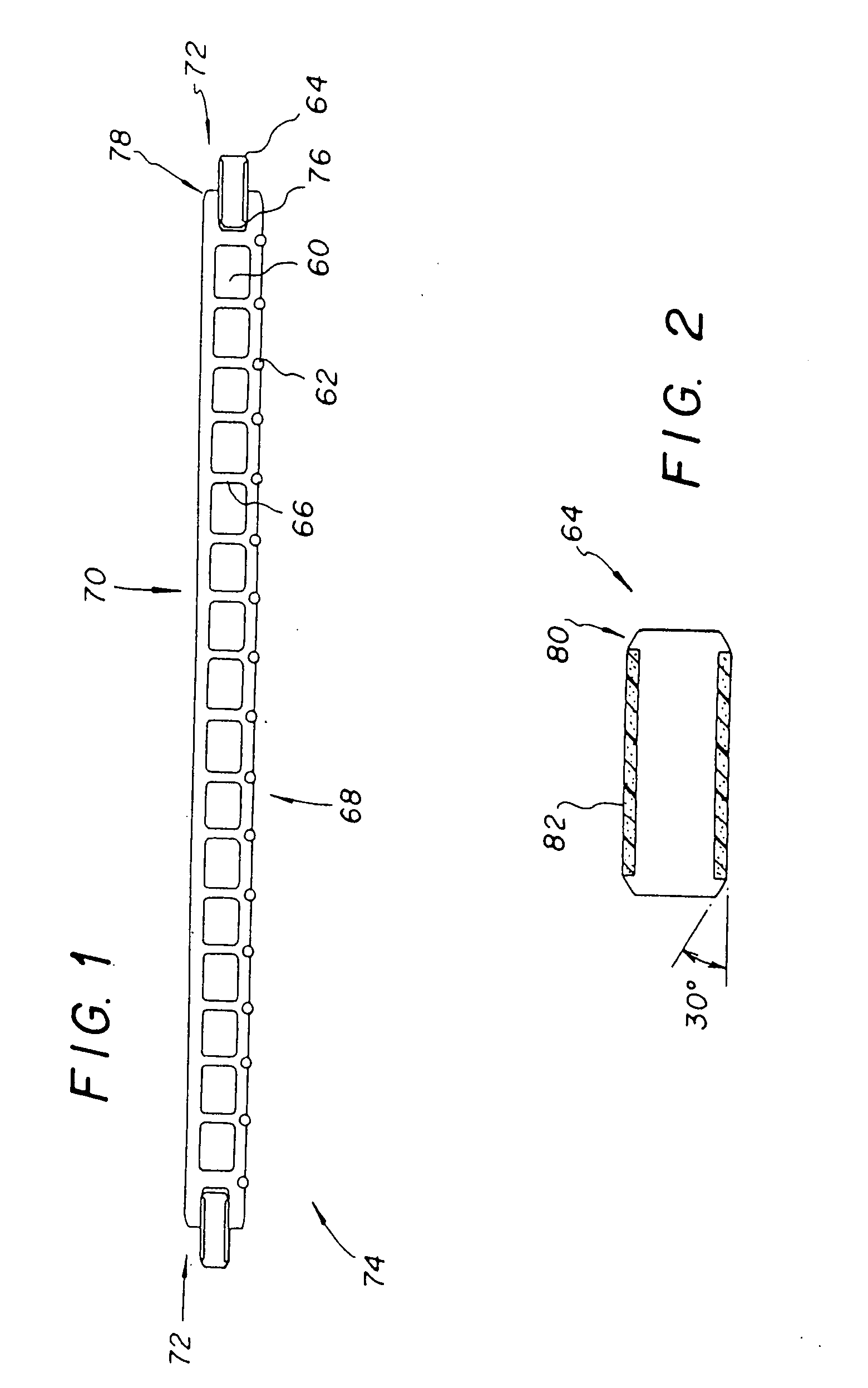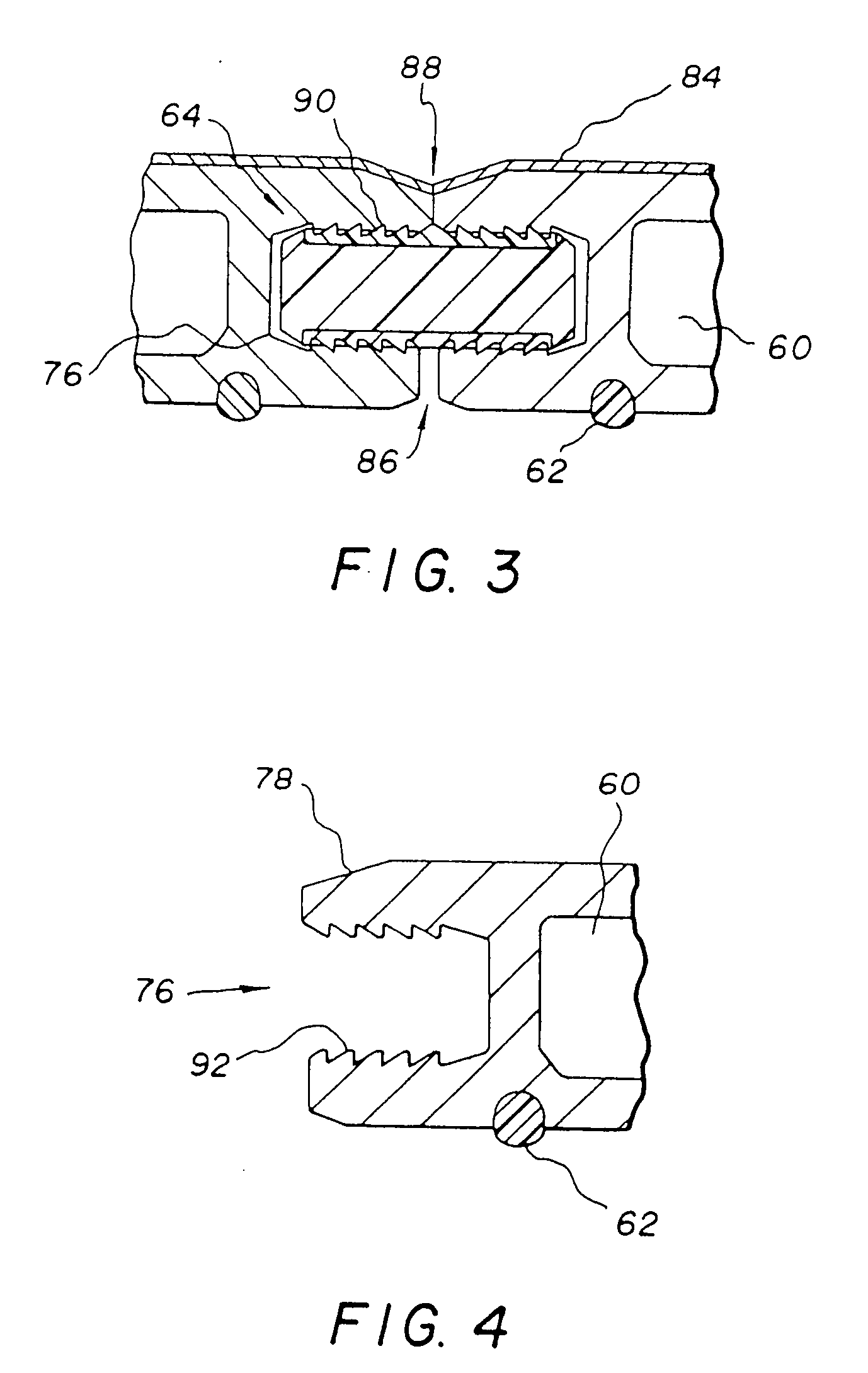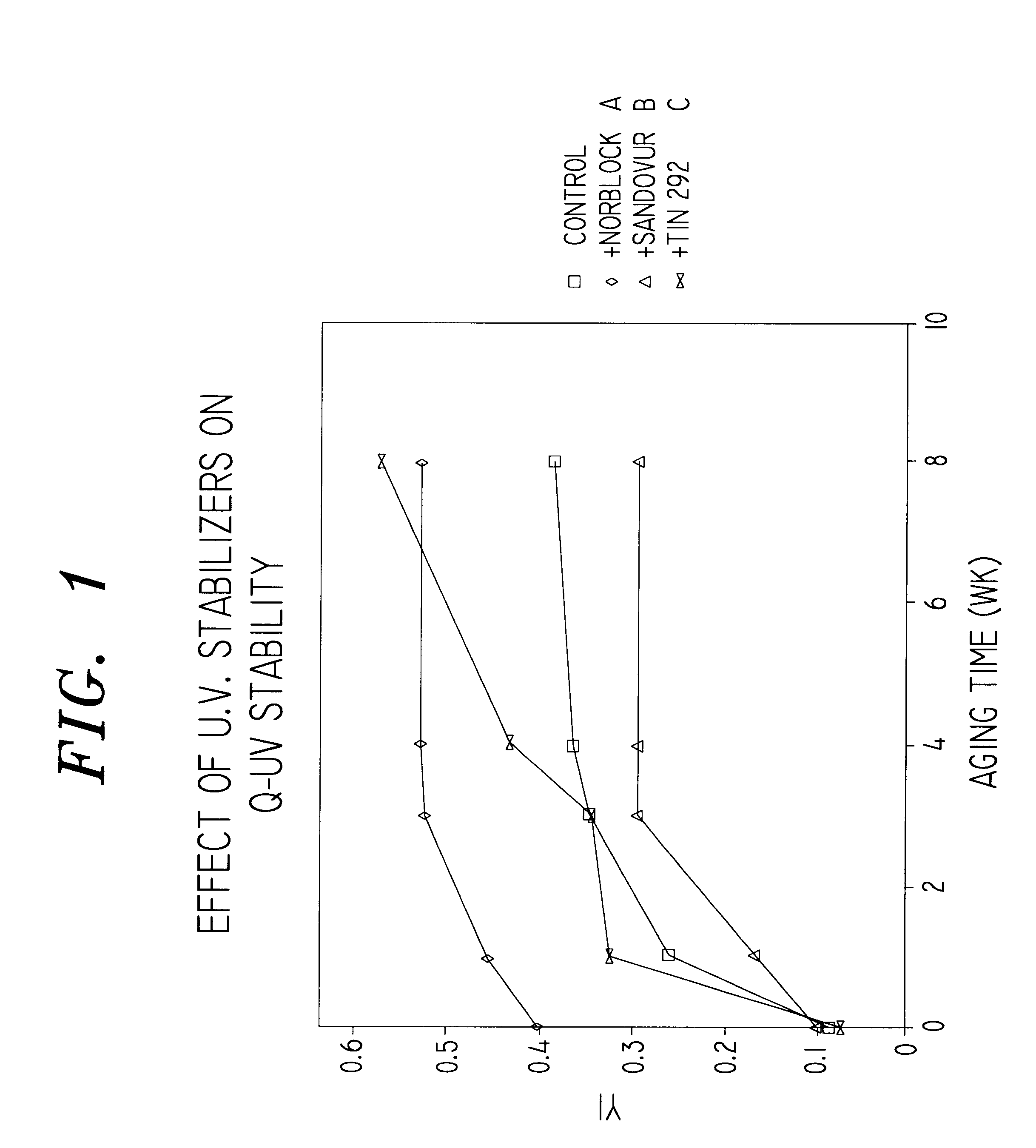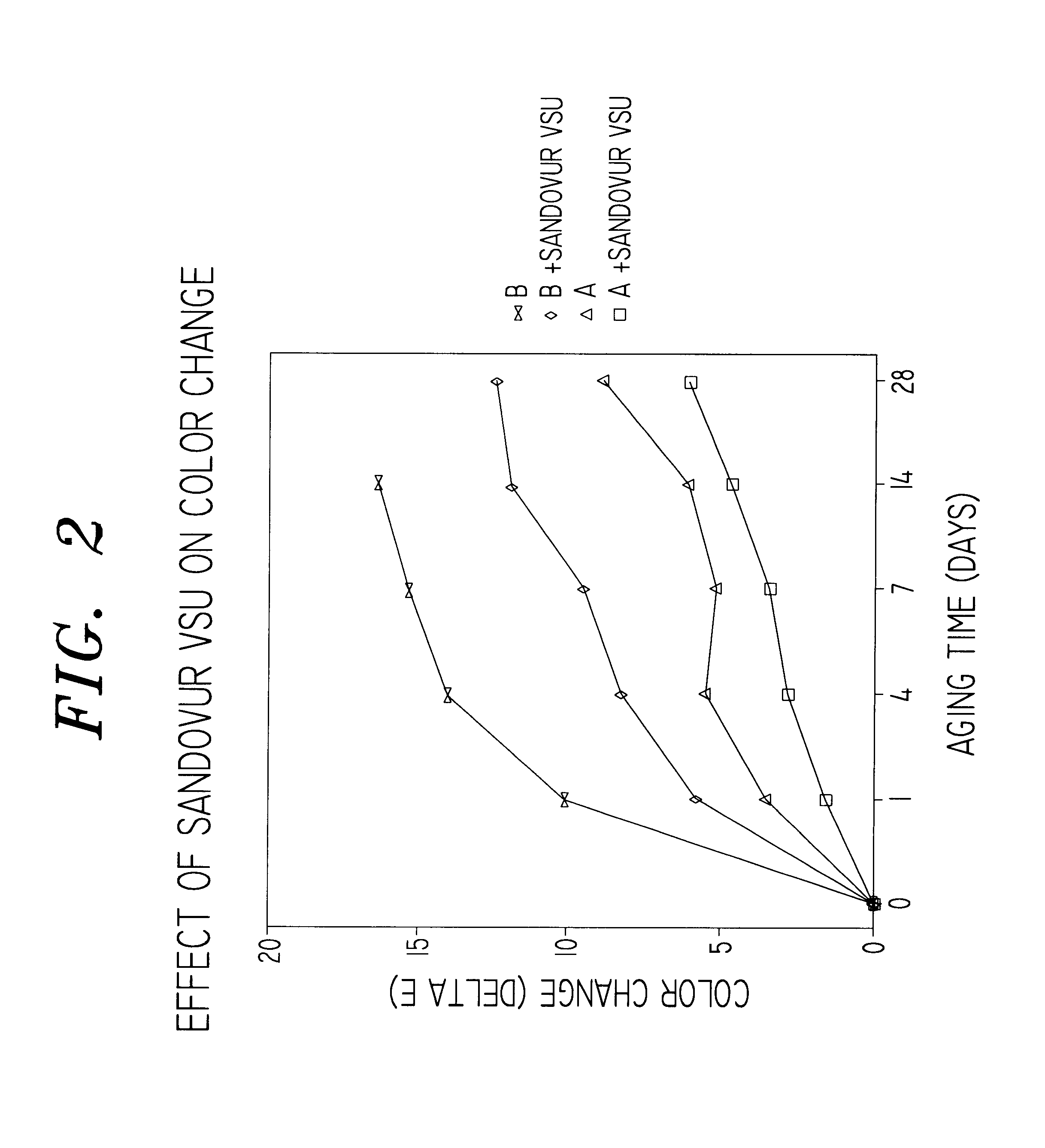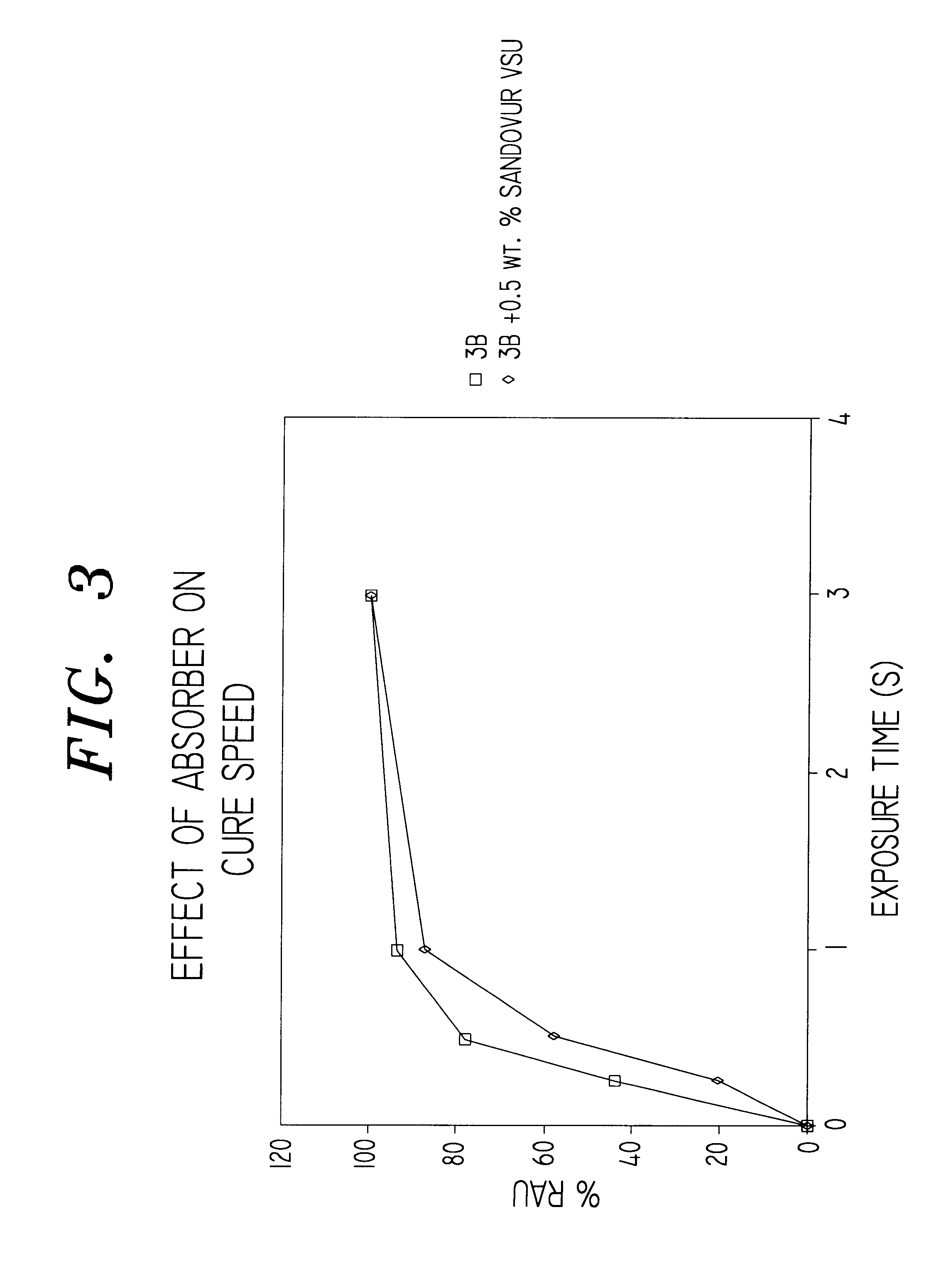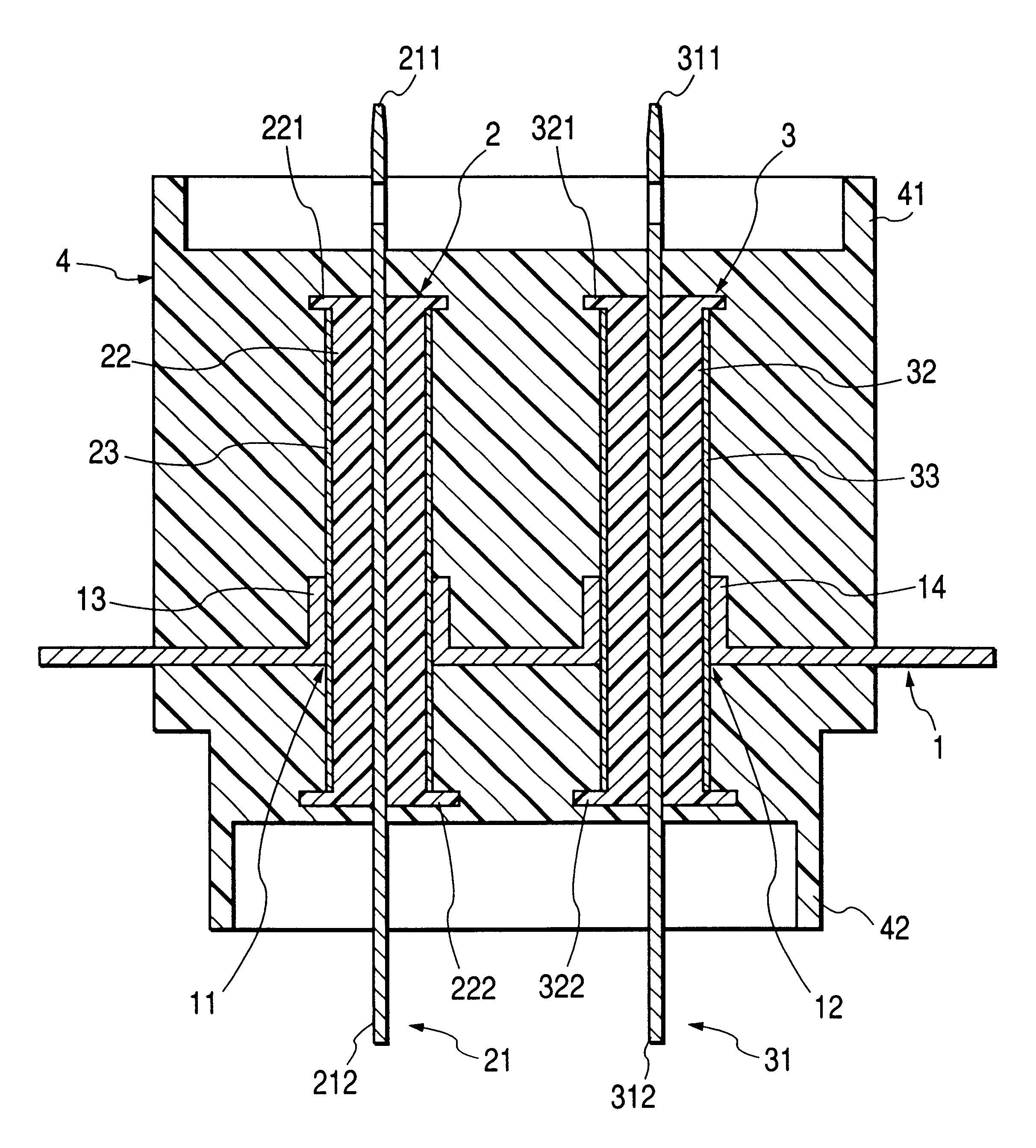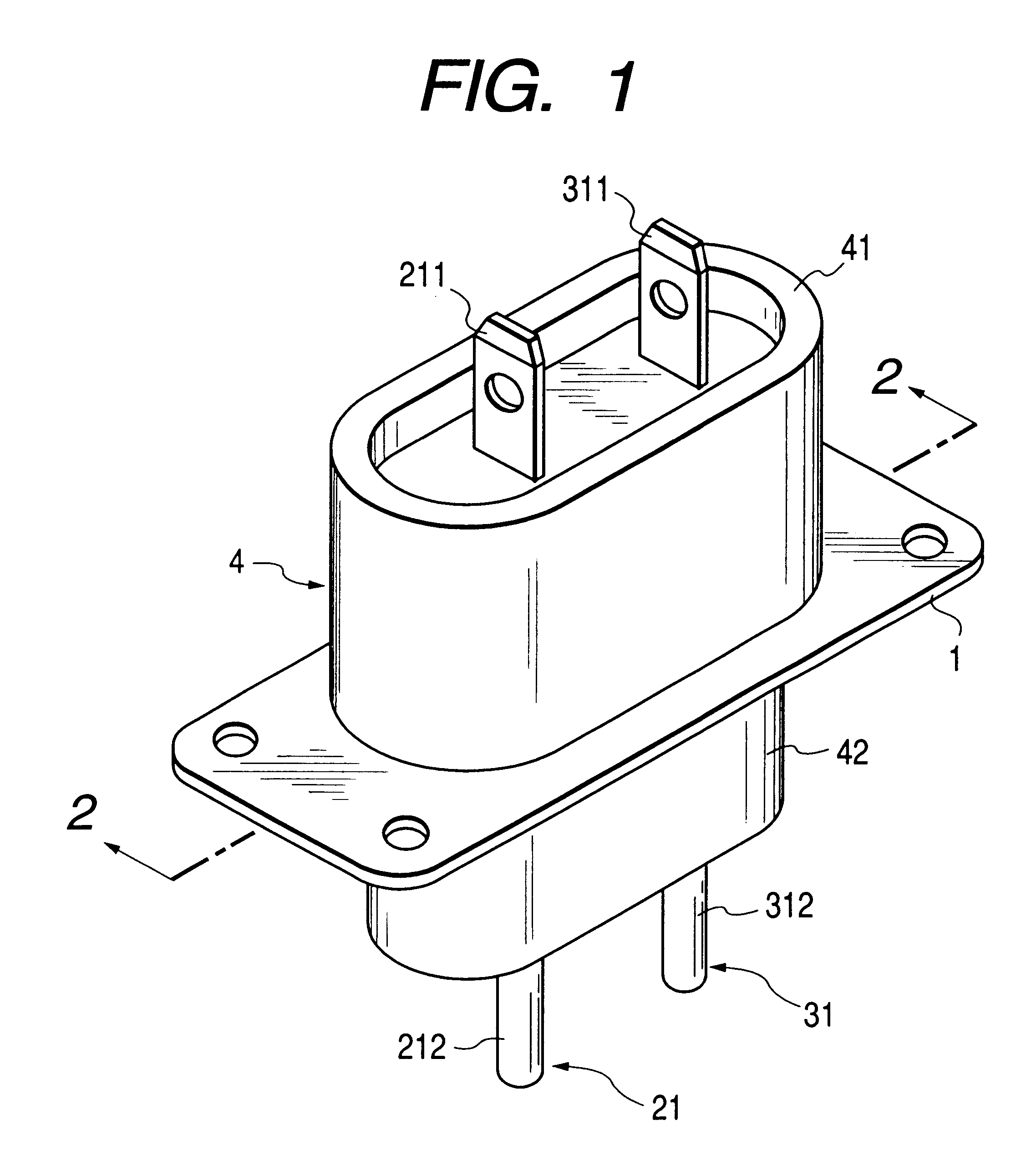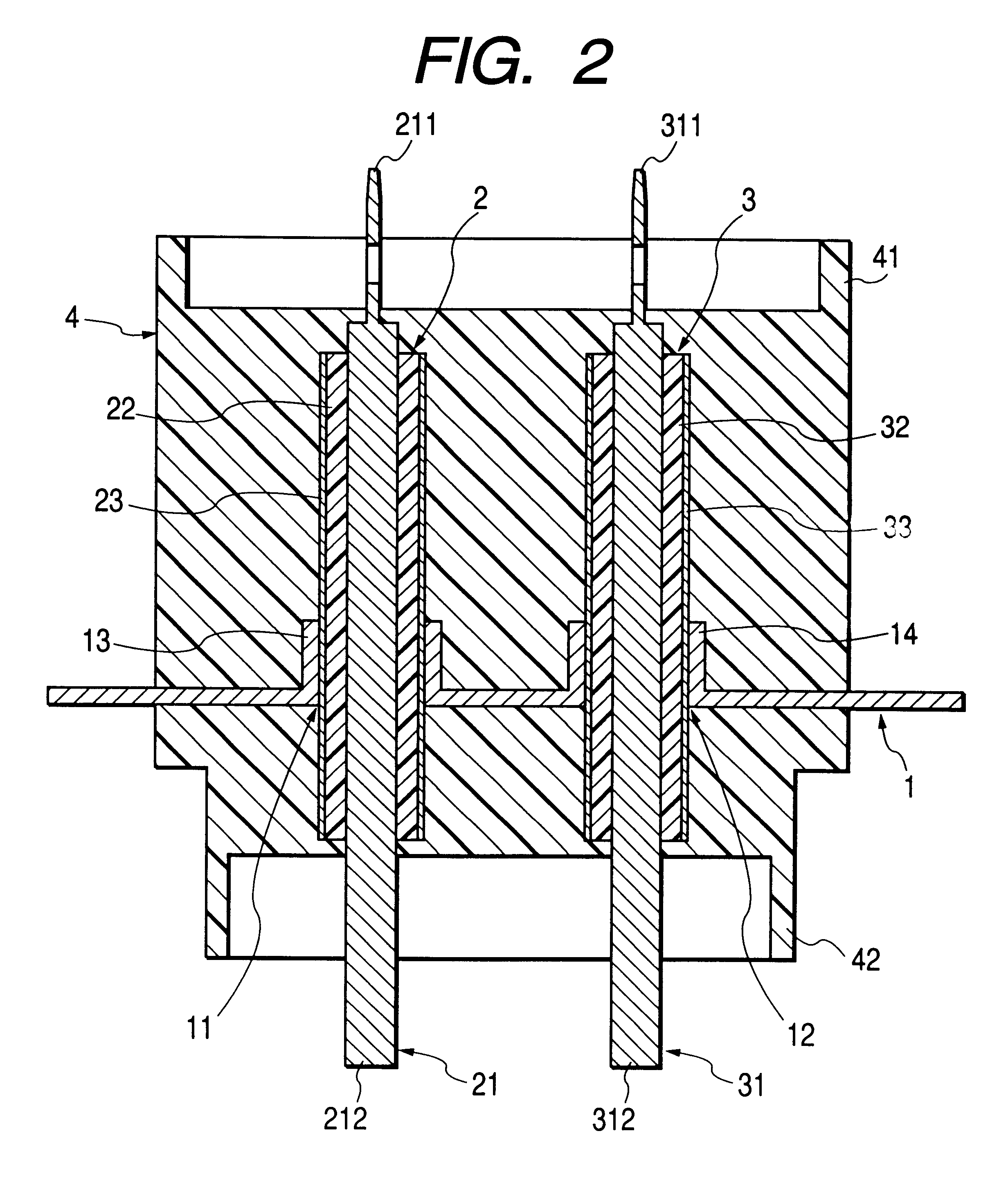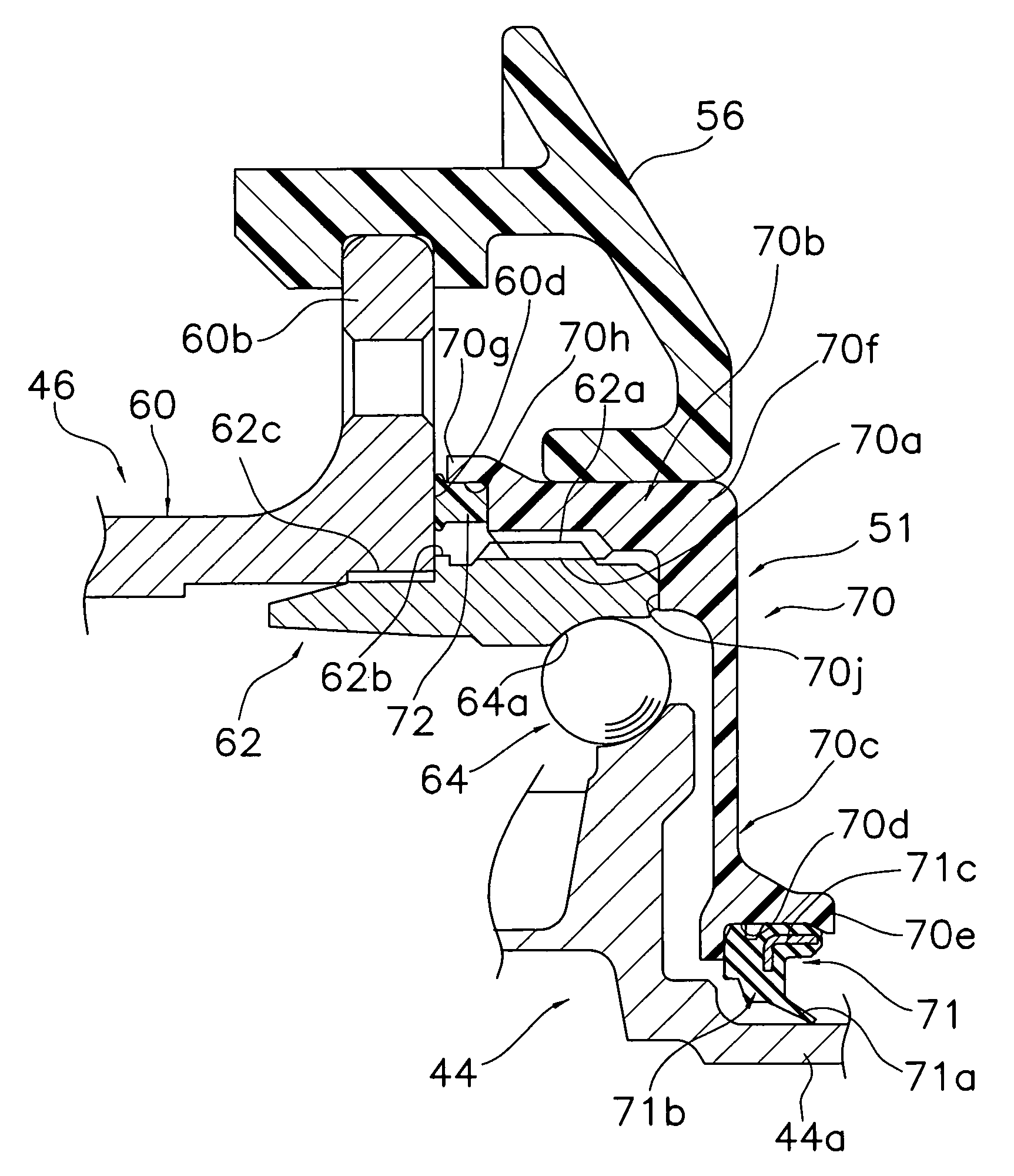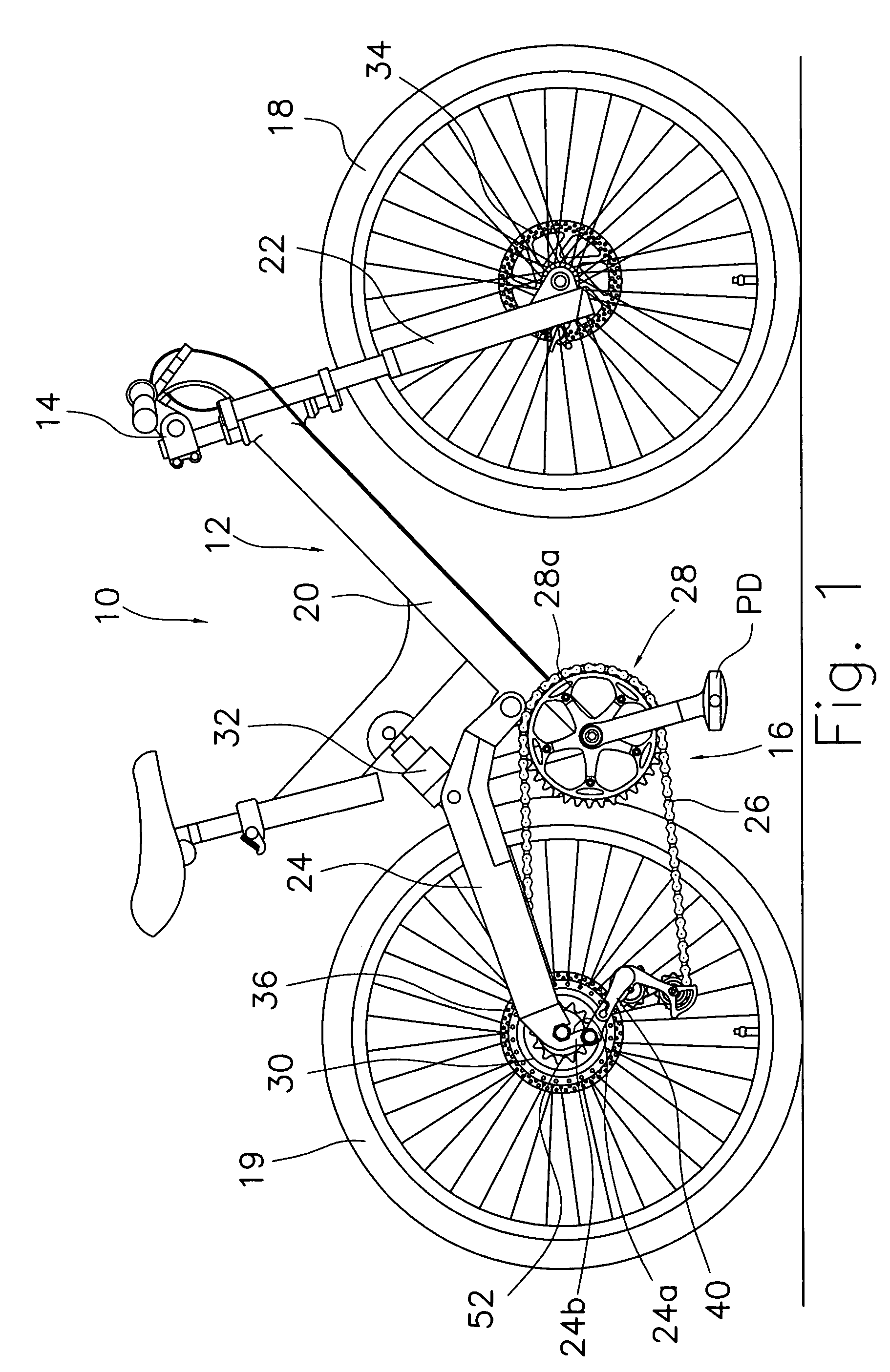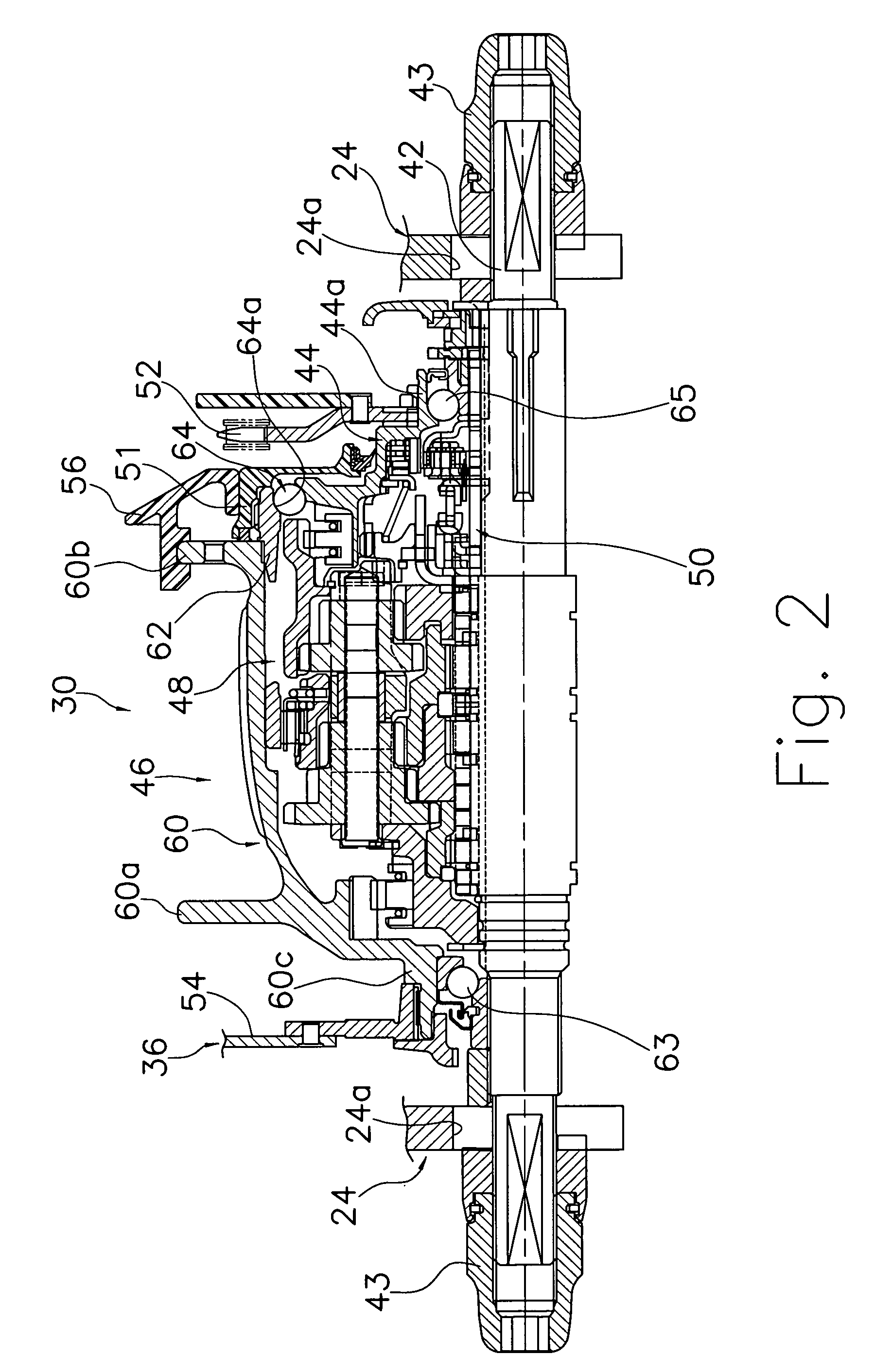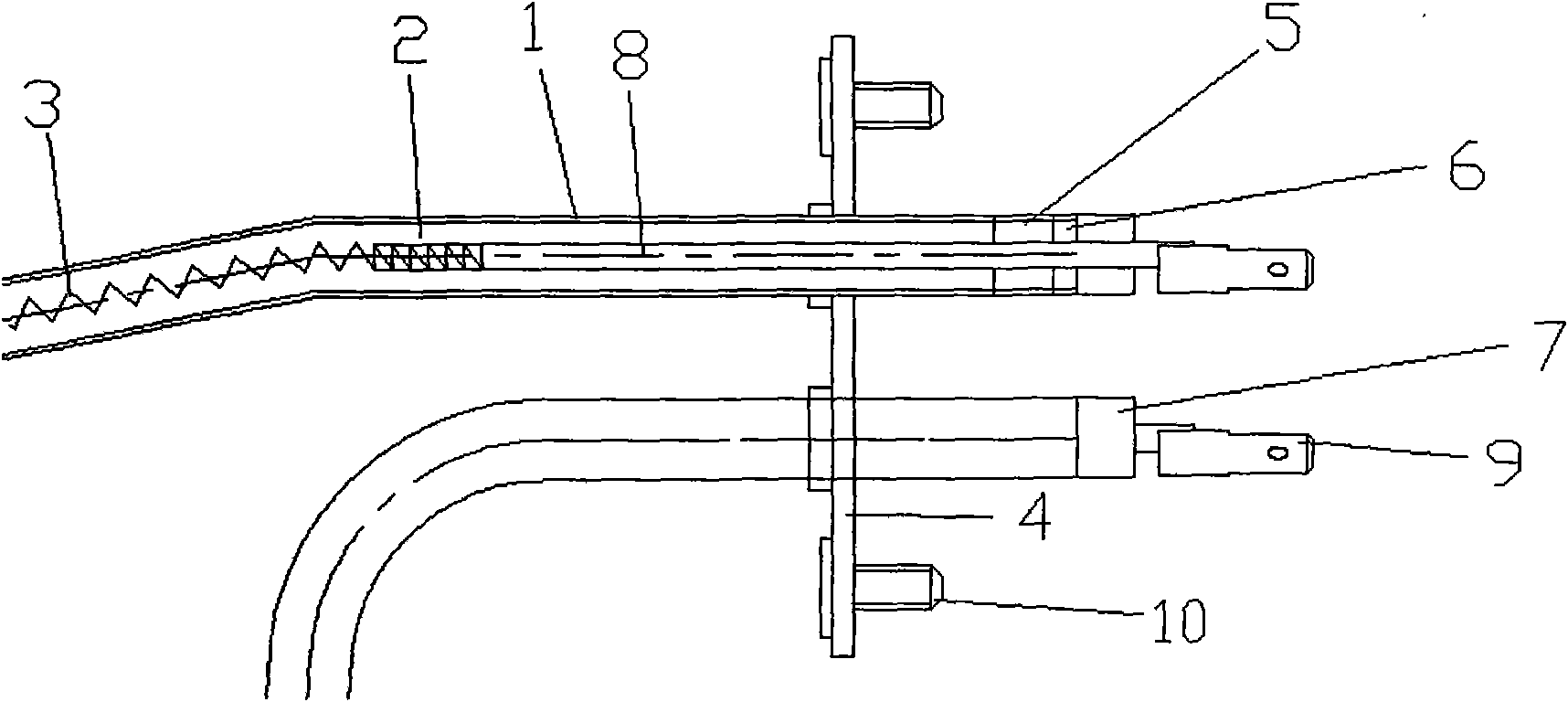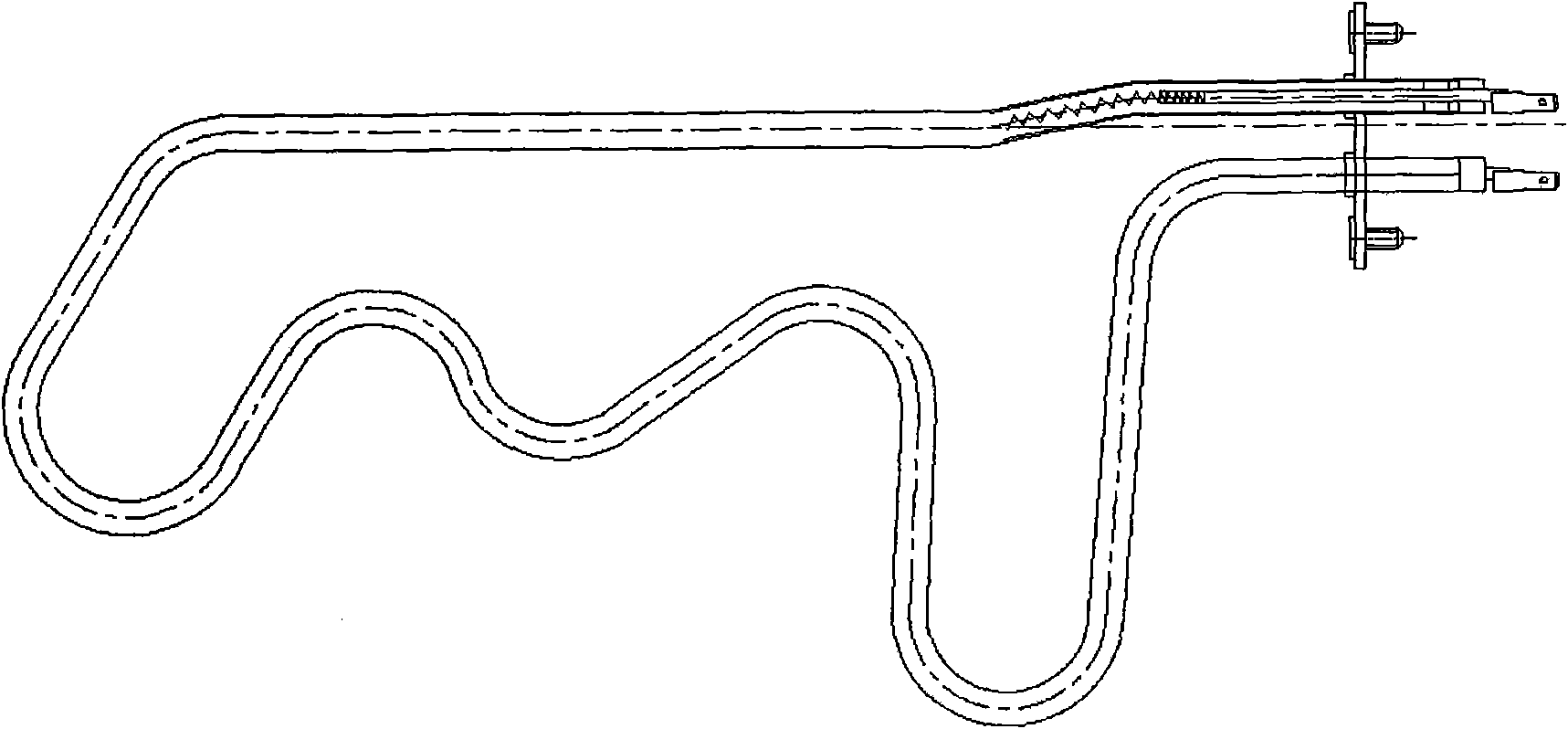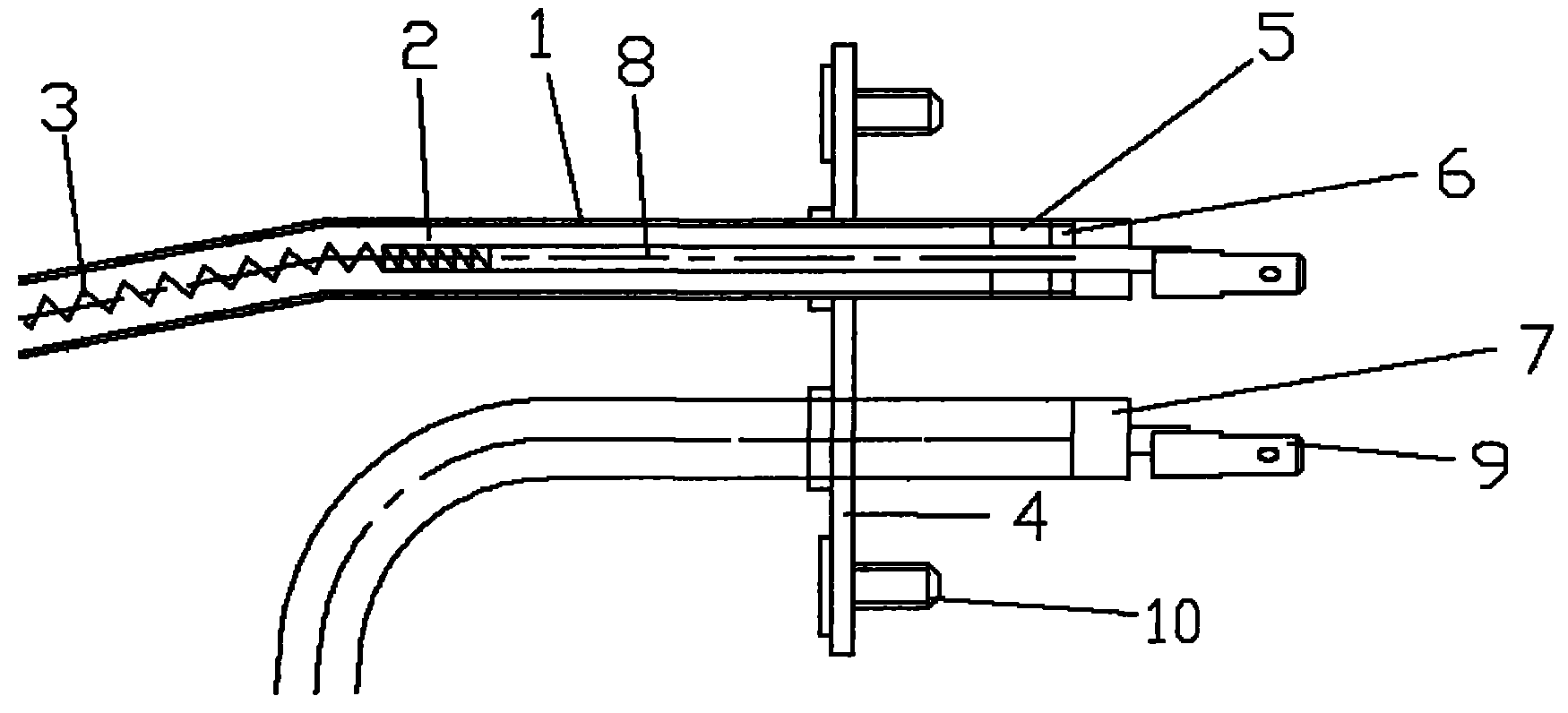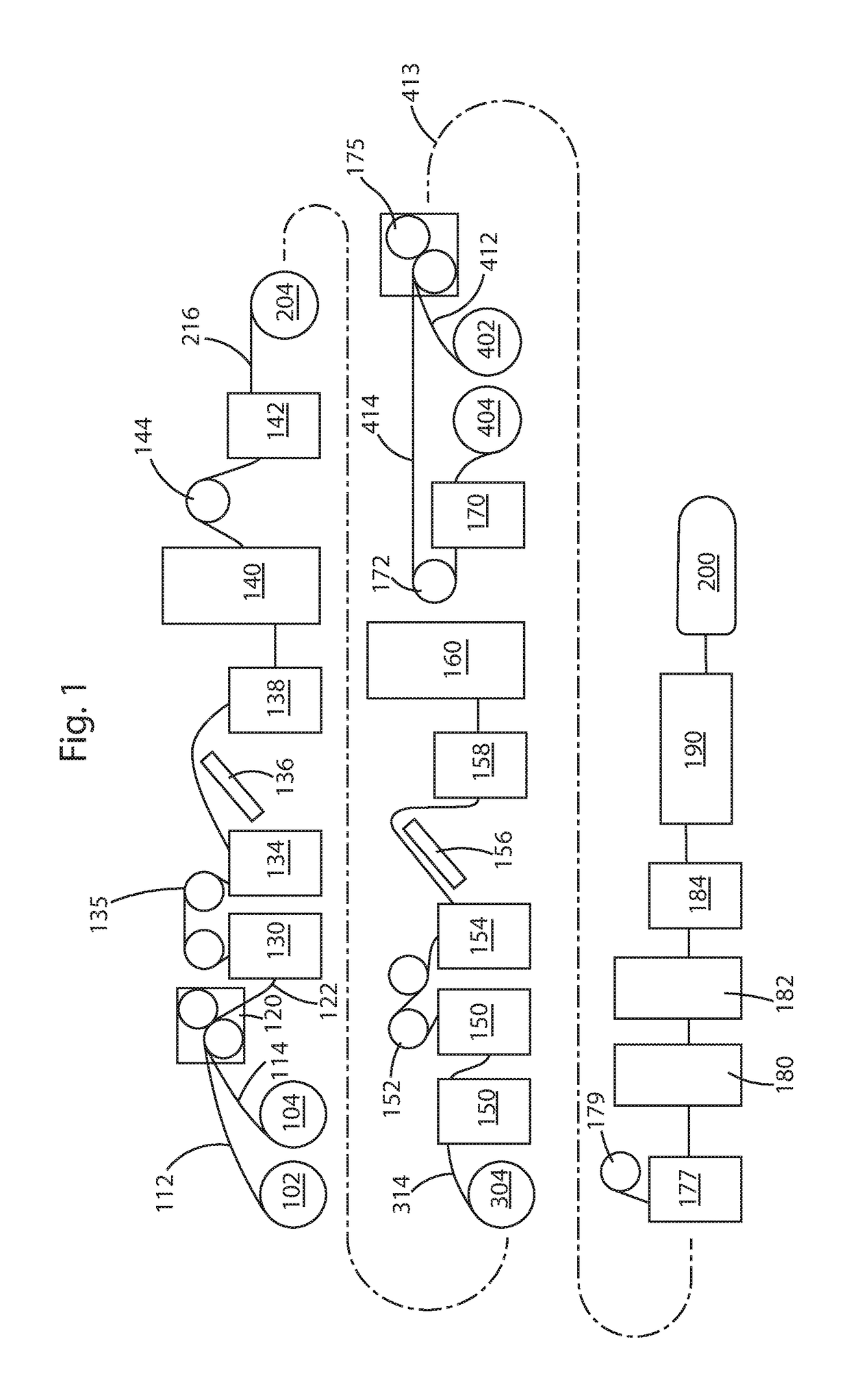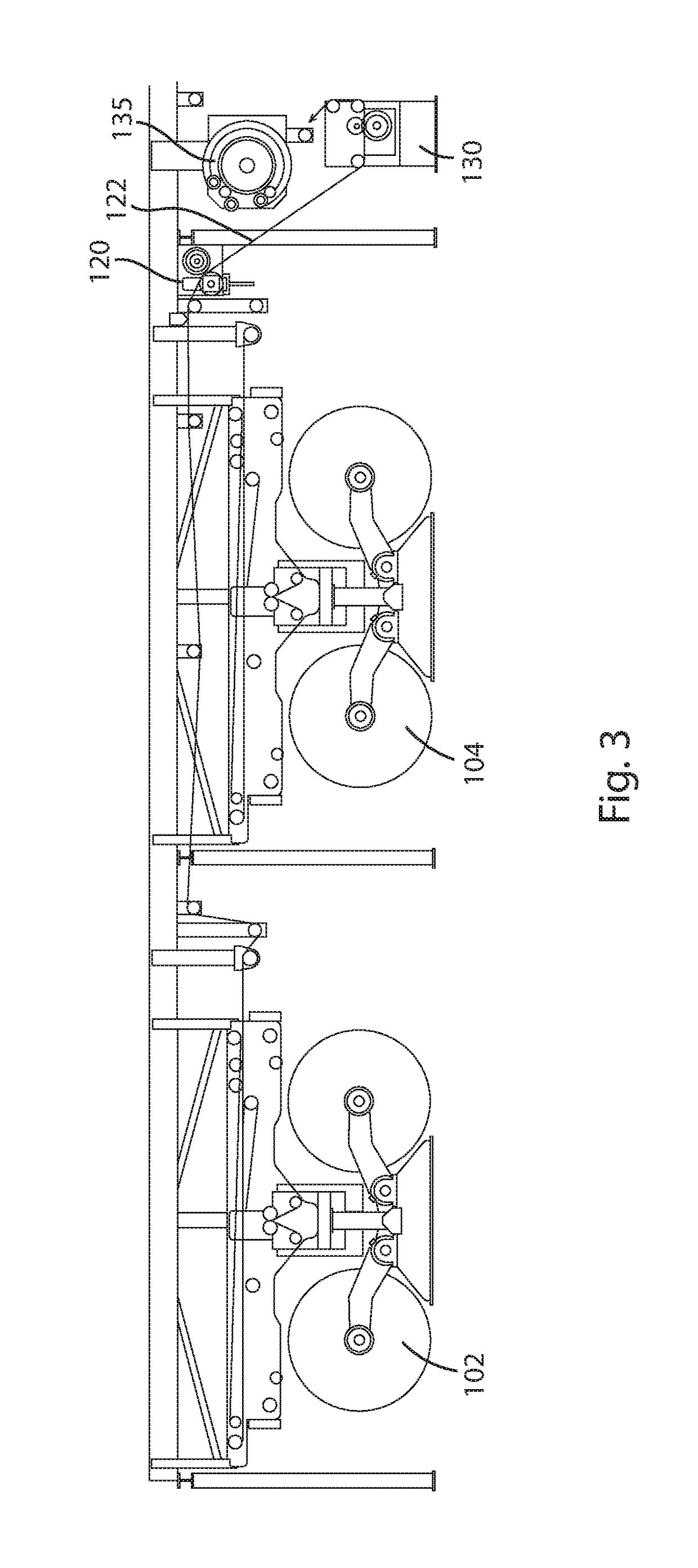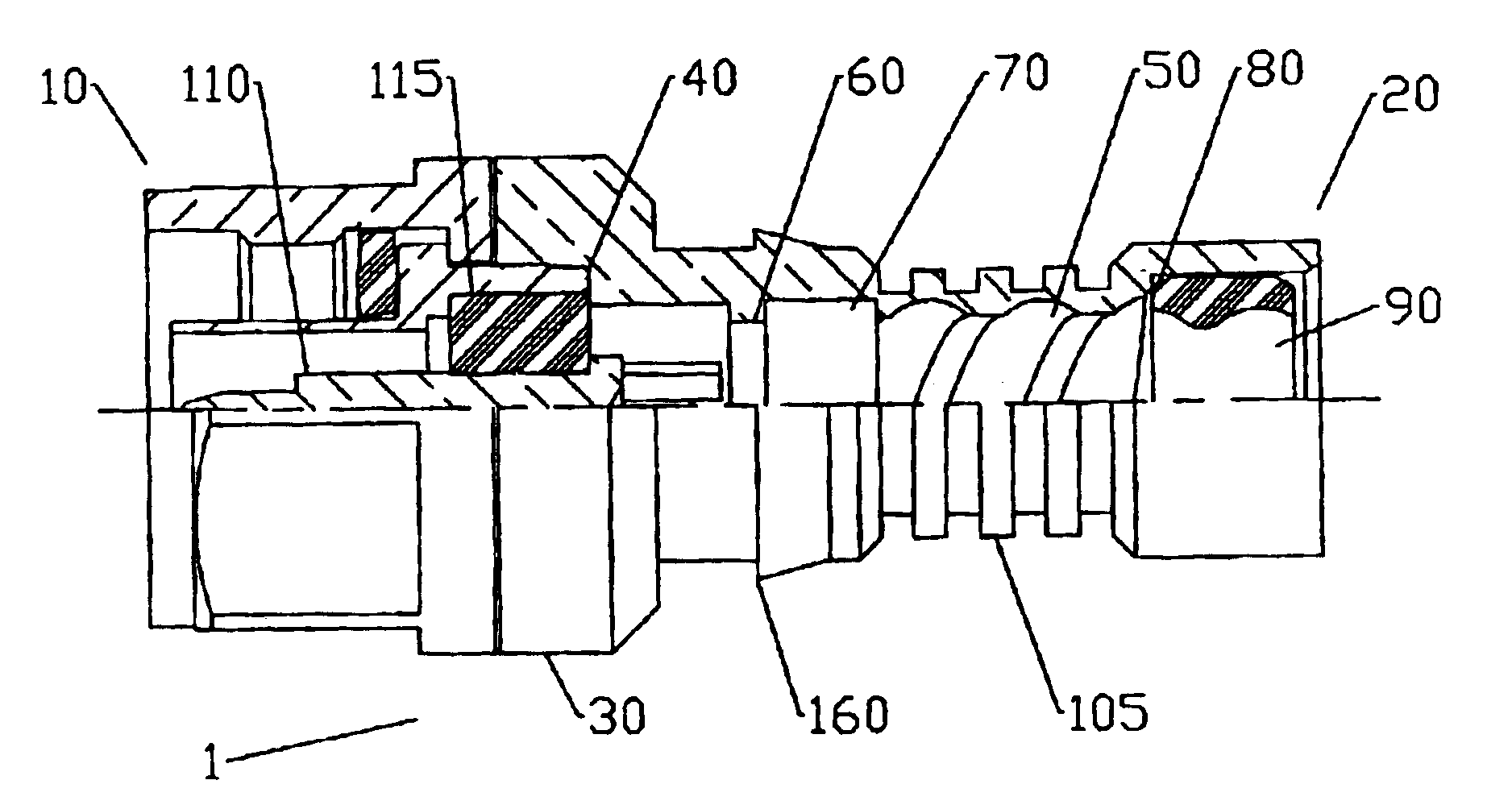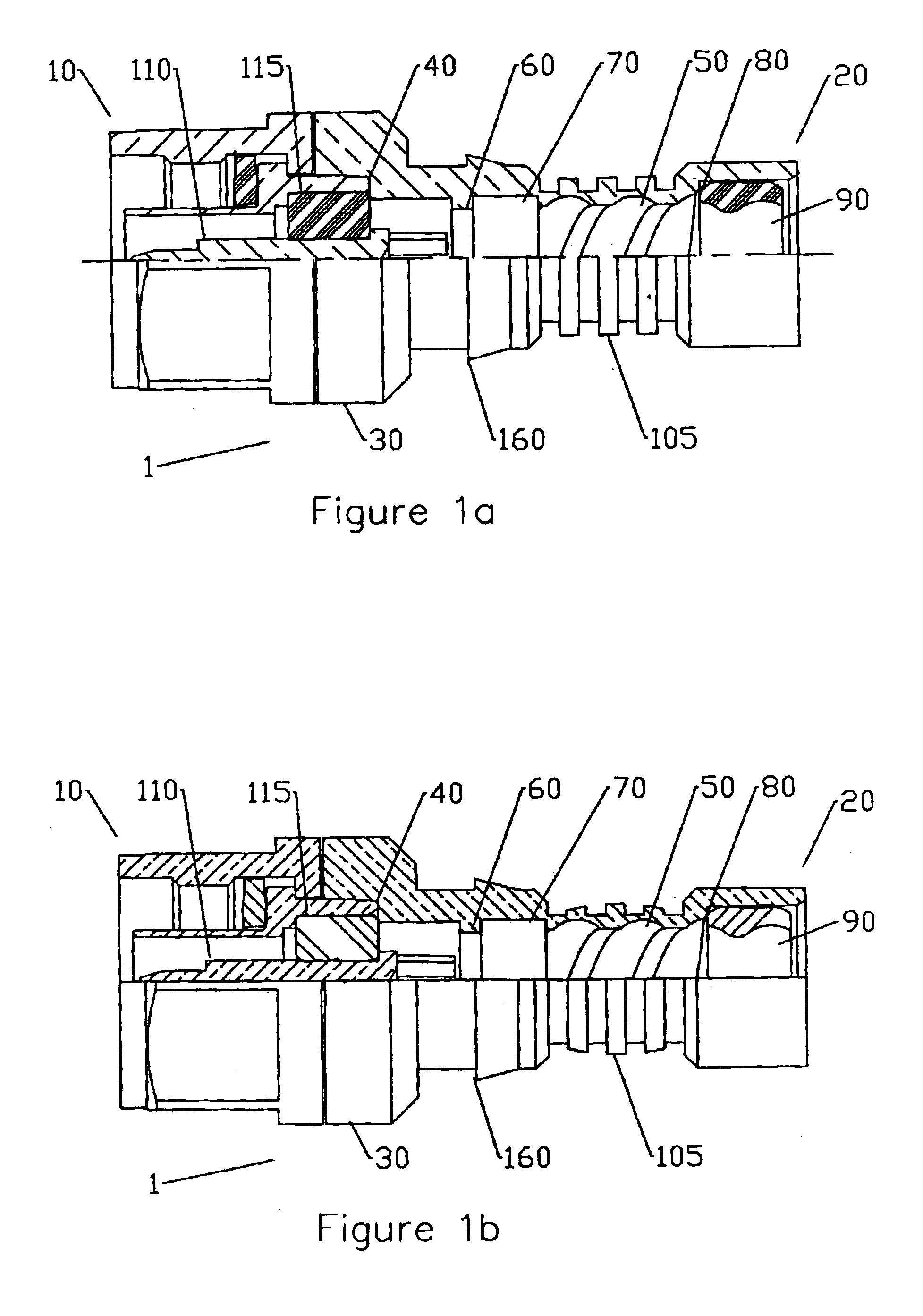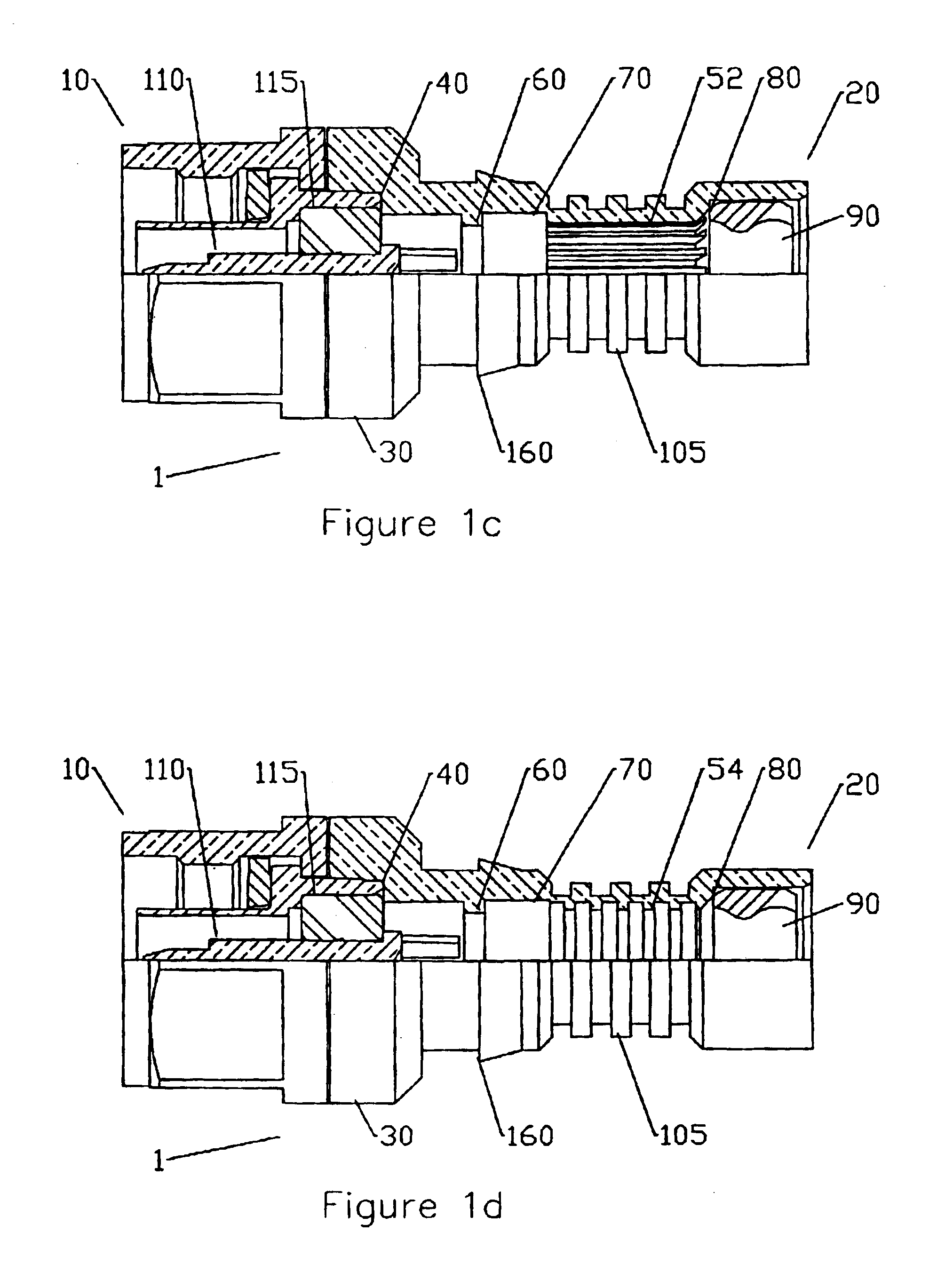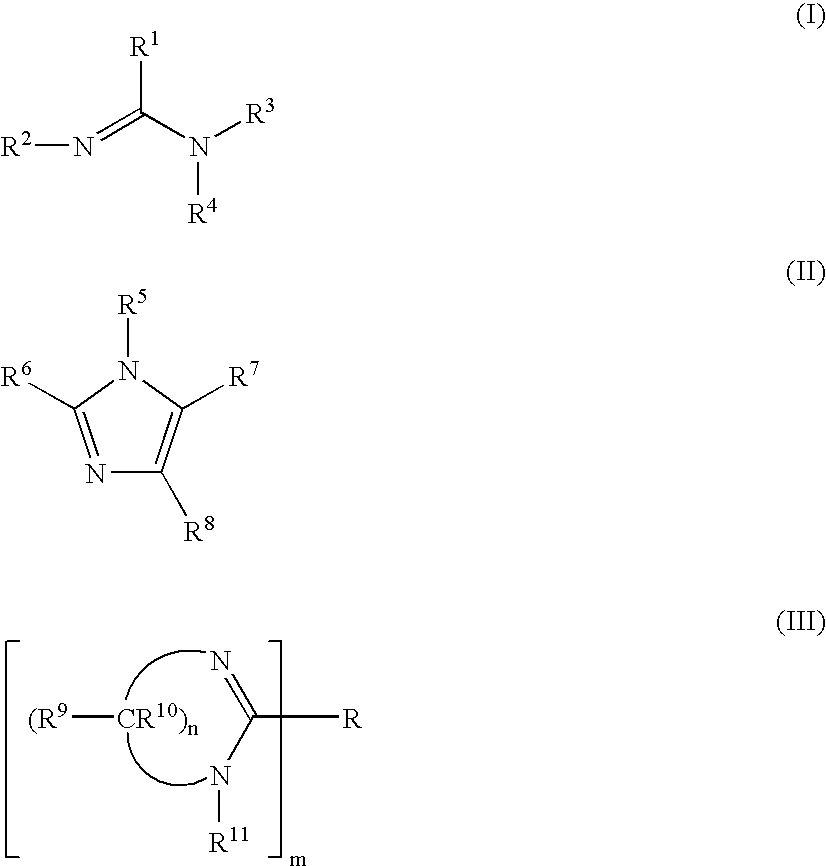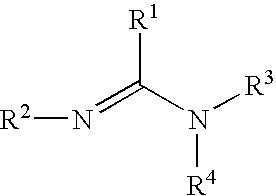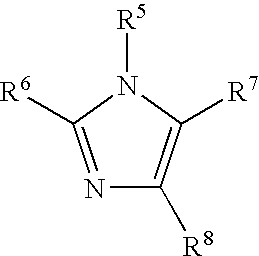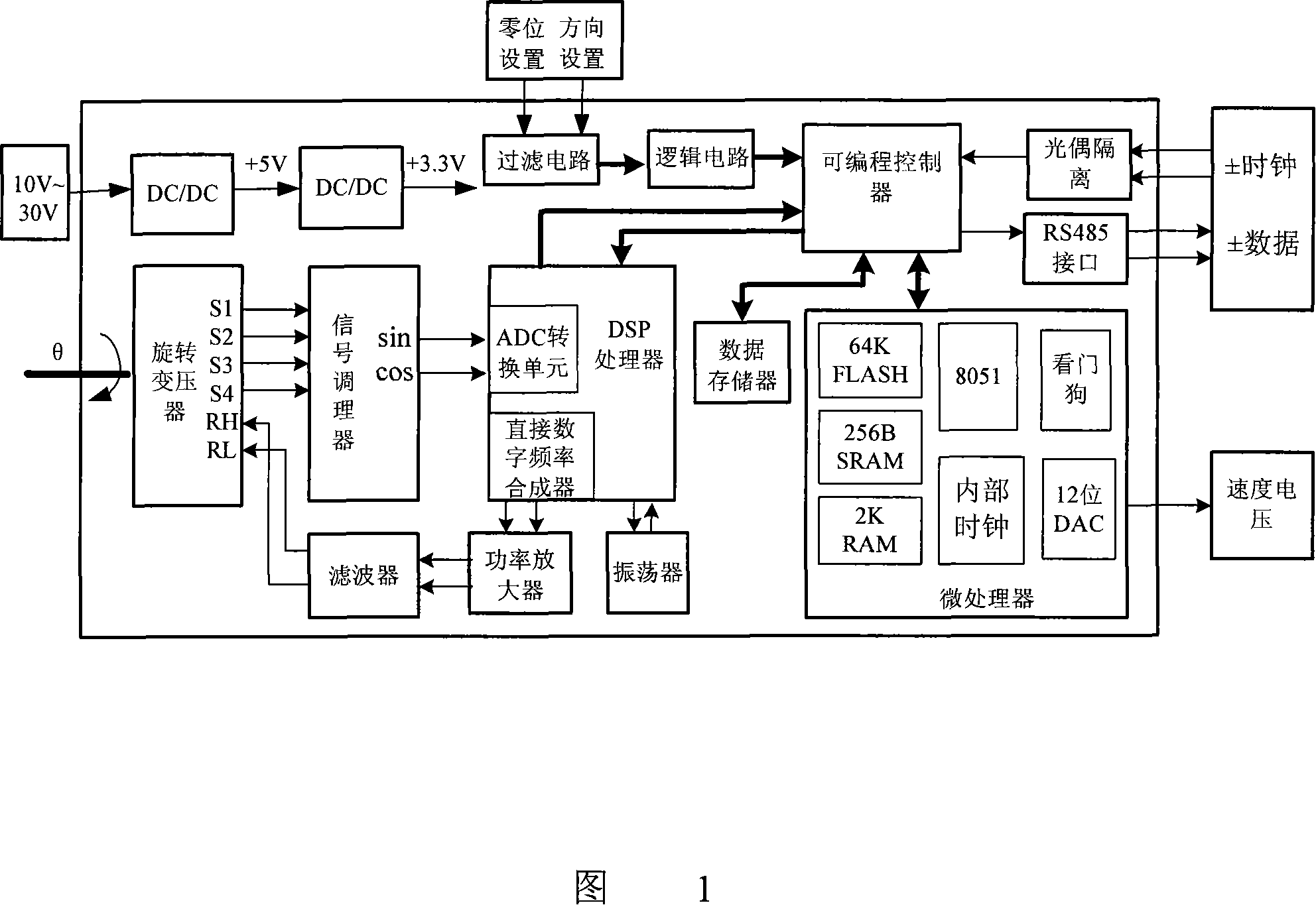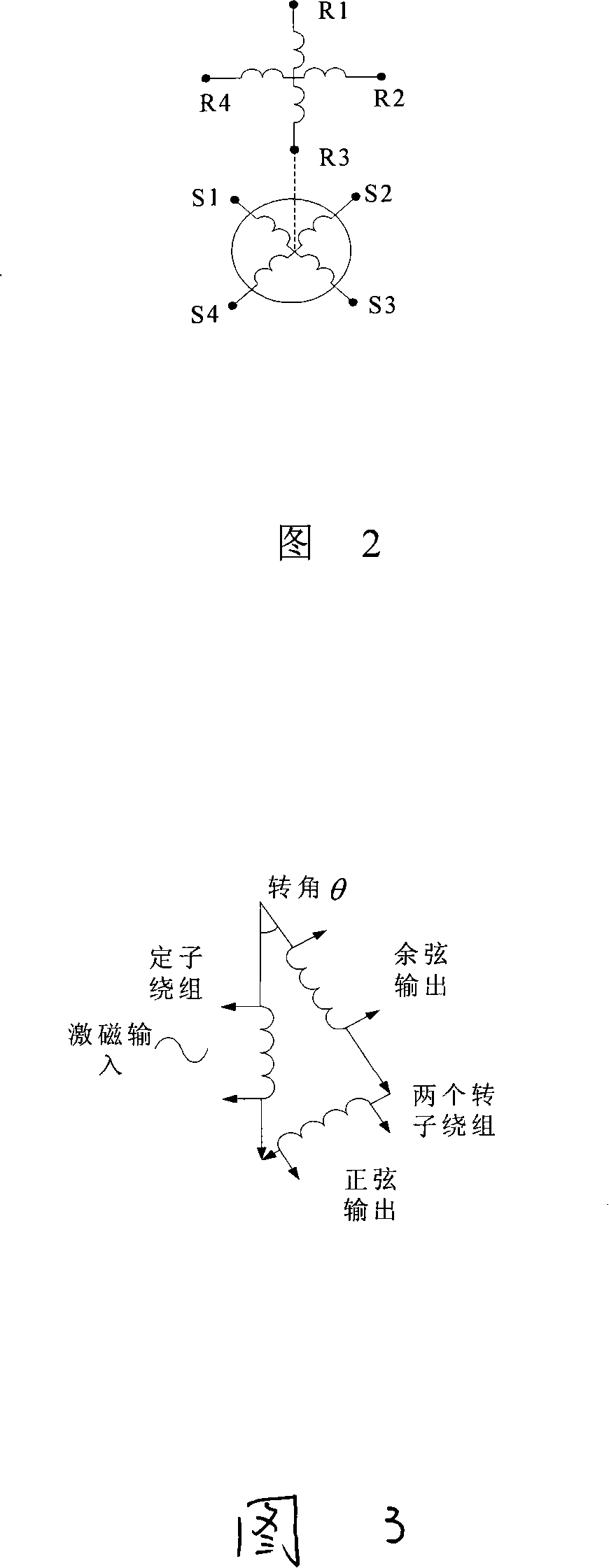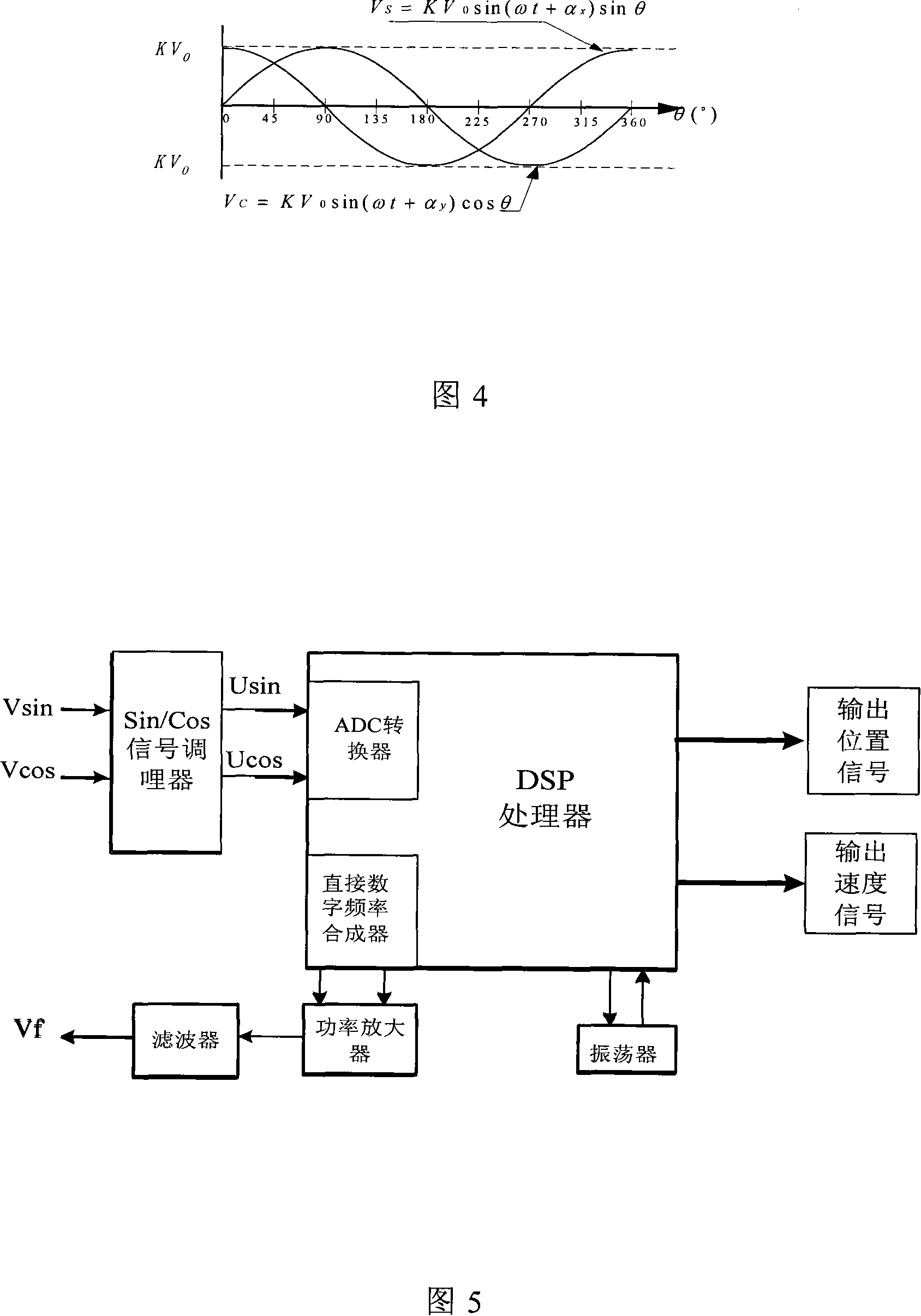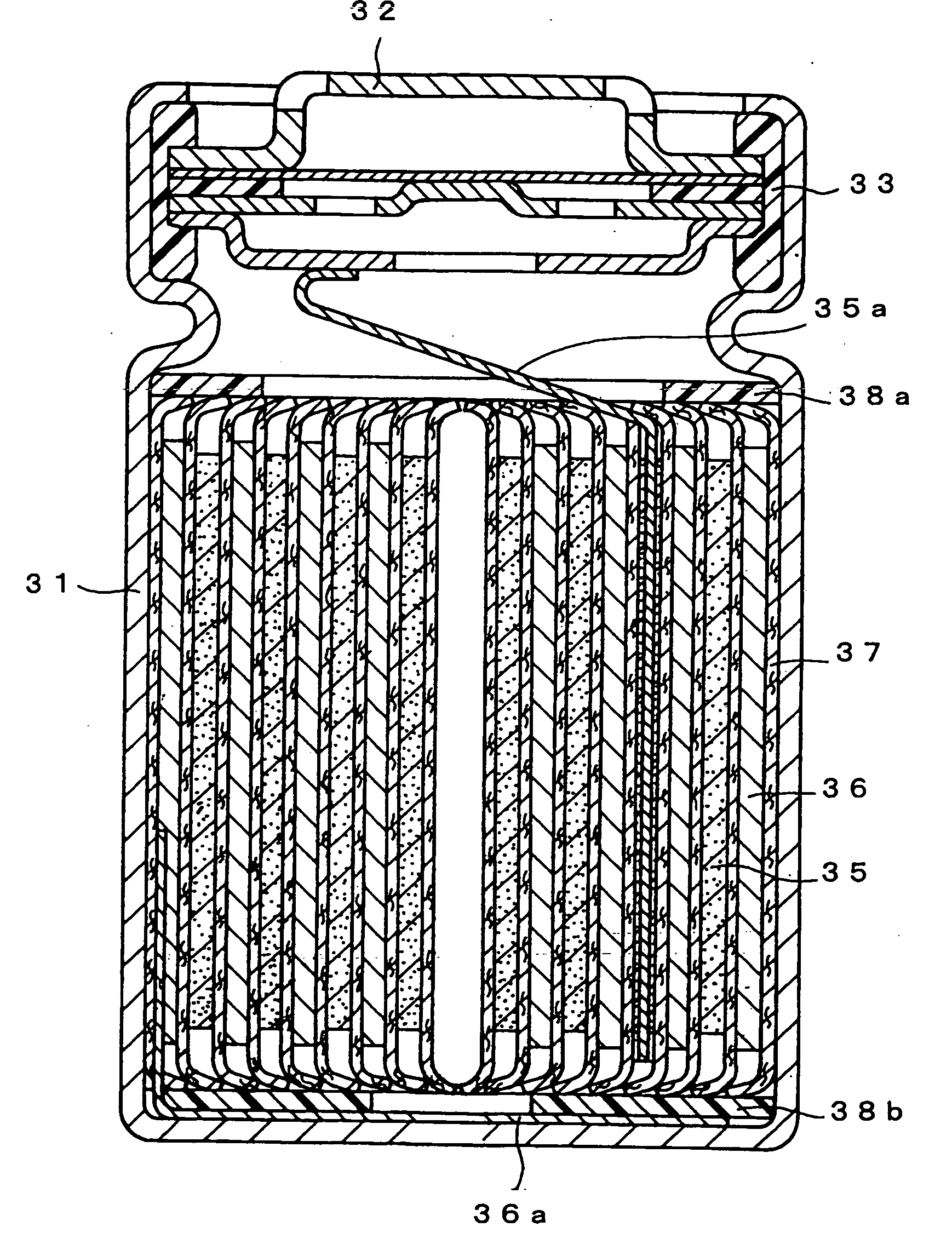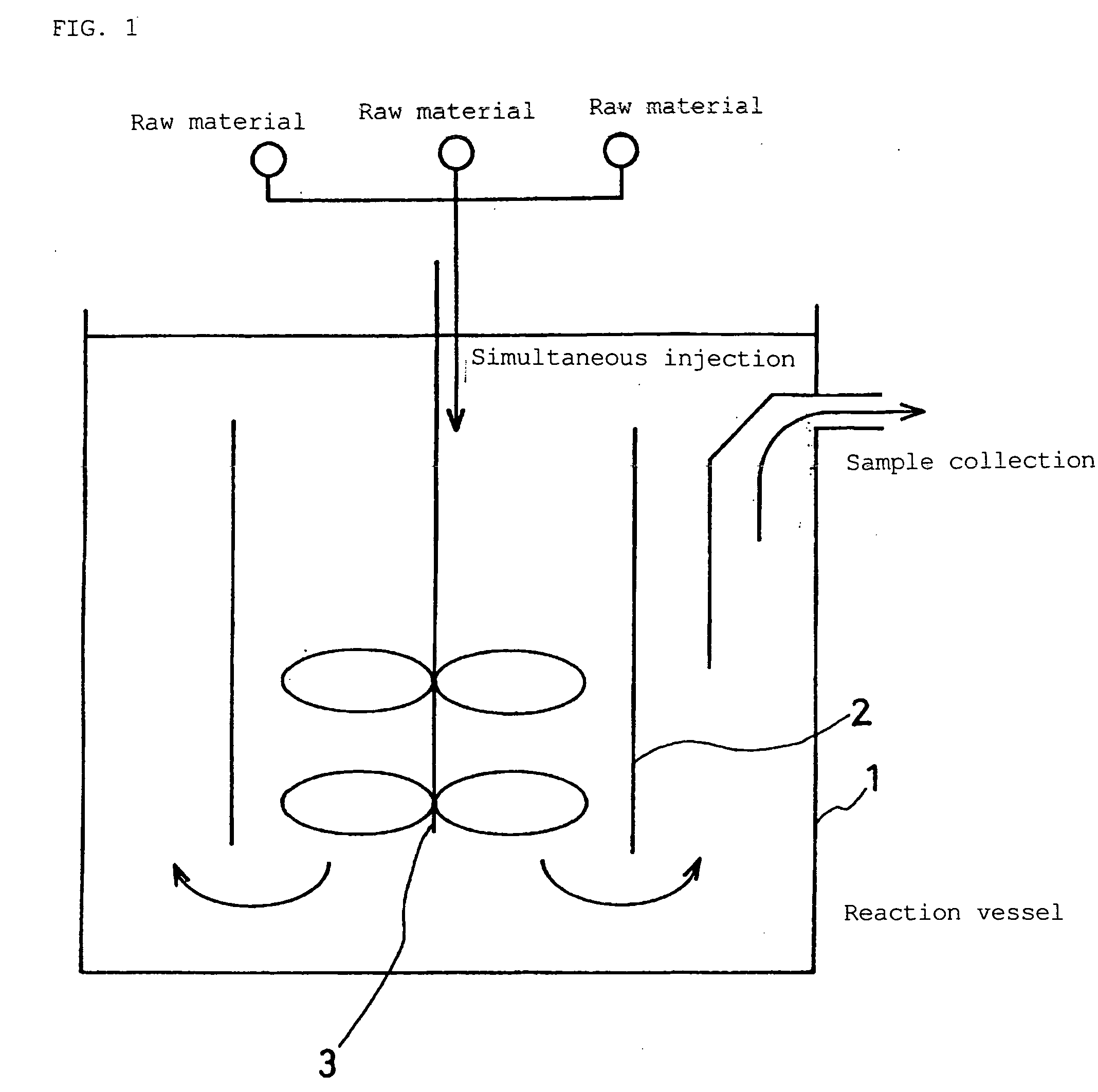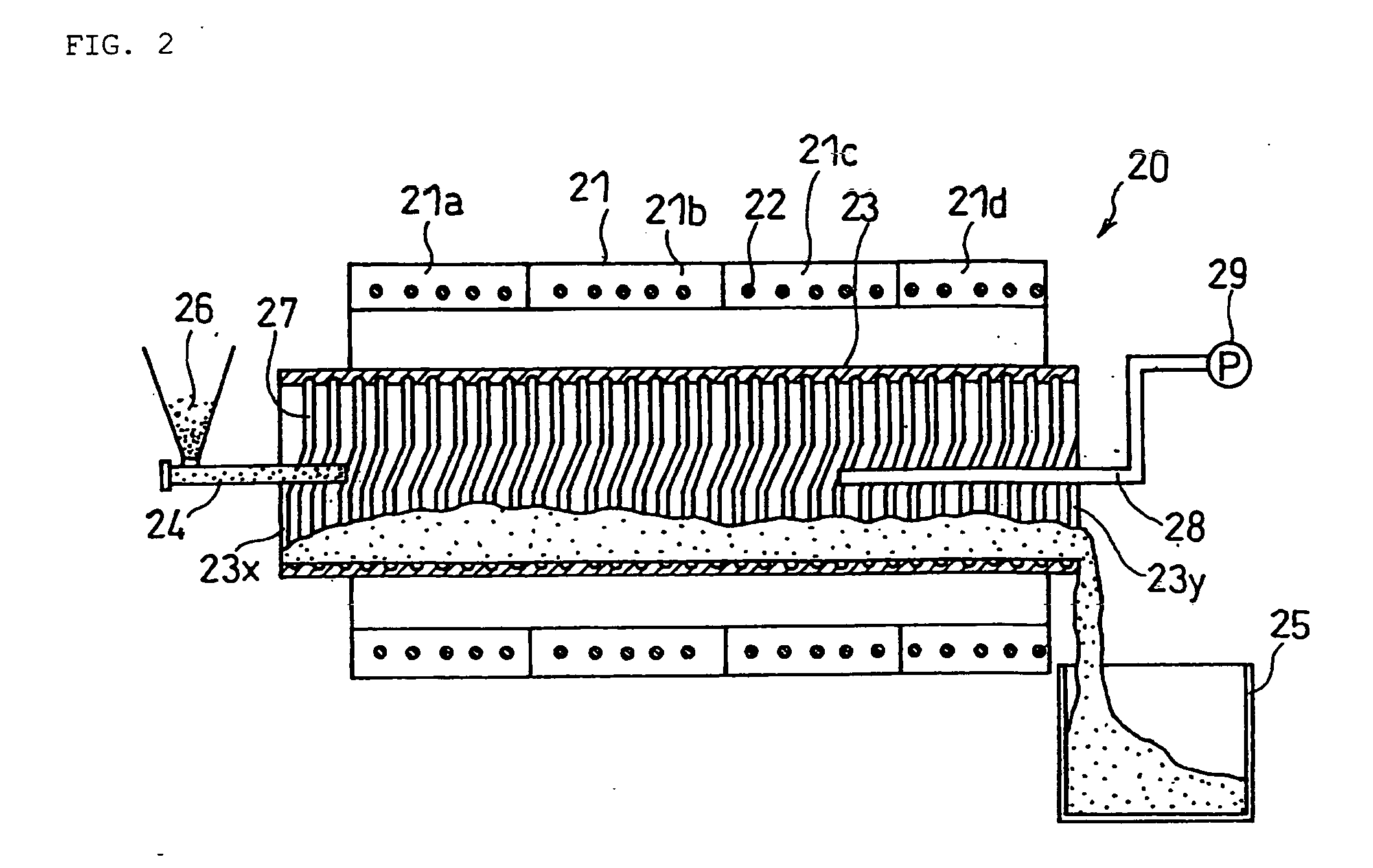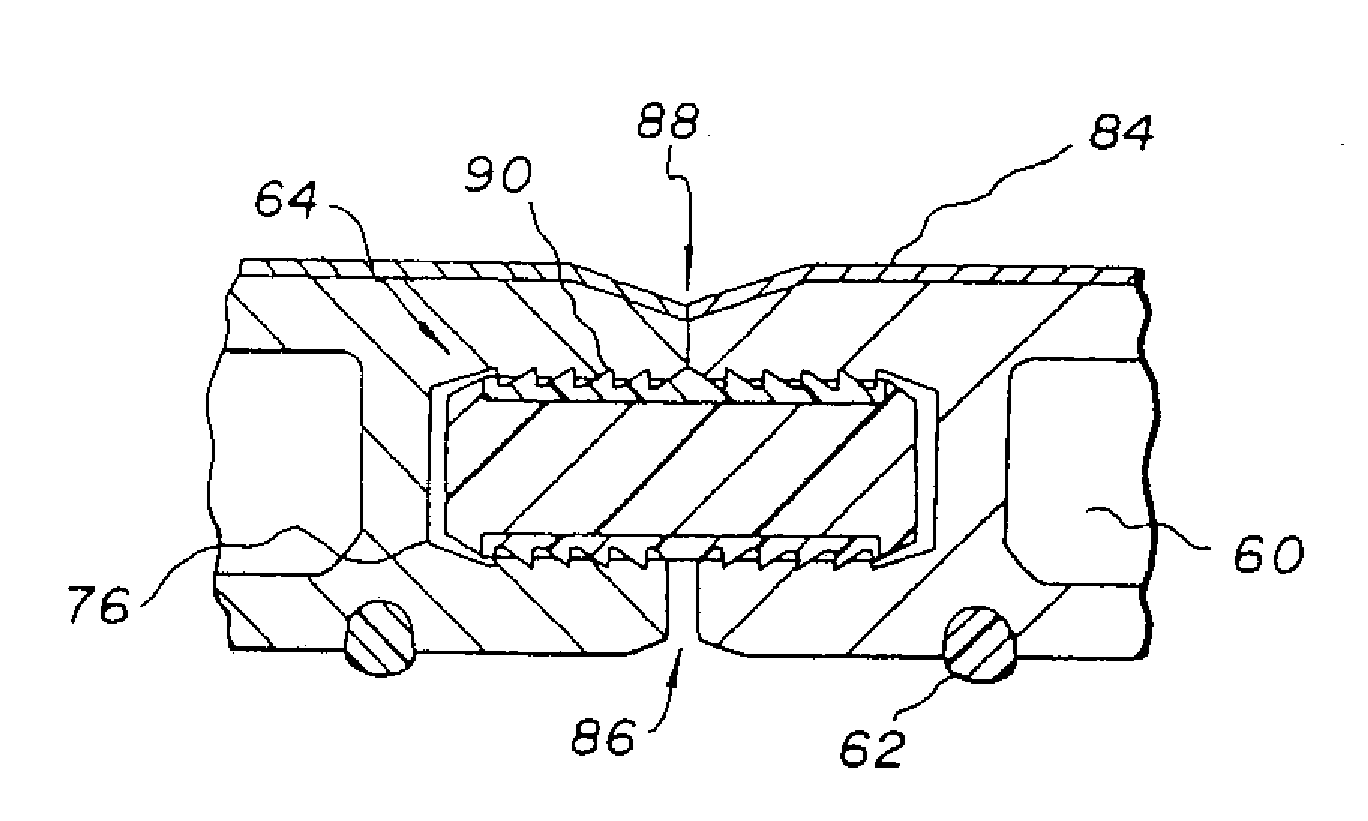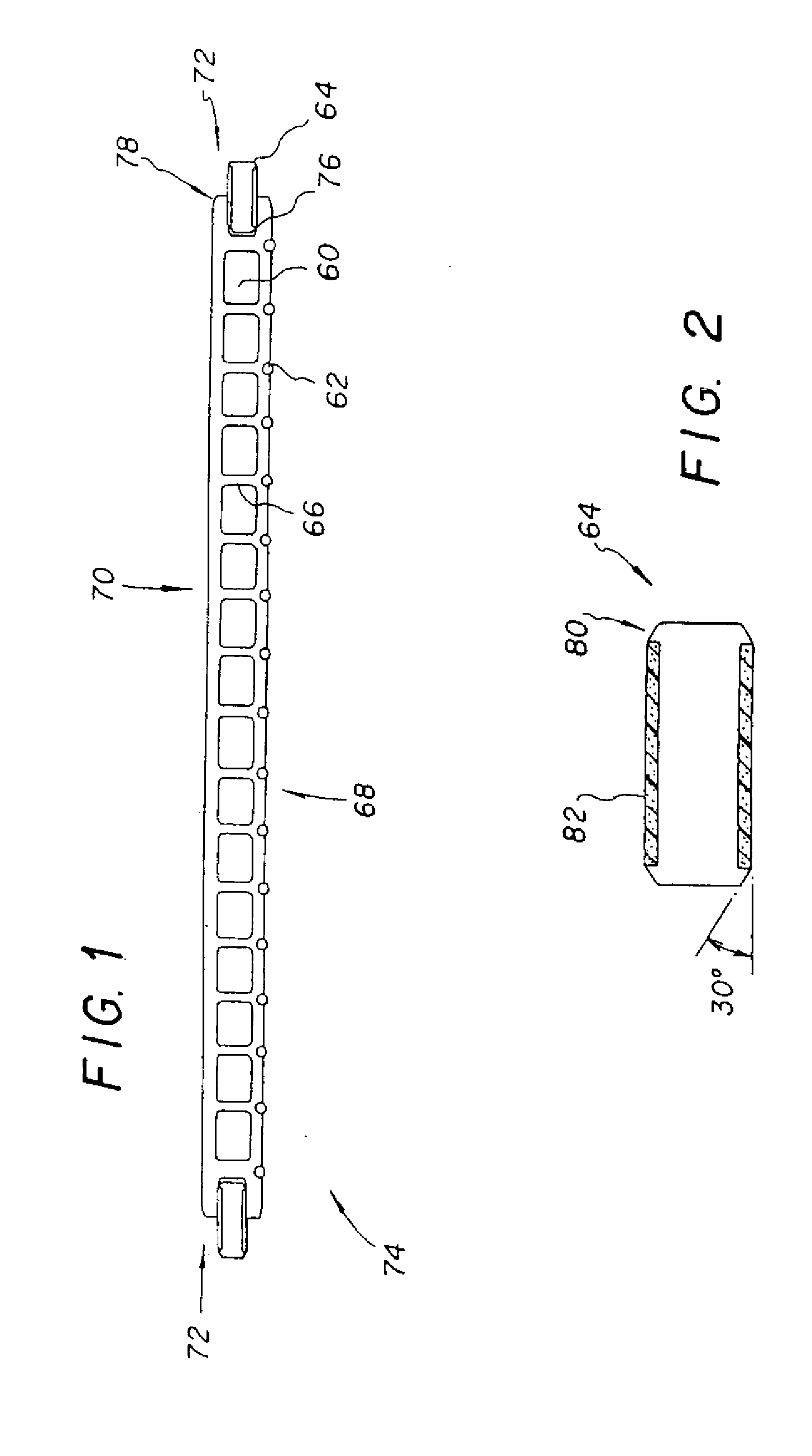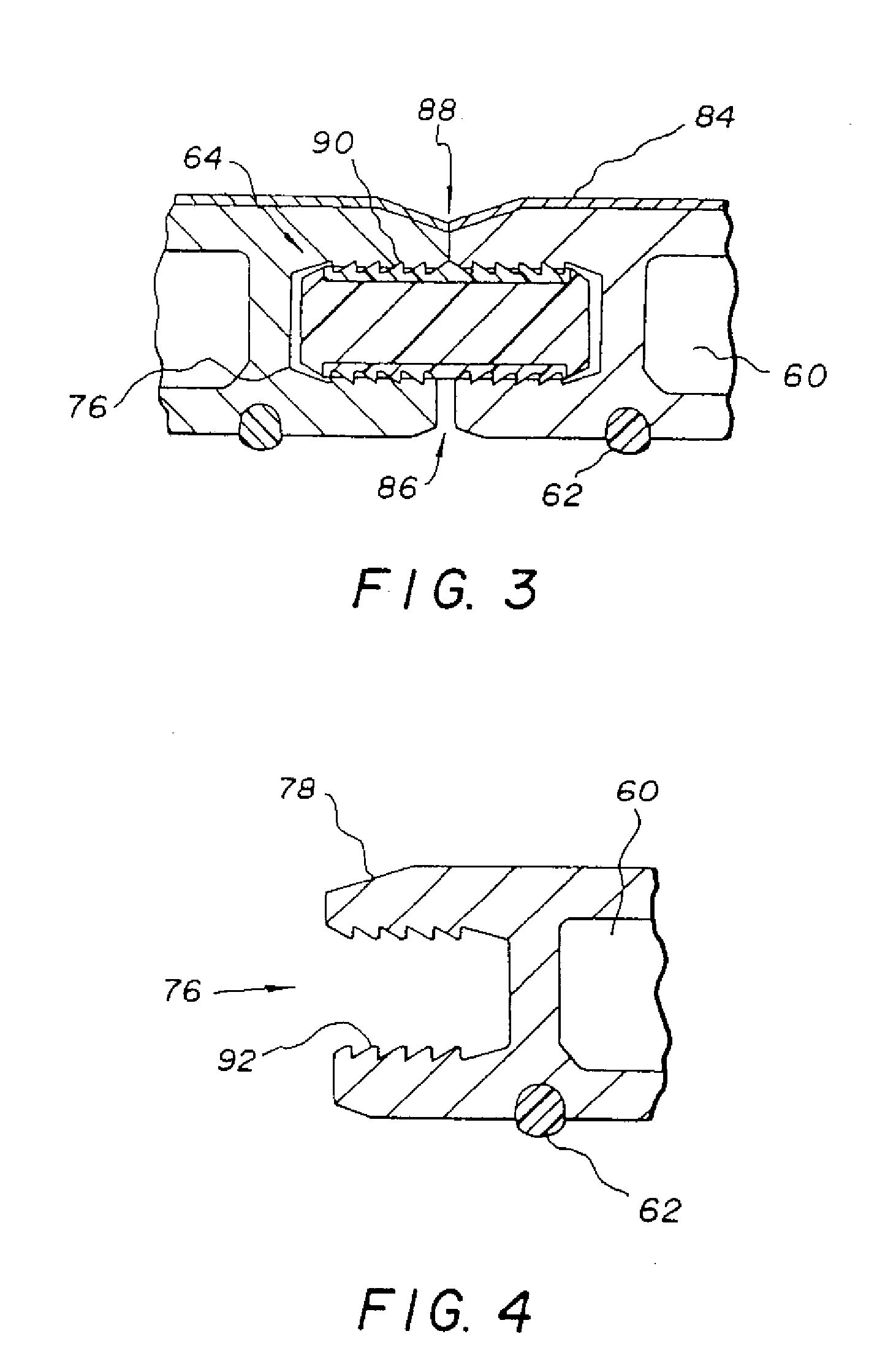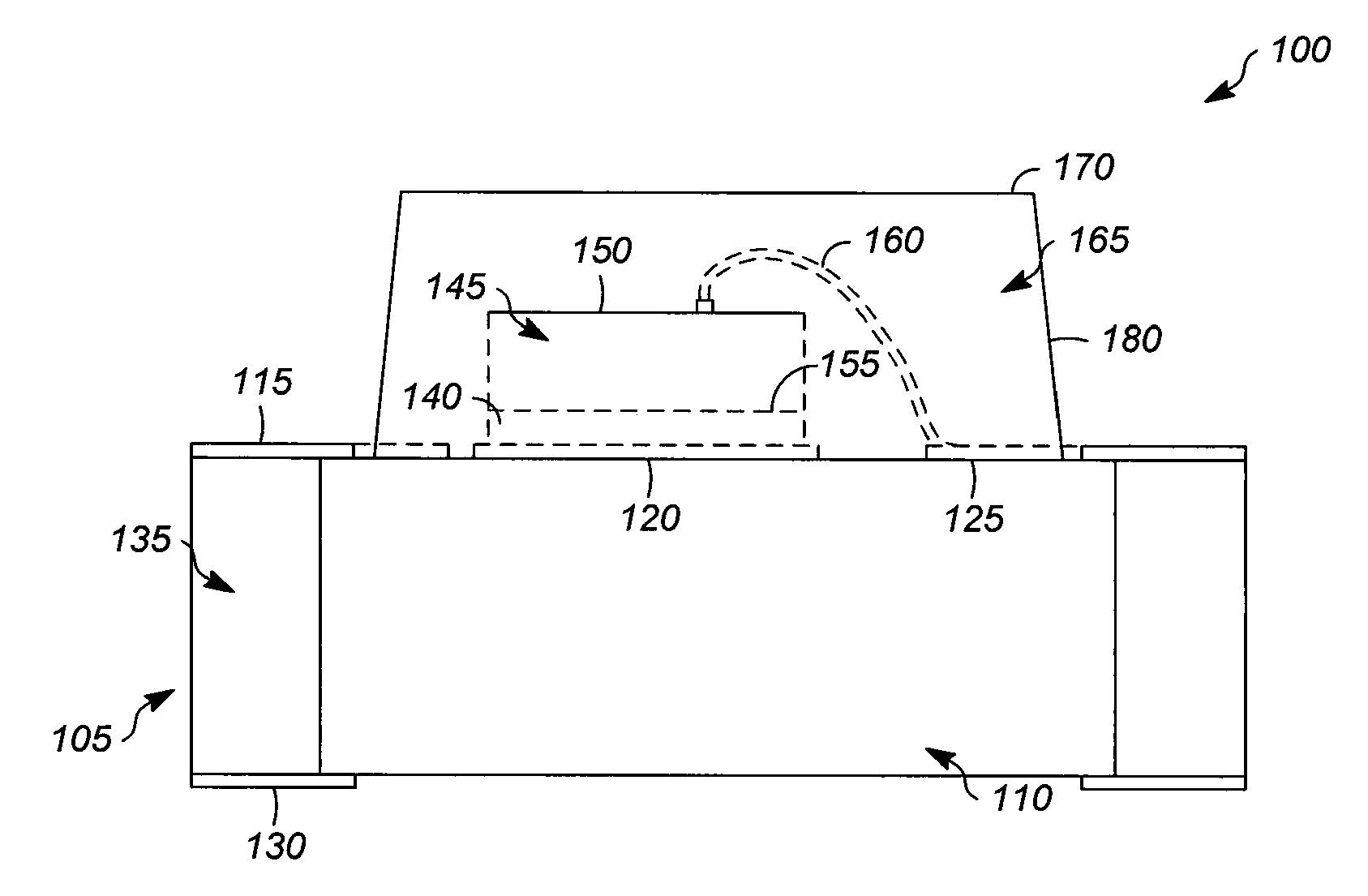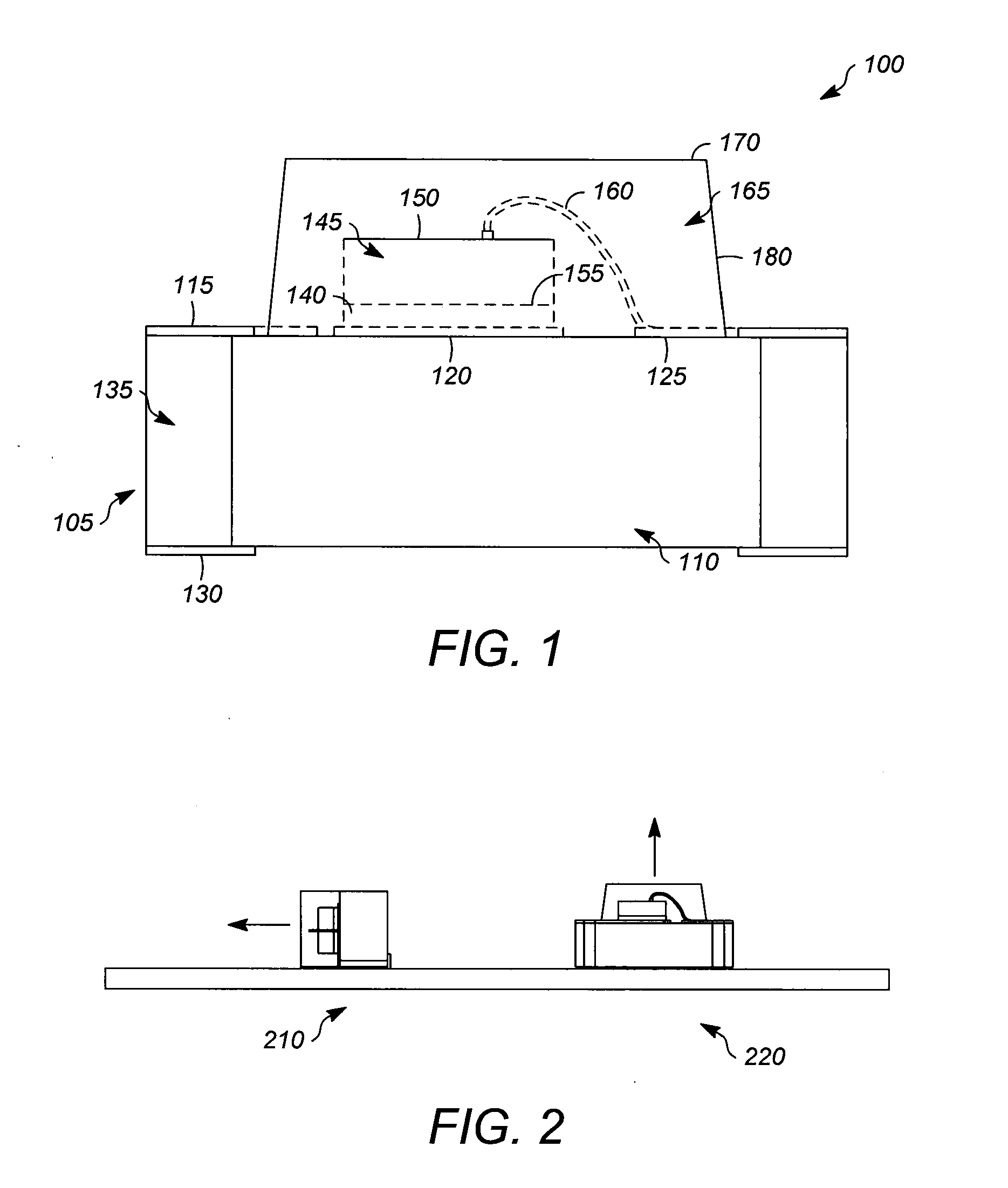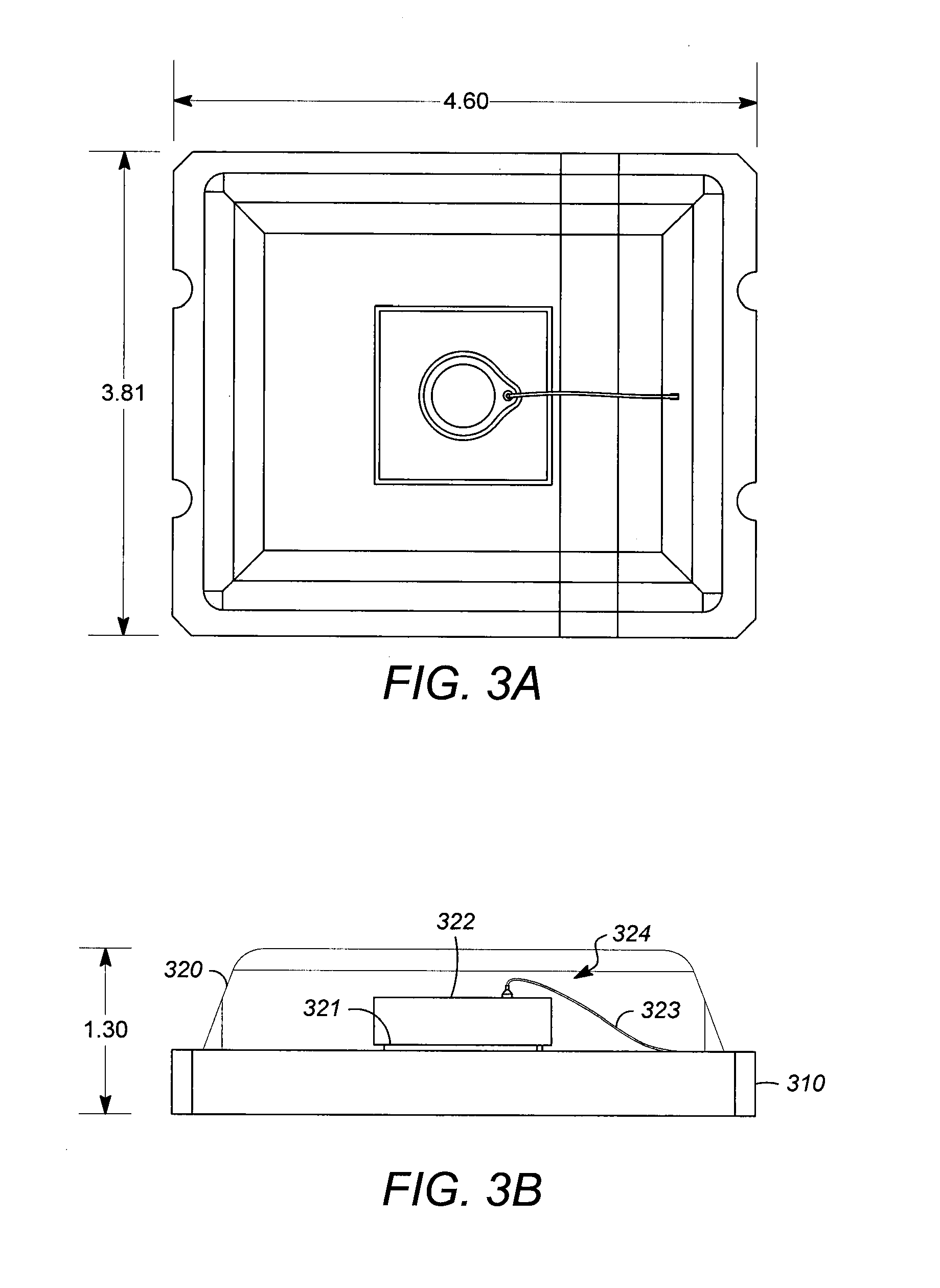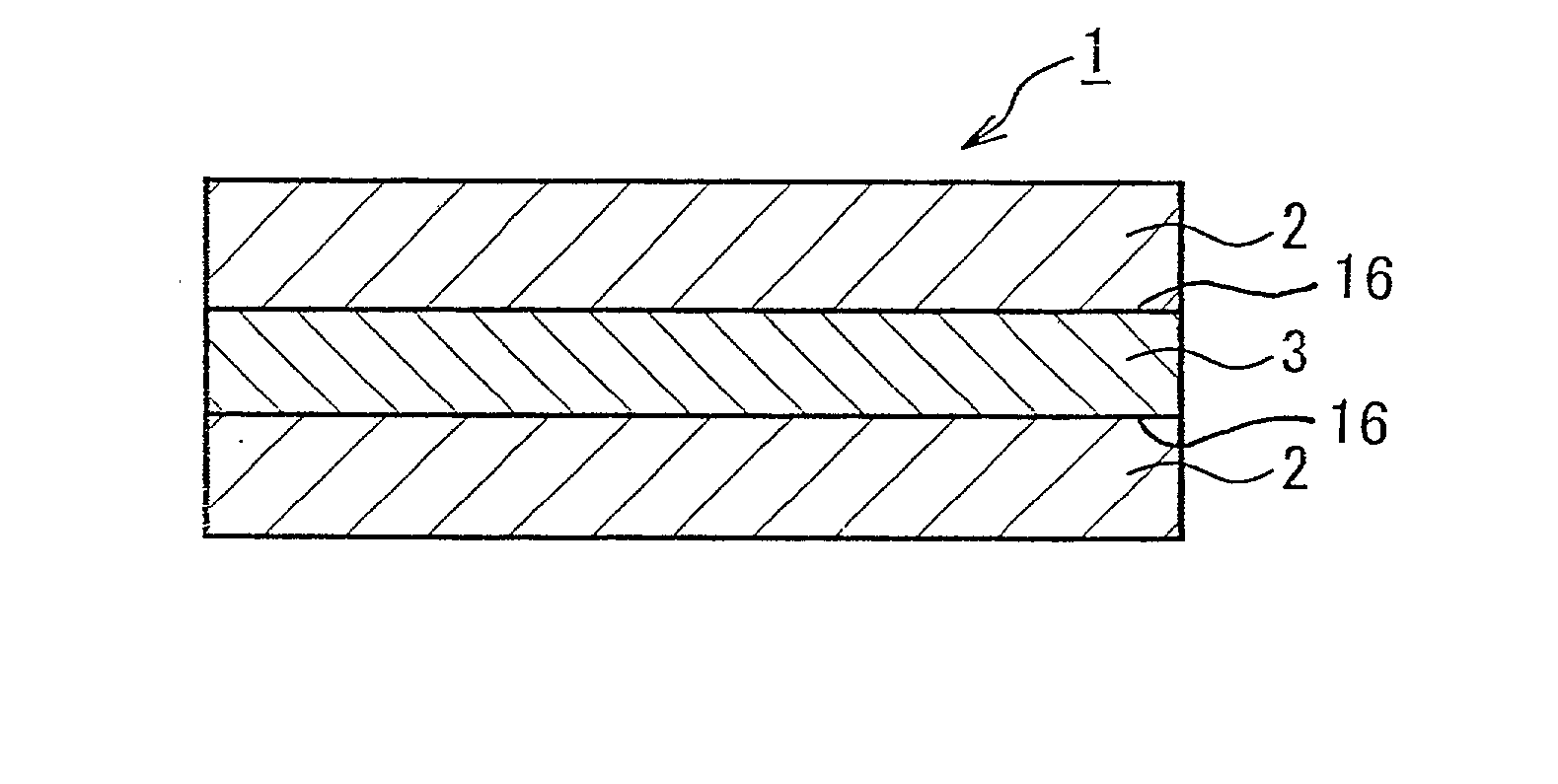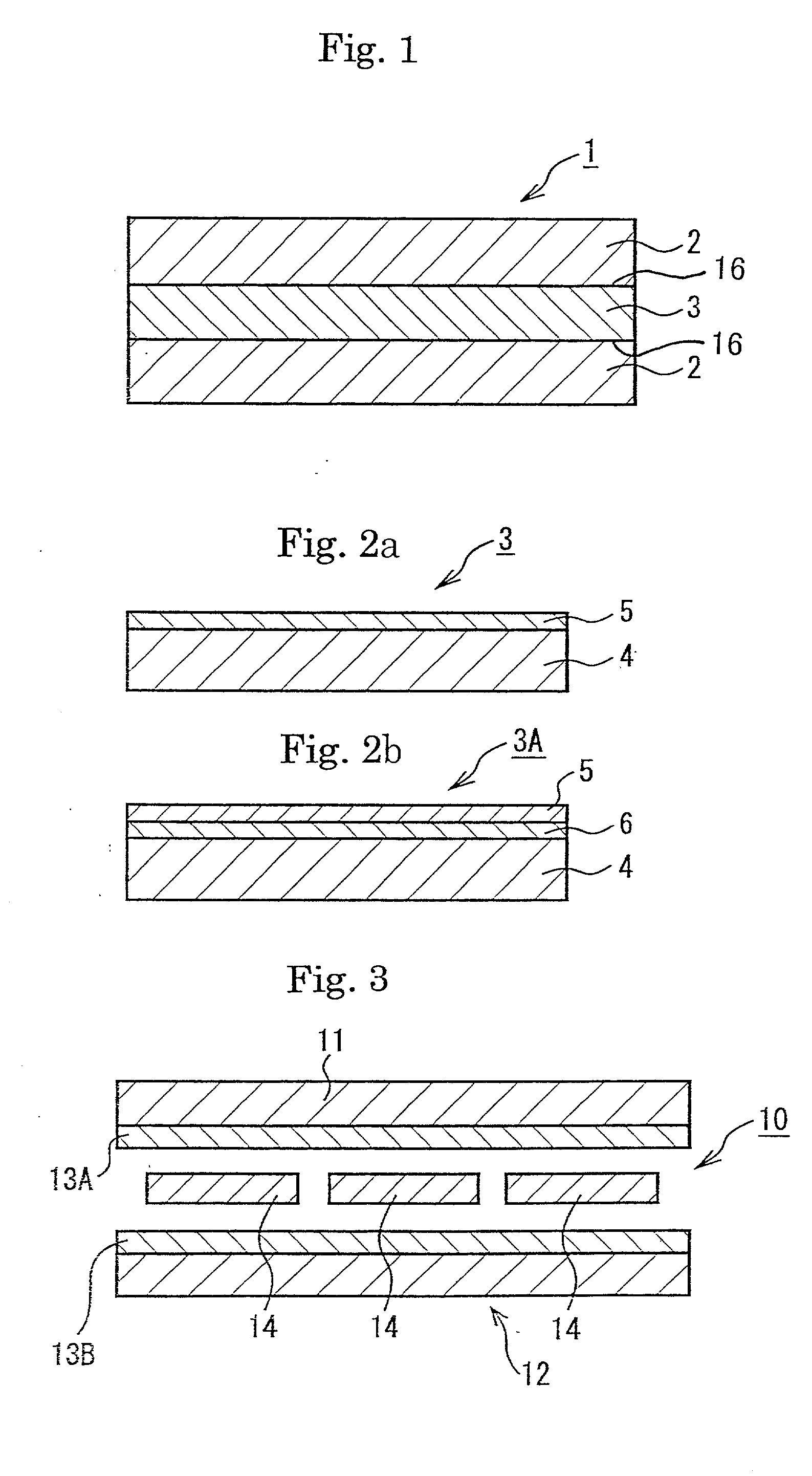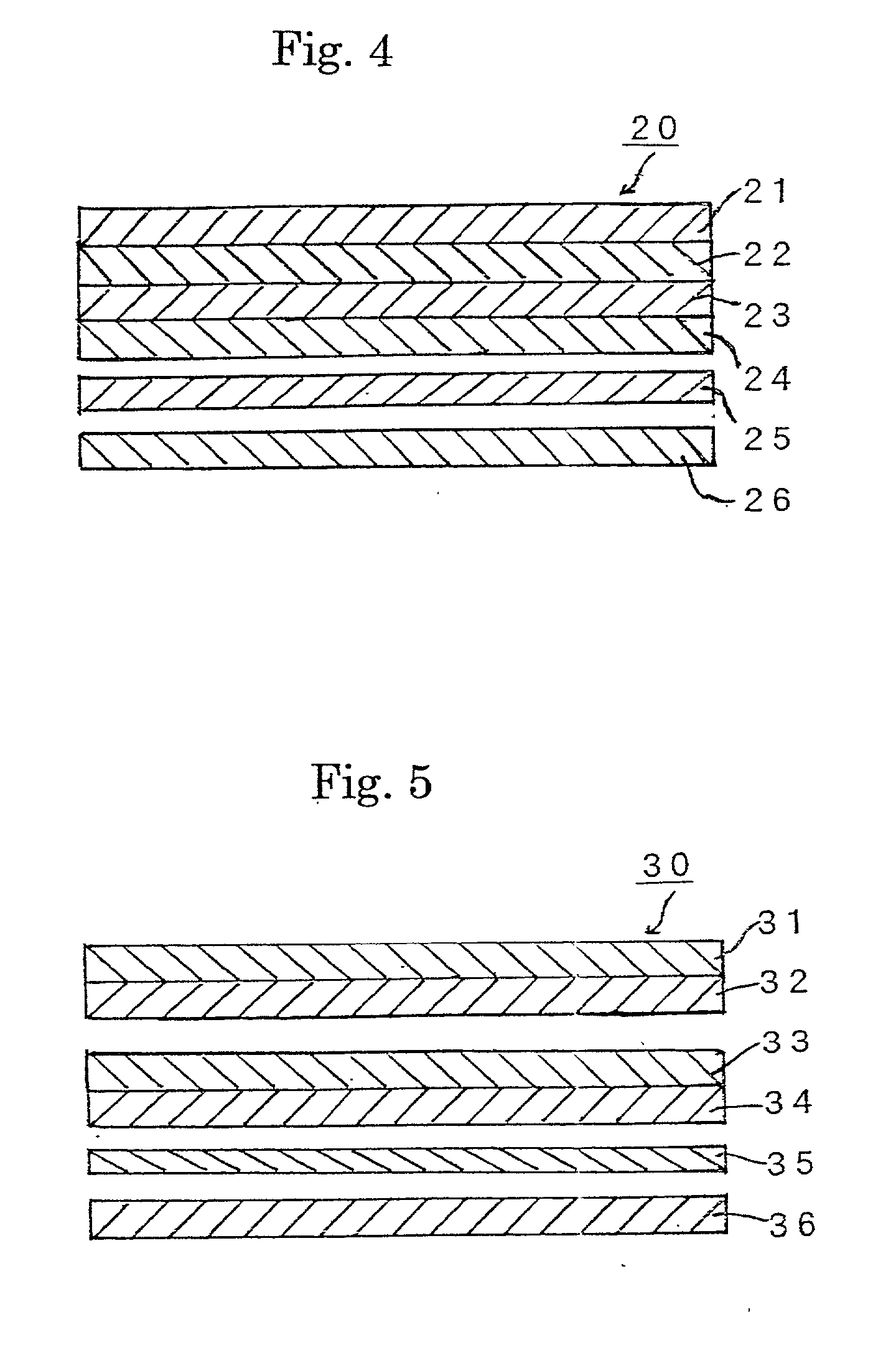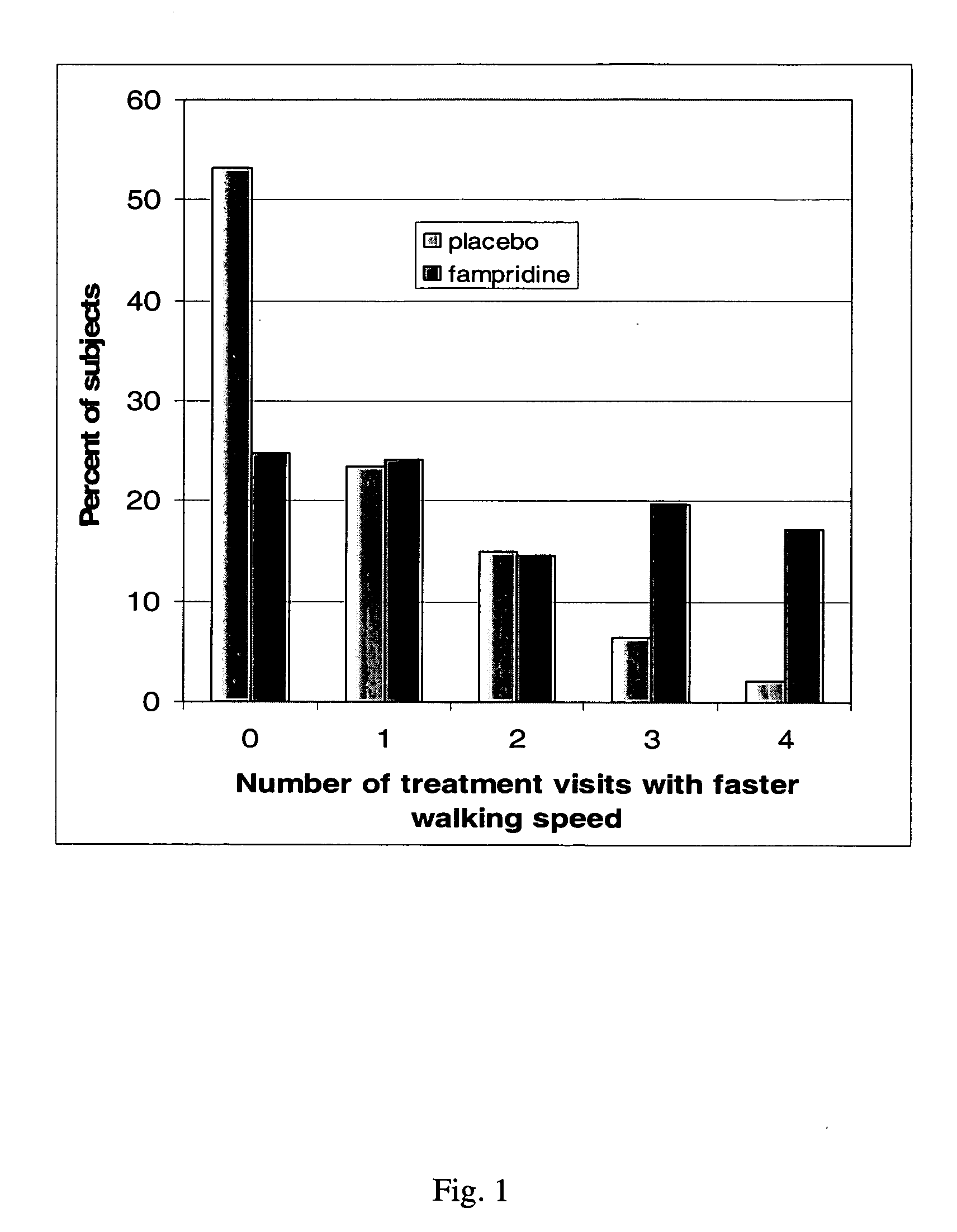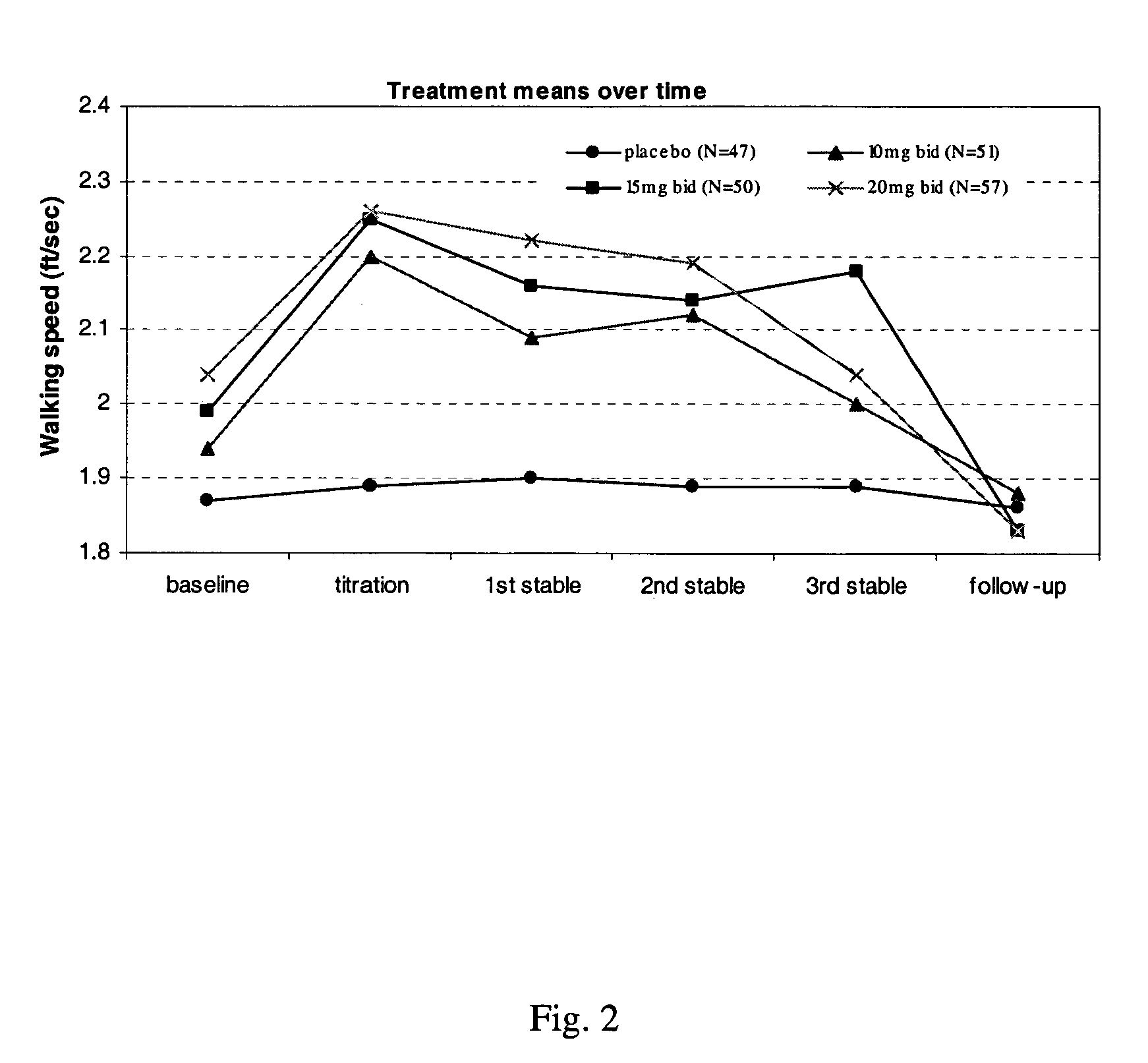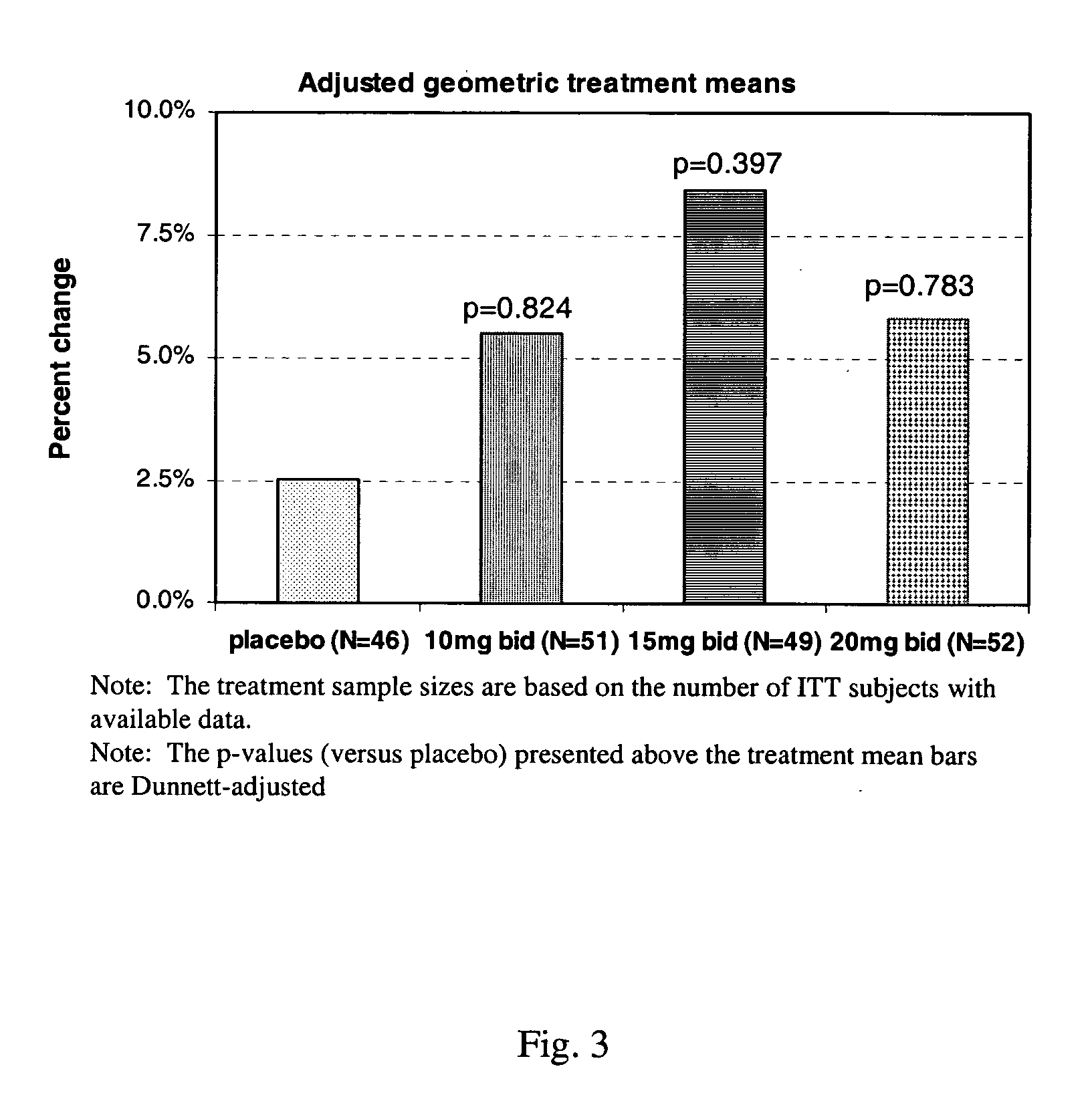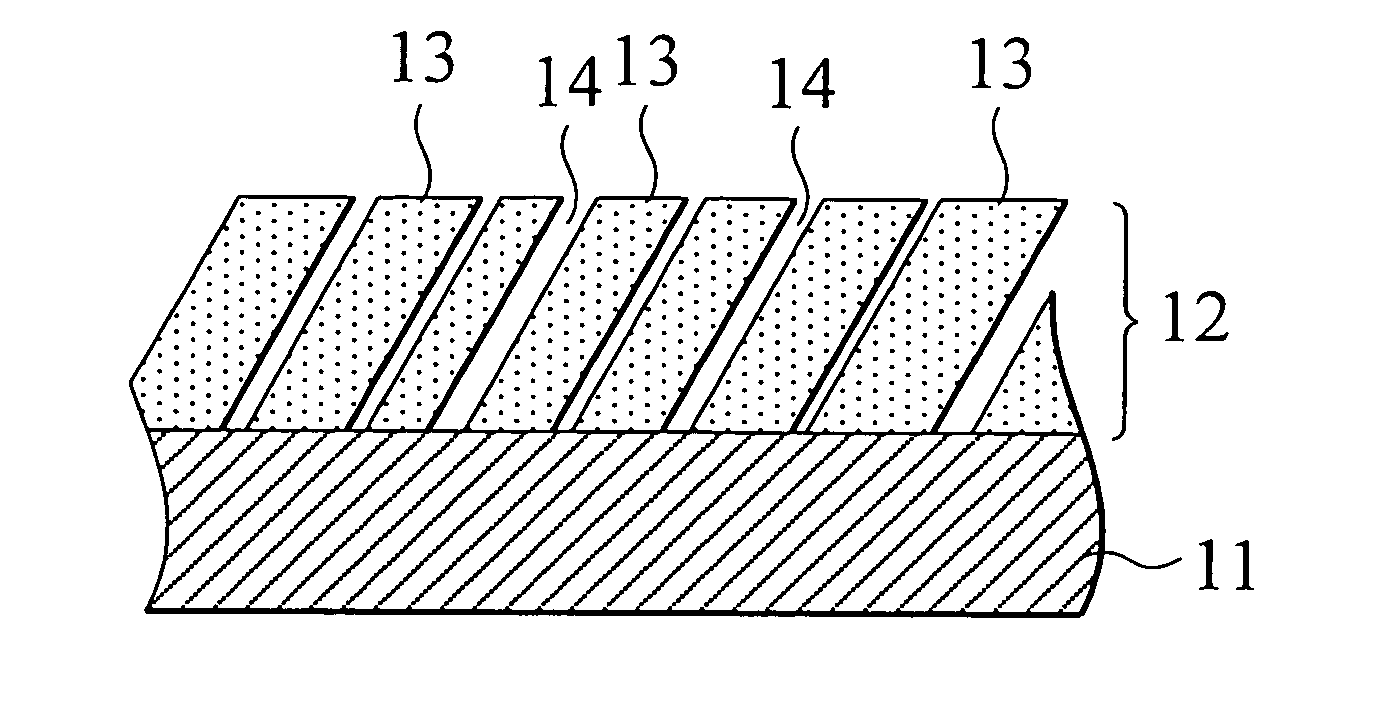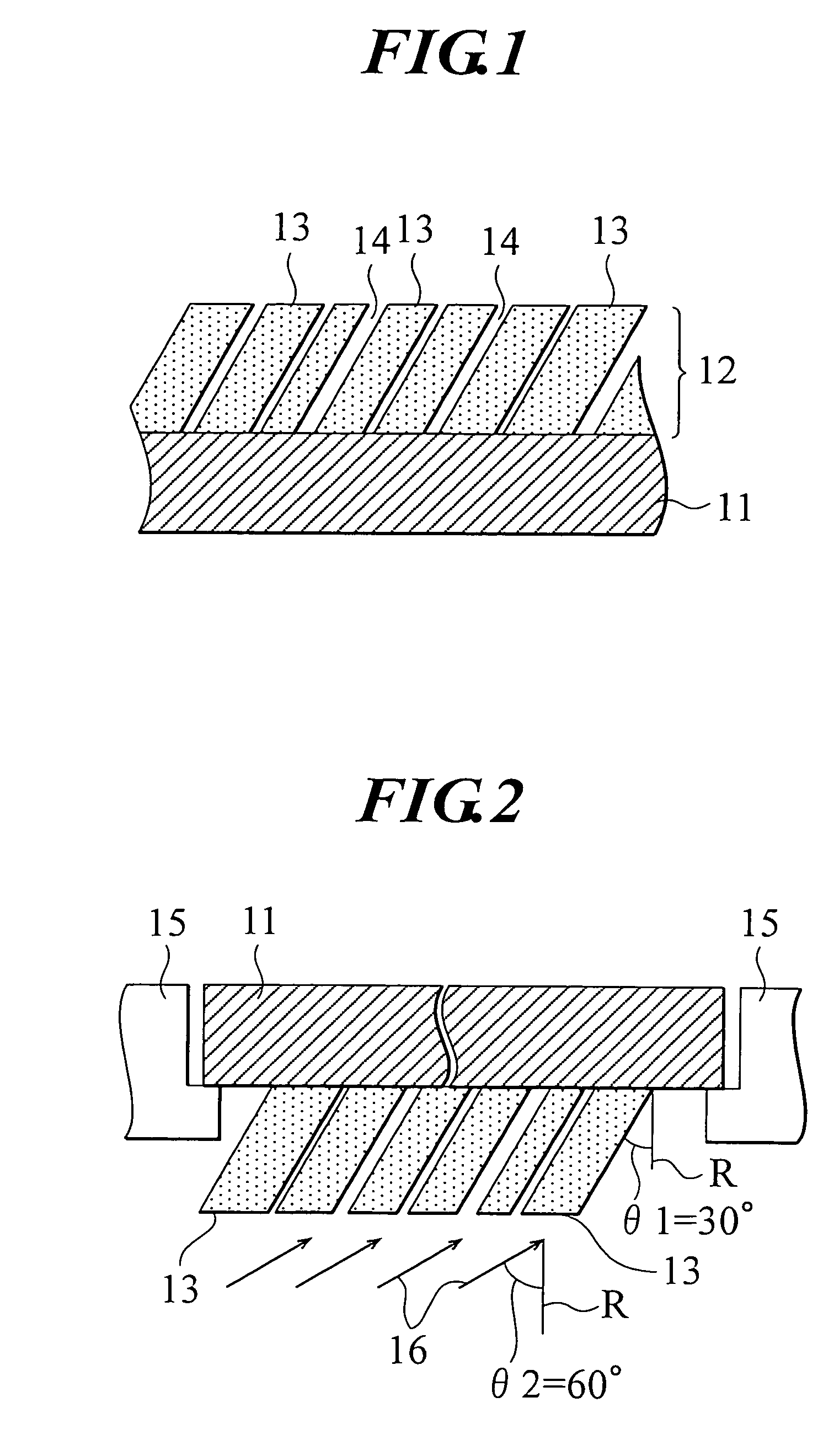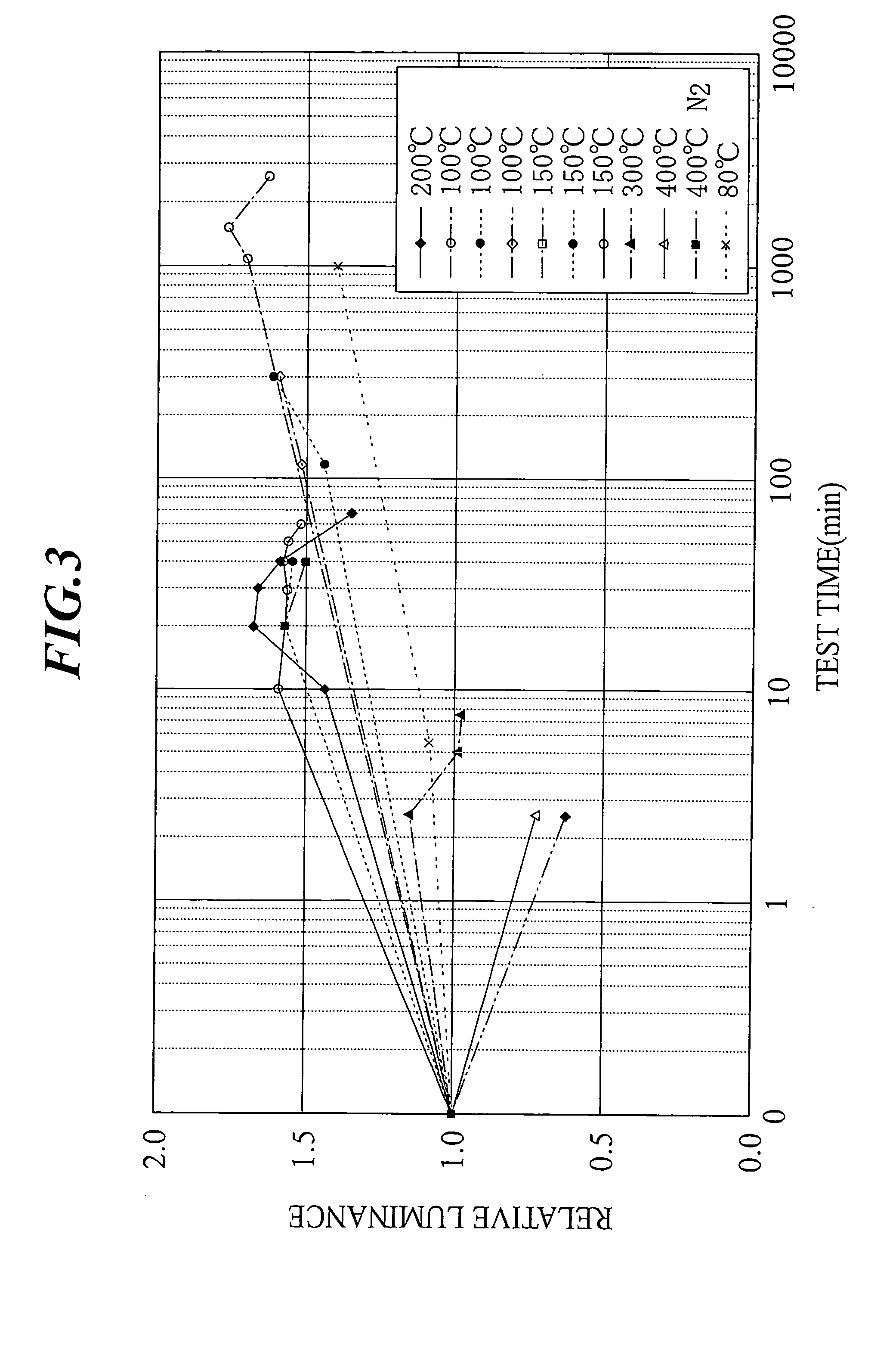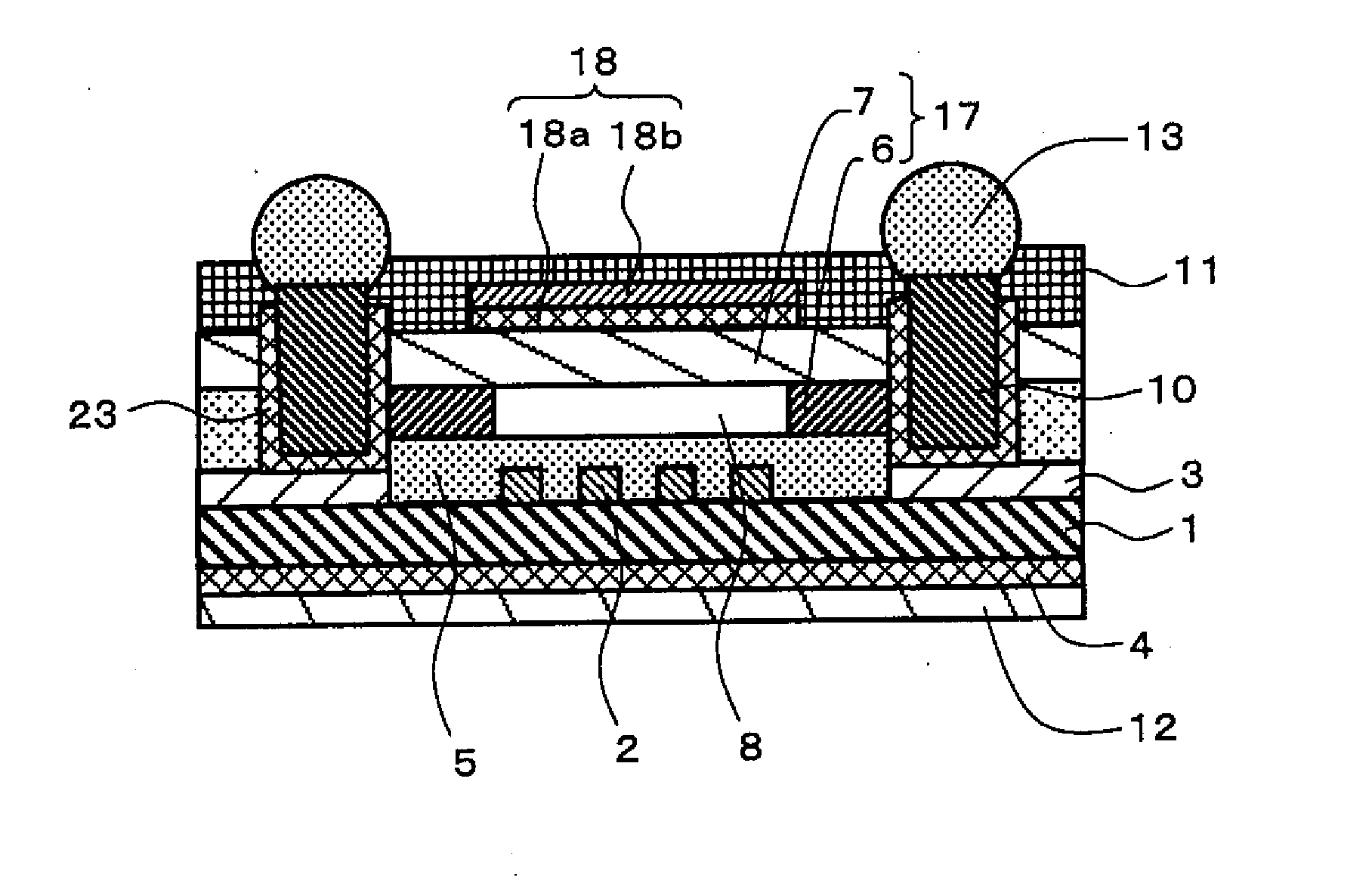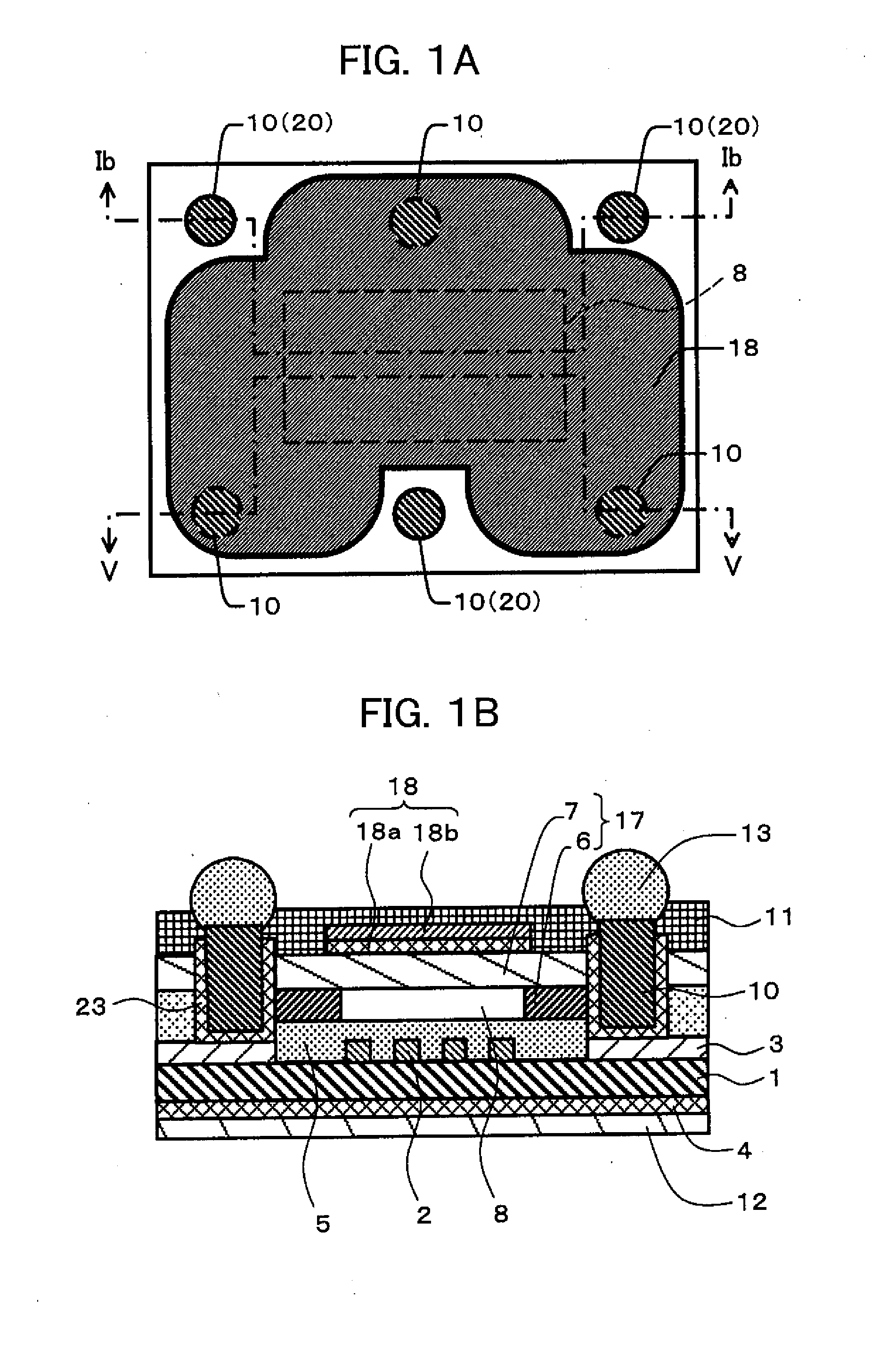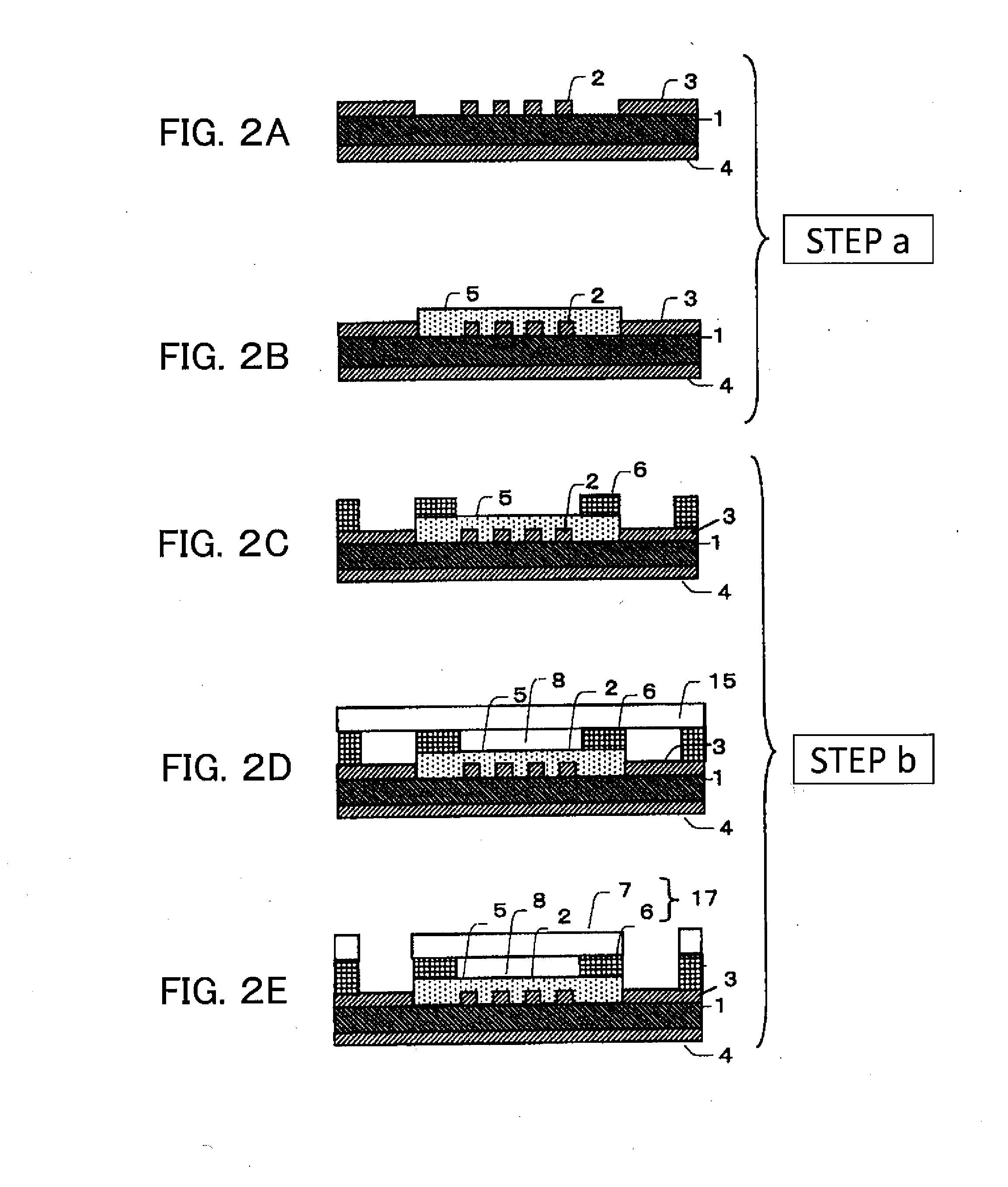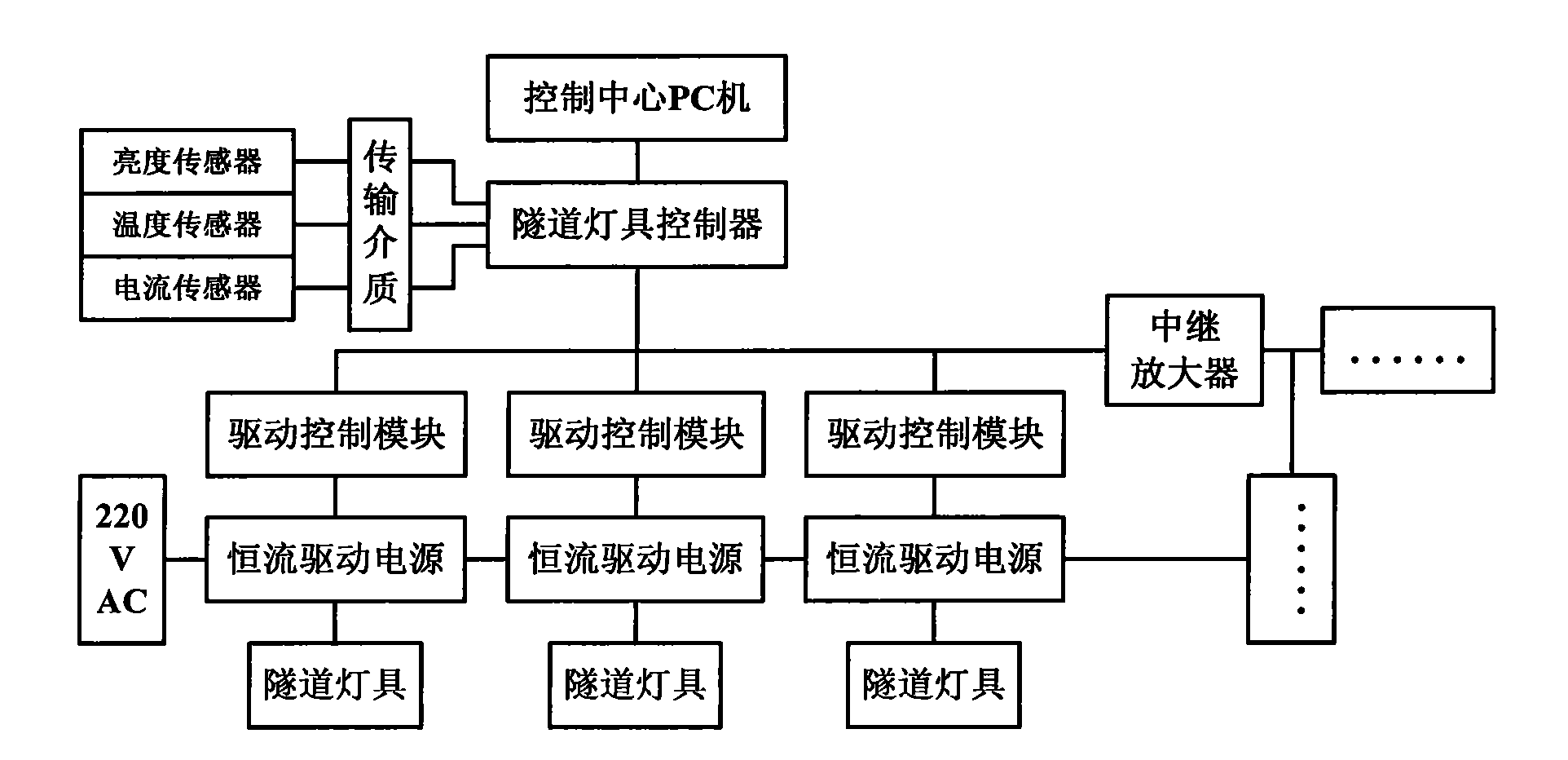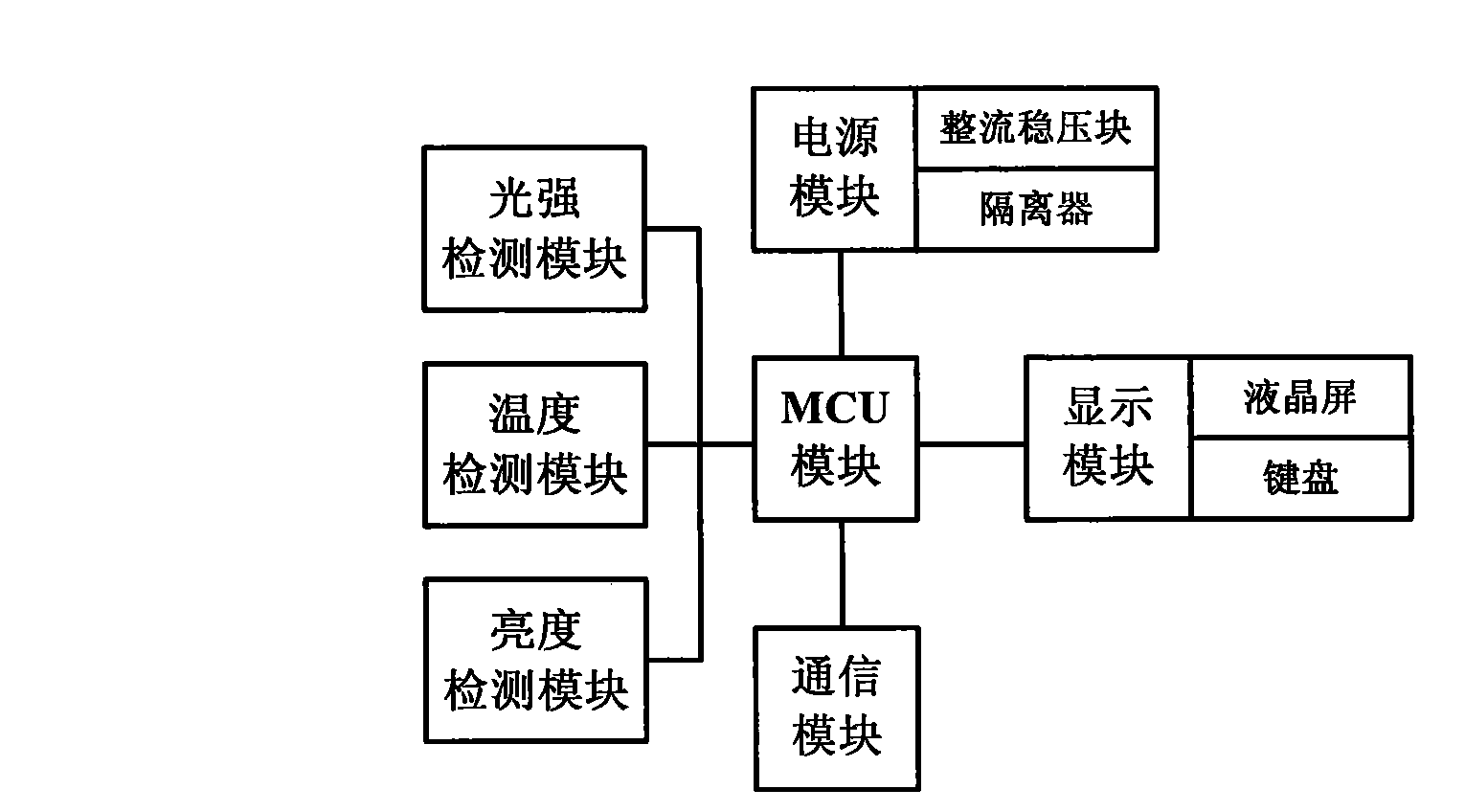Patents
Literature
Hiro is an intelligent assistant for R&D personnel, combined with Patent DNA, to facilitate innovative research.
6764results about How to "Improve moisture resistance" patented technology
Efficacy Topic
Property
Owner
Technical Advancement
Application Domain
Technology Topic
Technology Field Word
Patent Country/Region
Patent Type
Patent Status
Application Year
Inventor
Silicone polymer insulation film on semiconductor substrate and method for forming the film
InactiveUS6352945B1Low dielectric constantImprove thermal stabilityLiquid surface applicatorsSemiconductor/solid-state device detailsPolymer scienceHigh humidity
A method for forming a silicone polymer insulation film having a low relative dielectric constant, high thermal stability and high humidity-resistance on a semiconductor substrate is applied to a plasma CVD apparatus. The first step is introducing a silicon-containing hydrocarbon compound expressed by the general formula SialphaObetaCxHy (alpha, beta, x, and y are integers) to the reaction chamber of the plasma CVD apparatus. The silicon-containing hydrocarbon compound has at most two O-CnH2n+1 bonds and at least two hydrocarbon radicals bonded to the silicon. The residence time of the material gas is lengthened by, for example, reducing the total flow of the reaction gas, in such a way as to form a silicone polymer film having a micropore porous structure with a low relative dielectric constant.
Owner:ASM JAPAN
Manufacturing method of semiconductor device and semiconductor device
InactiveUS20080099876A1Good coating performanceImprove moisture resistanceSemiconductor/solid-state device detailsSolid-state devicesHigh densityDevice material
The present invention provides a method of manufacturing a semiconductor device, which comprises steps of forming a plurality of wirings on a first insulting film formed on a semiconductor substrate so as to adjoin one another, forming a second insulating film on the first insulating film by a plasma CVD method and covering the wirings with the second insulating film in such a manner that air gaps are formed between the respective adjacent wirings, forming a third insulating film on the second insulating film by a high density plasma CVD method, and forming a fourth insulating film high in moisture resistance on the third insulating film.
Owner:LAPIS SEMICON CO LTD
Solar cell module
InactiveUS20050199279A1Easy to solveImprove moisture resistancePV power plantsPhotovoltaic energy generationVitrificationSilver paste
A solar cell module of the present invention was made to improve adhesion between electrodes, which is formed with thermosetting resin containing silver paste, of a solar cell element and connecting tabs coated with lead (Pb) free solder. To achieve this purpose, the solar cell module is comprised of a front surface member, a rear surface protective member, a plurality of solar cell elements provided between the front surface member and the rear surface protective member, and connecting tabs for electrically connecting the solar cell elements to each other through electrodes with the use of lead free solder. The electrodes of the solar cell elements are made of silver paste containing thermosetting resin and silver powder. The thermosetting resin contains epoxy resin at volume ratio of 70% or more having a glass transition rate of 80° C. to 200° C. measured by a TMA method. The connecting tabs coated with lead free solder are soldered to the electrodes.
Owner:PANASONIC INTELLECTUAL PROPERTY MANAGEMENT CO LTD
Thermoplastic planks and methods for making the same
InactiveUS6986934B2Improve moisture resistanceEasy flexibilityDecorative surface effectsSpecial ornamental structuresEngineeringThermoplastic materials
A thermoplastic laminate plank is described wherein the thermoplastic laminate plank comprises a core, a print layer, and optionally an overlay. The core comprises at least one thermoplastic material and has a top surface and bottom surface wherein a print layer is affixed to the top surface of the core and an overlay layer is affixed to the top surface of the print layer. Optionally, an underlay layer can be located and affixed between the bottom surface of the print layer and the top surface of the core. In addition, a method of making the thermoplastic laminate plank is further described which involves extruding at least one thermoplastic material into the shape of the core and affixing a laminate on the core, wherein the laminate comprises an overlay affixed to the top surface of the print layer and optionally an underlay layer affixed to the bottom surface of the print layer.
Owner:VÄLINGE INNOVATION AB
Semiconductor Device and Method for Manufacturing Semiconductor Device
InactiveUS20090243065A1Improve joint reliabilityLower elastic modulusSemiconductor/solid-state device detailsSolid-state devicesSurface mountingSemiconductor chip
A semiconductor device (100) comprises a first resin substrate (101) on which a first semiconductor chip (125) is mounted a surface thereof; a second resin substrate (111) on which a second semiconductor chip (131) is mounted on a surface thereof; and a resin base material (109), joined to a front surface of the first resin substrate (101) and to a back surface of the second resin substrate (111), so that these surfaces are electrically connected. The resin base material (109) is disposed in a circumference of the first resin substrate (101) in the surface of the first resin substrate (101). Further, the first semiconductor chip (125) is disposed in a space section provided among the first resin substrate (101), the second resin substrate (111) and the resin base material (109) in the surface of the first resin substrate (101).
Owner:SUMITOMO BAKELITE CO LTD
Thermoplastic planks and methods for making the same
InactiveUS7763345B2Improve moisture resistanceEasy flexibilityCovering/liningsDecorative surface effectsThick plateEngineering
A thermoplastic laminate plank is described wherein the thermoplastic laminate plank comprises a core, a print layer, and optionally an overlay. The core comprises at least one thermoplastic material and has a top surface and bottom surface wherein a print layer is affixed to the top surface of the core and an overlay layer is affixed to the top surface of the print layer. Optionally, an underlay layer can be located and affixed between the bottom surface of the print layer and the top surface of the core. In addition, a method of making the thermoplastic laminate plank is further described which involves extruding at least one thermoplastic material into the shape of the core and affixing a laminate on the core, wherein the laminate comprises an overlay affixed to the top surface of the print layer and optionally an underlay layer affixed to the bottom surface of the print layer.
Owner:VÄLINGE INNOVATION AB
Organometallic compositions and coating compositions
InactiveUS20060247341A1Reduce yellowingImprove moisture resistanceOrganic-compounds/hydrides/coordination-complexes catalystsGroup 8/9/10/18 element organic compoundsCarbamateZinc
The present invention is directed to novel organometallic complexes as catalysts for the reaction of compounds with isocyanate and hydroxyl functional groups to form urethane and / or polyurethane and the process employing such catalysts. More particularly, the present invention is directed to novel complexes of zinc(II) with substituted amidines. These novel catalysts are useful for the production of urethanes and polyurethanes which are important in many industrial applications.
Owner:KING INDUSTRIES INC
Thermoplastic Planks and Methods For Making The Same
InactiveUS20080311355A1Improve moisture resistanceEasy flexibilityCovering/liningsDecorative surface effectsEngineeringThermoplastic materials
A thermoplastic laminate plank is described wherein the thermoplastic laminate plank comprises a core, a print layer, and optionally an overlay. The core comprises at least one thermoplastic material and has a top surface and bottom surface wherein a print layer is affixed to the top surface of the core and an overlay layer is affixed to the top surface of the print layer. Optionally, an underlay layer can be located and affixed between the bottom surface of the print layer and the top surface of the core. In addition, a method of making the thermoplastic laminate plank is further described which involves extruding at least one thermoplastic material into the shape of the core and affixing a laminate on the core, wherein the laminate comprises an overlay affixed to the top surface of the print layer and optionally an underlay layer affixed to the bottom surface of the print layer.
Owner:VÄLINGE INNOVATION AB
Thermoplastic planks and methods for making the same
InactiveUS7211310B2Improve moisture resistanceEasy flexibilityCovering/liningsTraffic signalsThick plateEngineering
A thermoplastic laminate plank is described wherein the thermoplastic laminate plank comprises a core, a print layer, and optionally an overlay. The core comprises at least one thermoplastic material and has a top surface and bottom surface wherein a print layer is affixed to the top surface of the core and an overlay layer is affixed to the top surface of the print layer. Optionally, an underlay layer can be located and affixed between the bottom surface of the print layer and the top surface of the core. In addition, a method of making the thermoplastic laminate plank is further described which involves extruding at least one thermoplastic material into the shape of the core and affixing a laminate on the core, wherein the laminate comprises an overlay affixed to the top surface of the print layer and optionally an underlay layer affixed to the bottom surface of the print layer.
Owner:VÄLINGE INNOVATION AB
Thermoplastic planks and methods for making the same
InactiveUS20050003160A1Improve moisture resistanceDamaged resistance propertyLamination ancillary operationsSynthetic resin layered productsEngineeringThermoplastic materials
A thermoplastic laminate plank is described wherein the thermoplastic laminate plank comprises a core, a print layer, and optionally an overlay. The core comprises at least one thermoplastic material and has a top surface and bottom surface wherein a print layer is affixed to the top surface of the core and an overlay layer is affixed to the top surface of the print layer. Optionally, an underlay layer can be located and affixed between the bottom surface of the print layer and the top surface of the core. In addition, a method of making the thermoplastic laminate plank is further described which involves extruding at least one thermoplastic material into the shape of the core and affixing a laminate on the core, wherein the laminate comprises an overlay affixed to the top surface of the print layer and optionally an underlay layer affixed to the bottom surface of the print layer.
Owner:VÄLINGE INNOVATION AB
Liquid crystal device, electro-optical device, projector, and micro-device
InactiveUS20070030436A1Decrease possibilityImproved moisture resistanceNon-linear opticsLiquid crystal devicesEngineering
A liquid crystal device includes: a first substrate; a second substrate opposed to the first substrate; a liquid crystal layer placed between the first substrate and the second substrate; a sealing member sealing the liquid crystal layer between the first substrate and the second substrate; a mold member provided between the first substrate and the second substrate so as to cover an outer periphery of the sealing member; and a first irregular portion formed, on at least one of the first substrate and the second substrate, over an entire region on which the mold member is arranged, wherein the mold member is provided on the first irregular portion.
Owner:SEIKO EPSON CORP
Method for processing traditional Chinese herbs broken wall powder
ActiveCN101147746AFully dissolvedReduce dosageGranular deliveryPlant ingredientsMedicinal herbsMaterials preparation
The present invention relates to a processing method of Chinese medicinal material wall-broken powder. Said processing method includes the following steps: (1), medicinal material preparation: selecting material, slicing and drying to obtain cleaned medicinal material; (2), pulverization: using universal pulverizing machine to make wall-breaking pulverization of medicinal material so as to obtain crude powder with above 60 meshes; (3), wall-breaking pulverization: using wall-breaking pulverizing machine to make wall-breaking pulverization to obtain superfine powder body with above 300 meshes; (4), granulating: placing the above-mentioned superfine powder body into a mix-stirring machine, adding water or ethyl alcohol to make them into soft material, using granulating machine to make granulation to obtain wet granules and drying said wet granules; (5), finishing and screening; and (6), filling and packaging.
Owner:ZHONGSHAN ZHONGZHI PHARMA GRP +1
Multilayer ceramic capacitor
ActiveUS20150340155A1Reduce moistureImprove moisture resistanceFixed capacitor electrodesFixed capacitor dielectricMetallurgyCeramic capacitor
A multilayer ceramic capacitor includes a ceramic body and external electrodes provided on opposite end surfaces of the ceramic body. The ceramic body includes an inner layer portion including a plurality of ceramic layers defining inner layers and a plurality of first and second internal electrodes each disposed at an interface of adjacent ones of the ceramic layers defining the inner layers, outer layer portions sandwiching the inner layer portion in a direction in which the layers are stacked, and side margin portions sandwiching the inner layer portion and the outer layer portions in a widthwise direction. The side margin portion includes pores that decrease in number along a direction from inside to outside of the ceramic body.
Owner:MURATA MFG CO LTD
Thermoplastic planks and methods for making the same
InactiveUS20070196624A1Improve moisture resistanceEasy flexibilityCovering/liningsDecorative surface effectsThick plateEngineering
Owner:VÄLINGE INNOVATION AB
Radiation-curable optical fiber coatings having reduced yellowing and fast cure speed
InactiveUS6187835B1Impair cure speedImprove curing speedLight effect designsLavatory sanitoryUv absorberPhotoinitiator
Radiation-curable inner and outer primary optical fiber coatings are disclosed having both fast cure speed and reduced rates of yellowing. The compositions comprise particular photoinitiators and UV absorbers which are used in amounts to provide the combination of properties. The UV absorber can have ethylenic unsaturation. Outer primary coatings can be formulated to screen inner primary coatings and have fast cure speed.
Owner:DSM IP ASSETS BV
High-voltage feedthrough capacitor
InactiveUS6510038B1Increase capacitanceImprove filtering effectAnti-noise capacitorsTransit-tube leading-in arrangementsElectrical conductorEngineering
In a high-voltage feedthrough capacitor, a grounding member has two through-holes spaced away from each other. Feedthrough capacitors each has one central conductor, a dielectric layer, and an electrode. The periphery of the central conductor is respectively covered with the dielectric layer, and the surface of the dielectric layer is respectively covered with the electrode. The feedthrough capacitor extends respectively through the through-hole, and has been fitted to the grounding member. The electrode has been bonded to the grounding member. An armoring insulator covers the peripheries of the feedthrough capacitors and the periphery of the grounding member.
Owner:TDK CORPARATION
Cap member for internally geared bicycle hub
Owner:SHIMANO INC
Electric heating tube made of hexagonal boron nitride and mixed heat conducting material thereof
ActiveCN101854750ALong life and high qualityImprove insulation performanceChemical industryHeat-exchange elementsHexagonal boron nitrideHeat conducting
The invention belongs to the technical field of electric heating tube manufacture, and relates to an electric heating tube using hexagonal boron nitride or mixture of hexagonal boron nitride and magnesium oxide as a heat conducting material, in particular to a mixed heat conducting material for a novel electric heating tube. A main body structure comprises a metal tube body, a mixed filler, a resistance wire and accessories comprising a fixed plate, porcelain beads, sealant, a plastic plug, a leading-out bar, a terminal electrodes and screws; a cavity structure of the metal tube body is invariantly bent into a circular, elliptical or spiral geometric structure; parallel structures at two end sections of the metal tube body are fixed on the fixed plate in an interval penetration mode, and fixed screws are arranged at two ends of the fixed plate; and the resistance wire is fixed and electrically connected on the central axis of the cavity of the metal tube body and parallel to two end points on two sides of the tube wall, and the mixed filler is filled between the resistance wire and the side wall of the metal tube body. The electric heating tube has the advantages of high stability and heat conducting efficiency, high-temperature softening prevention in inert gas, long service life, high quality, good insulating property, low dielectric constant and dielectric loss, and safe use.
Owner:QINGDAO EASYTOUSE ELECTRONICS
Laminated moisture resistant poultry box and process
InactiveUS10226909B2Easily biodegradableEasy to re-pulp and recyclePackage recyclingMechanical working/deformationMechanical engineeringMoisture
A moisture resistant poultry box having a composite structure with a fluted paper medium, a top backing board assembly secured to one side of the fluted medium and a bottom backing board assembly secured to the other side of the fluted medium. The backing board assemblies and the fluted medium are impregnated with a hydrogenated triglyceride, and each backing board assembly has PET film glued thereto covering an outside surface to provide moisture resistant recyclable poultry box so that it has a Cobb value ranging between about 0 to about 1.
Owner:INDEVCO NORTH AMERICA INC
Low cost, high performance cable-connector system and assembly method
InactiveUS6848941B2Advantageous strength and flexibility and weight characteristicIncrease opportunitiesElectrically conductive connectionsTwo pole connectionsDielectricElectrical conductor
A cable-connector system advantageously used with flexible, relatively small diameter coaxial cable and connectors, including a coaxial cable with a foam dielectric surrounding an inner conductor; and a tubular outer conductor surrounding the foam dielectric, the outer conductor being composed of aluminum or aluminum alloy and having helical corrugations; and a connector, having: a connector body having a hollow bore with internal perturbations keyed to the helical corrugations and arranged to retentively receive and secure the connector on the cable when the connector is screwed onto the cable with the corrugations engaging the perturbations; the connector body having a crimp section adapted to be compressed by a connector crimping tool; the crimp section configured such that when crimped, the crimp section deforms inwardly and distorts the cable outer conductor corrugations to prevent relative rotation between the cable and the connector body and interlock the connector and cable.
Owner:ANDREW LLC
Organometallic compositions and coating compositions
InactiveUS7485729B2Reduce yellowingGood stability at room temperatureOrganic-compounds/hydrides/coordination-complexes catalystsGroup 8/9/10/18 element organic compoundsCarbamateZinc
The present invention is directed to novel organometallic complexes as catalysts for the reaction of compounds with isocyanate and hydroxyl functional groups to form urethane and / or polyurethane and the process employing such catalysts. More particularly, the present invention is directed to novel complexes of zinc(II) with substituted amidines. These novel catalysts are useful for the production of urethanes and polyurethanes which are important in many industrial applications.
Owner:KING INDUSTRIES INC
Multiple-loop absolute type rotary encoder based on rotating transformer
ActiveCN101226066AImprove anti-interference abilityImprove moisture resistanceConverting sensor outputDigital signal processingAxis–angle representation
The invention relates to a multiturn absolute rotary encoder based on a rotary transformer, which is characterized in that: a sensor is displaced by taking the rotary transformer as a shaft angle; a shaft angle decoding circuit can be formed by adopting DSP as a core processor; a sine wave which can be controlled by frequency and phase in the method that the circuit is synthesized by direct digital frequency for the numerical control of an oscillator; and the sine wave is directly taken as an excitation rotary transformer signal via a power amplifier and a filter circuit; the rotary transformer signal is transferred to A / D converter after being run through a matching circuit of electronic transformer; after sampling, digital filtering and digital signal processing, the sine and cosine value for the actual angle of two channels is generated; the angle error change is tracked dynamically by the PI algorithm; the mechanical displacement of the rotating object is converted into digital shaft angle position and speed. The multiturn absolute rotary encoder based on a rotary transformer has the advantages of high tracking speed, high conversion accuracy, high reliability, simple structure, sensitive movement, low environmental condition, strong anti-interference capability, high measuring accuracy and speed voltage output.
Owner:连云港杰瑞电子有限公司
Positive electrode active material for non-aqueous electrolyte secondary battery and method for producing the same
ActiveUS20100112447A1High volume resistivityLow volume resistivityNon-aqueous electrolyte accumulatorsActive material electrodesComposite oxideMaterials science
A positive electrode active material for a non-aqueous electrolyte secondary battery is provided. The positive electrode active material includes a composite oxide containing lithium and metal M other than lithium, and M contains Ni, Mn, and Co. The molar ratio of Ni to the total of Ni, Mn, and Co is from 0.45 to 0.65, and the molar ratio of Mn to the total of Ni, Mn, and Co is from 0.15 to 0.35. The positive electrode active material has a pressed density under a compression of 60 MPa of 3.3 g / cm3 or more and 4.3 g / cm3 or less. The positive electrode active material has a volume resistivity under a compression of 60 MPa of 100 Ω·cm or more and less than 1000 Ω·cm.
Owner:PANASONIC CORP
Thermoplastic Planks And Methods For Making The Same
InactiveUS20100260962A1Improve moisture resistanceEasy flexibilityCovering/liningsDecorative surface effectsEngineeringThermoplastic materials
A thermoplastic laminate plank is described wherein the thermoplastic laminate plank comprises a core, a print layer, and optionally an overlay. The core comprises at least one thermoplastic material and has a top surface and bottom surface wherein a print layer is affixed to the top surface of the core and an overlay layer is affixed to the top surface of the print layer. Optionally, an underlay layer can be located and affixed between the bottom surface of the print layer and the top surface of the core. In addition, a method of making the thermoplastic laminate plank is further described which involves extruding at least one thermoplastic material into the shape of the core and affixing a laminate on the core, wherein the laminate comprises an overlay affixed to the top surface of the print layer and optionally an underlay layer affixed to the bottom surface of the print layer.
Owner:VÄLINGE INNOVATION AB
Optoelectronic devices with laminate leadless carrier packaging in side-looker or top-looker device orientation
ActiveUS20110079801A1Low ion contentImprove moisture resistanceSolid-state devicesSemiconductor/solid-state device manufacturingLead bondingEngineering
A laminate leadless carrier package comprising an optoelectronic chip, a substrate supporting the chip, the substrate comprising a plurality of conductive and dielectric layers; a wire bond coupled to the optoelectronic chip and a wire bond pad positioned on the top surface of the substrate; an encapsulation covering the optoelectronic chip, the wire bond, and at least a portion of the top surface of the substrate, wherein the encapsulation is a molding compound; and wherein the package is arranged to be mounted as a side-looker. A process for manufacturing laminate leadless carrier packages, comprising preparing a substrate; applying epoxy adhesive to a die attach pad; mounting an optoelectronic chip on the die attach pad; wire-bonding the optoelectronic chip; molding a molding compound to form an encapsulation covering the optoelectronic chip, a wire bond, and the top surface of the substrate; and dicing the substrate into individual packages.
Owner:EXCELITAS CANADA
Backside covering material for a solar cell module and its use
InactiveUS20020129848A1Enhanced durability and moisture resistanceGood insulatorFilm/foil adhesivesPV power plantsWeather resistanceEngineering
The present invention provides a light and thin backside covering material for a solar cell module which is excellent in moisture resistance and durability and has a good insulator without causing a short circuit with underlying wire nor leak current. Also the invention provides a durable and high performance solar cell module using this backside covering material as a rear surface protection member. The backside covering material for a solar cell module is a three-layer laminated film, wherein a moisture resistant film is sandwiched with two films having heat resistance and weather resistance. A deposited layer 5 of inorganic oxide is formed on a surface of a base film 4 to make the moisture resistant film 3.
Owner:BRIDGESTONE CORP
Method of using sustained release aminopyridine compositions
ActiveUS20050228030A1Undesirable to releaseImparts chemical and physical stabilityBiocideNervous disorderBlood plasmaDisease cause
A pharmaceutical composition which comprises a therapeutically effective amount of a aminopyridine dispersed in a release matrix, including, for example, a composition that can be formulated into a stable, sustained-release oral dosage formulation, such as a tablet which provides, upon administration to a patient, a therapeutically effective plasma level of the aminopyridine for a period of at about 12 hours and the use of the composition to treat various neurological diseases, including multiple sclerosis. A method of selecting individuals based on responsiveness to a treatment, including, for example, identifying individuals who responded to treatment with a sustained release fampridine composition.
Owner:ACORDA THERAPEUTICS INC
Radiographic image conversion panel
InactiveUS20050040340A1Improve in moisture proof propertyReduce image qualityX-ray/infra-red processesElectrical apparatusFluorescenceChemistry
A radiographic image conversion panel includes a support; and a photostimulable phosphor layer provided on the support. A photostimulable phosphor is formed on the support by a vapor phase deposition method and then, heat treatment is performed at a temperature of from 80° C. to 300 ° C.
Owner:KONICA MINOLTA INC
Acoustic Wave Device
ActiveUS20100225202A1Little changeImprove moisture resistanceImpedence networksPiezoelectric/electrostriction/magnetostriction machinesAcoustic waveBulk acoustic wave
Provided is a highly reliable acoustic wave device wherein deterioration of electrical characteristics due to deformation of a protective cover is suppressed. A method for manufacturing such acoustic wave device is also provided. The acoustic wave device has a piezoelectric substrate 1 propagating an acoustic wave; an excitation electrode arranged on a first main surface of the piezoelectric substrate 1; a columnar outside connection-use electrode 10 electrically connected to the excitation electrode; a protective cover 17 having a hollow accommodating space 8 in which the excitation electrode is accommodated on the first main surface; and a conductive layer 18 connected to the electrode 10 on the protective cover 17.
Owner:KYOCERA CORP
Intelligent control system for LED tunnel lamps and method for controlling LED tunnel lamps
InactiveCN101662863ARealize stepless intelligent controlOptimal control methodElectronic switchingElectric light circuit arrangementCurrent sensorEngineering
The invention provides an intelligent control system for LED tunnel lamps and a method for controlling the LED tunnel lamps. The system comprises a control center PC computer, a tunnel lamp controllerand lamps, wherein a brightness / temperature / current sensor is connected with the controller via a transmission medium; the control center PC computer is connected with a plurality of drive control modules via the controller and a bus structure; and each drive control module is connected with a constant-current driving power supply of each LED tunnel lamp. Therefore, the system detects the intensity and weakness of light at the entrance and exit of a tunnel in real time via optical detectors distributed in the tunnel by applying highly accurate intelligent detection measure based on an advanced RISC microprocessor, and feeds processed data back to a control center; the control center processes the data and controls various tunnel lamps at different positions so as to control the brightnessof the LED tunnel lamps at different positions and finally achieve the aim of saving energy source.
Owner:NANJING HANDSON SCI & TECH CORP
Features
- R&D
- Intellectual Property
- Life Sciences
- Materials
- Tech Scout
Why Patsnap Eureka
- Unparalleled Data Quality
- Higher Quality Content
- 60% Fewer Hallucinations
Social media
Patsnap Eureka Blog
Learn More Browse by: Latest US Patents, China's latest patents, Technical Efficacy Thesaurus, Application Domain, Technology Topic, Popular Technical Reports.
© 2025 PatSnap. All rights reserved.Legal|Privacy policy|Modern Slavery Act Transparency Statement|Sitemap|About US| Contact US: help@patsnap.com



